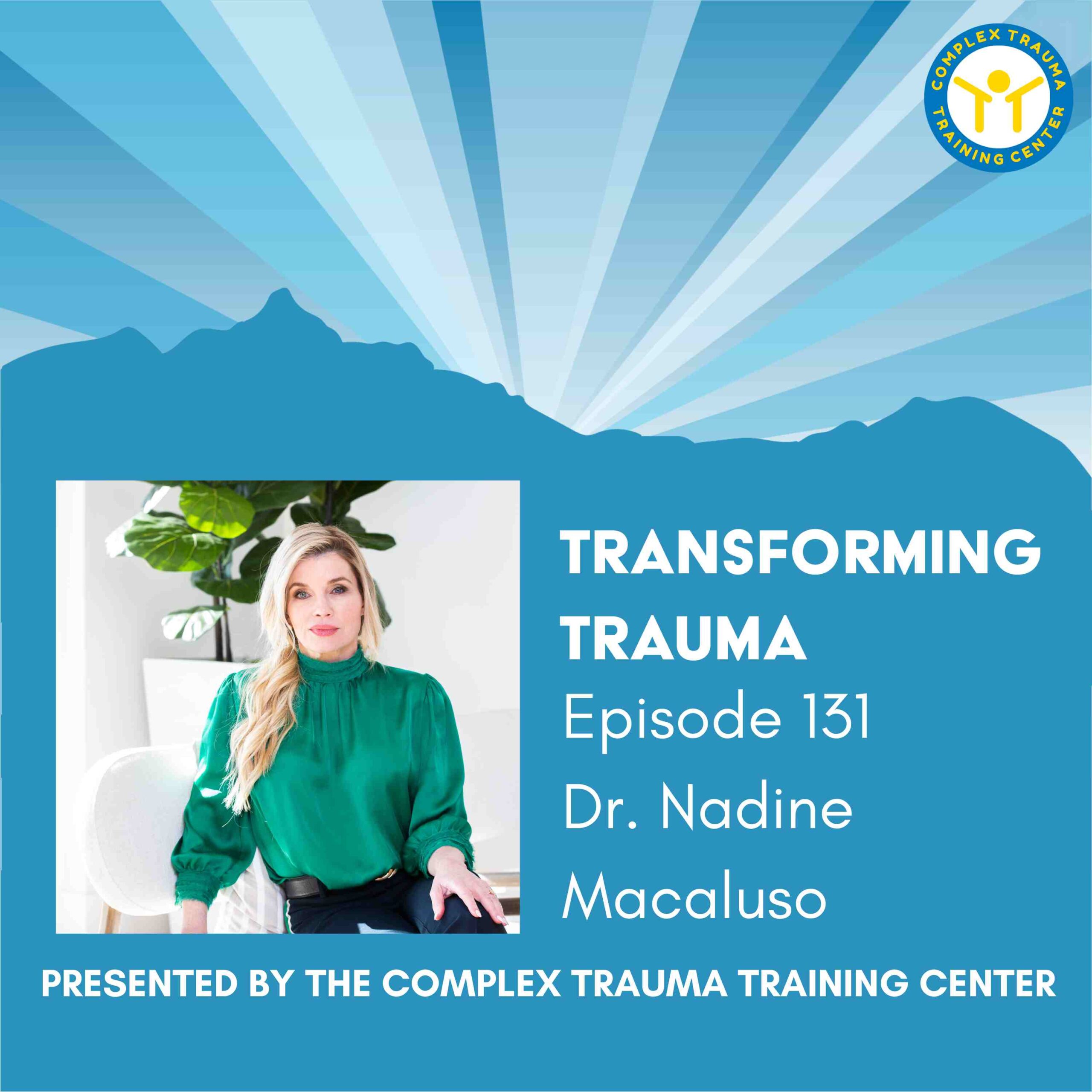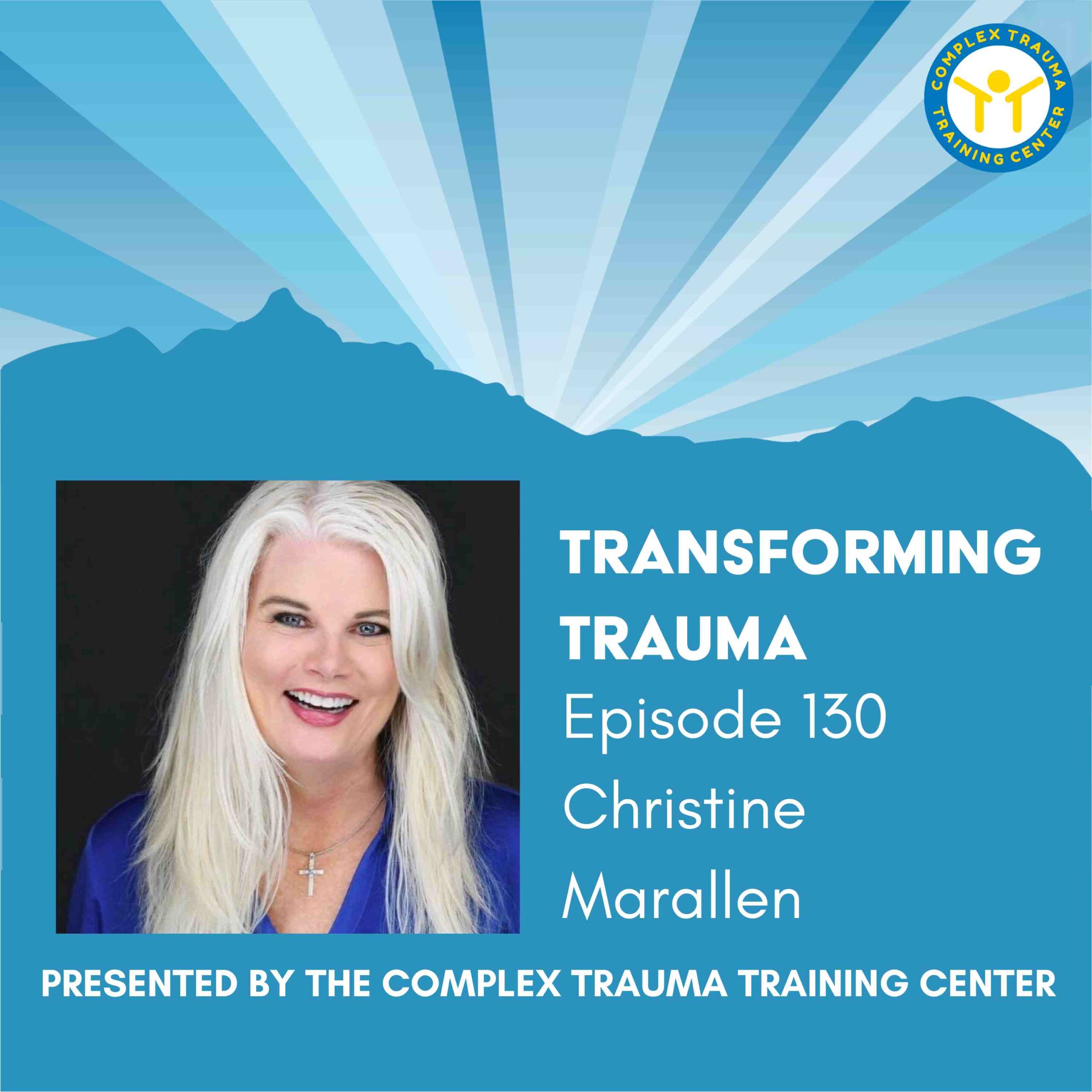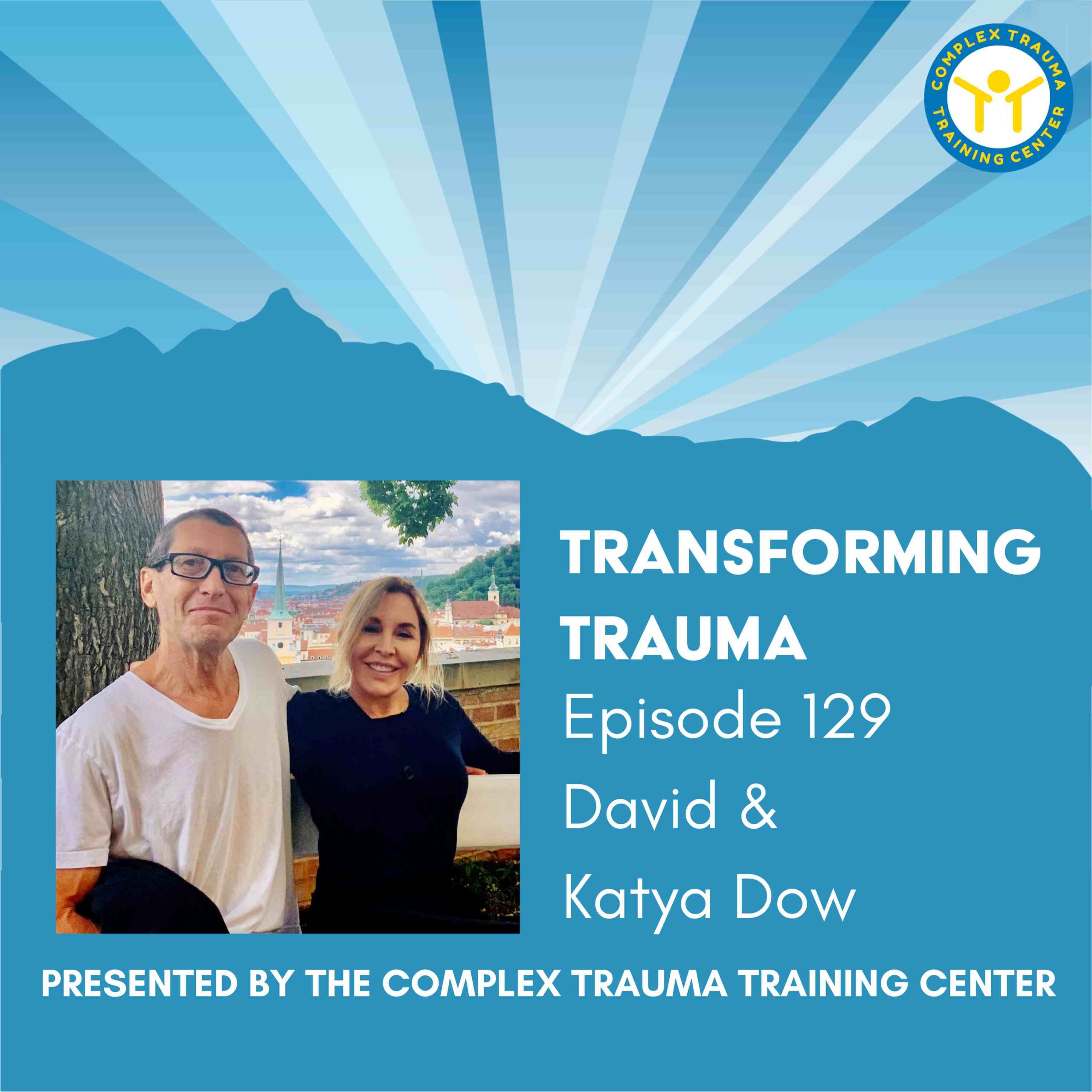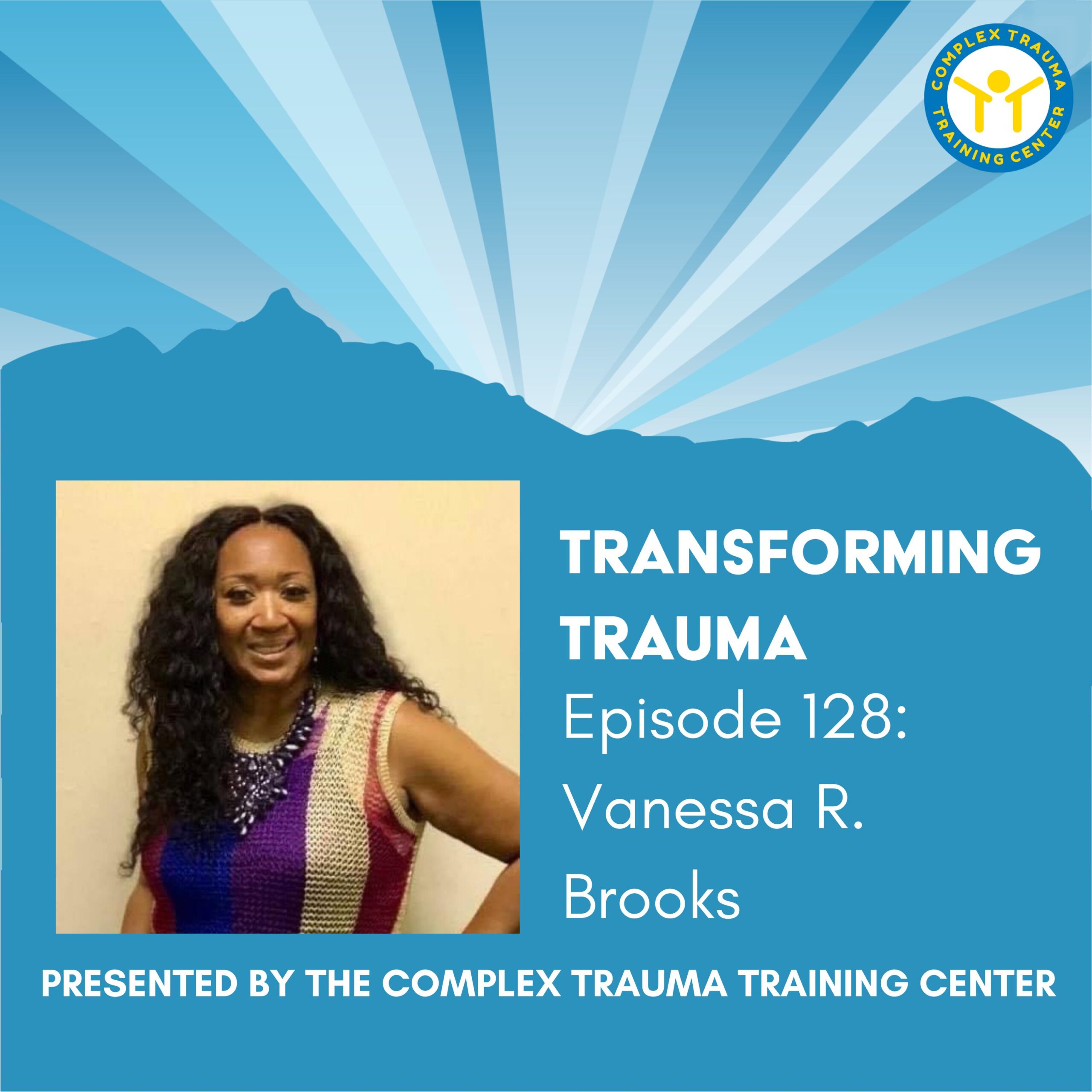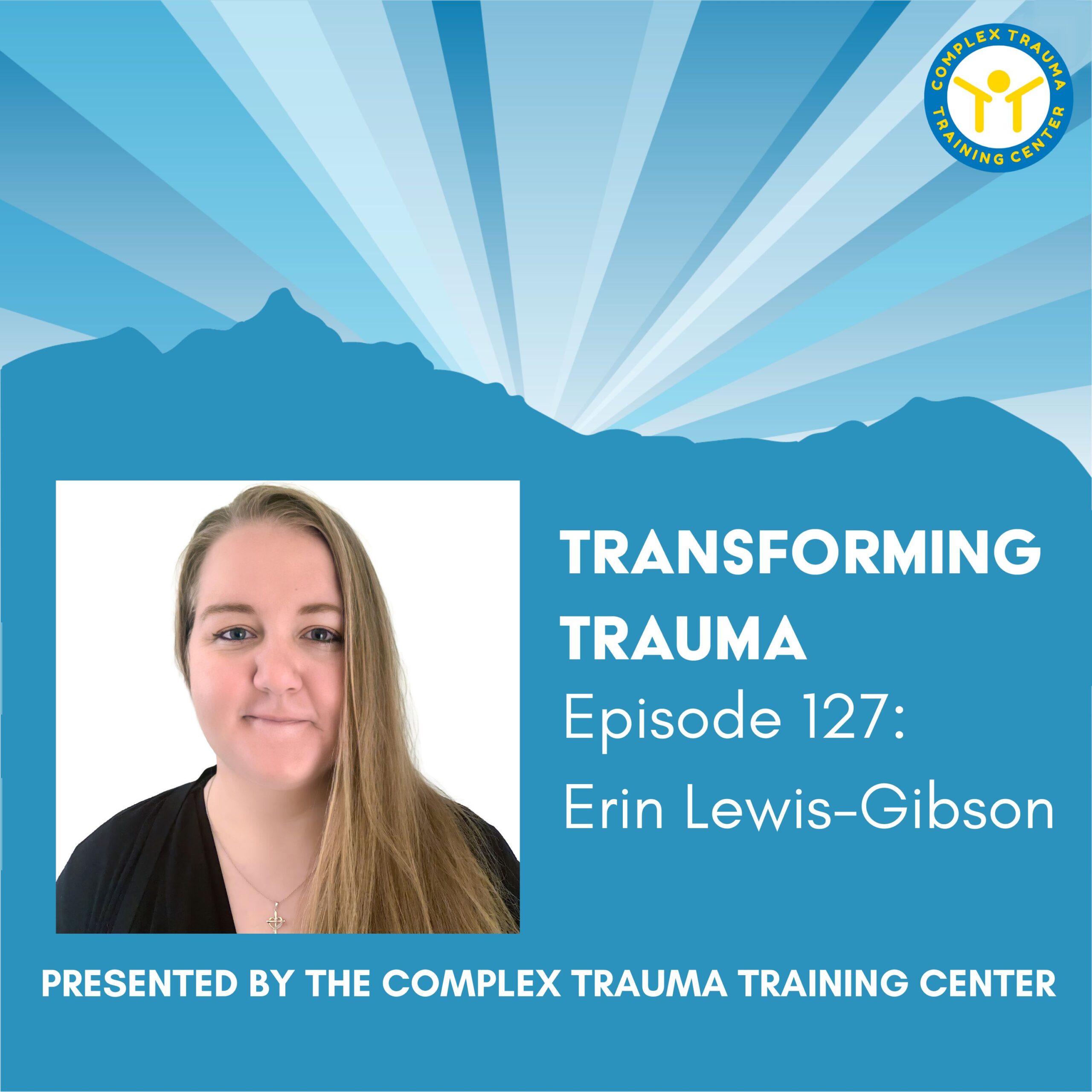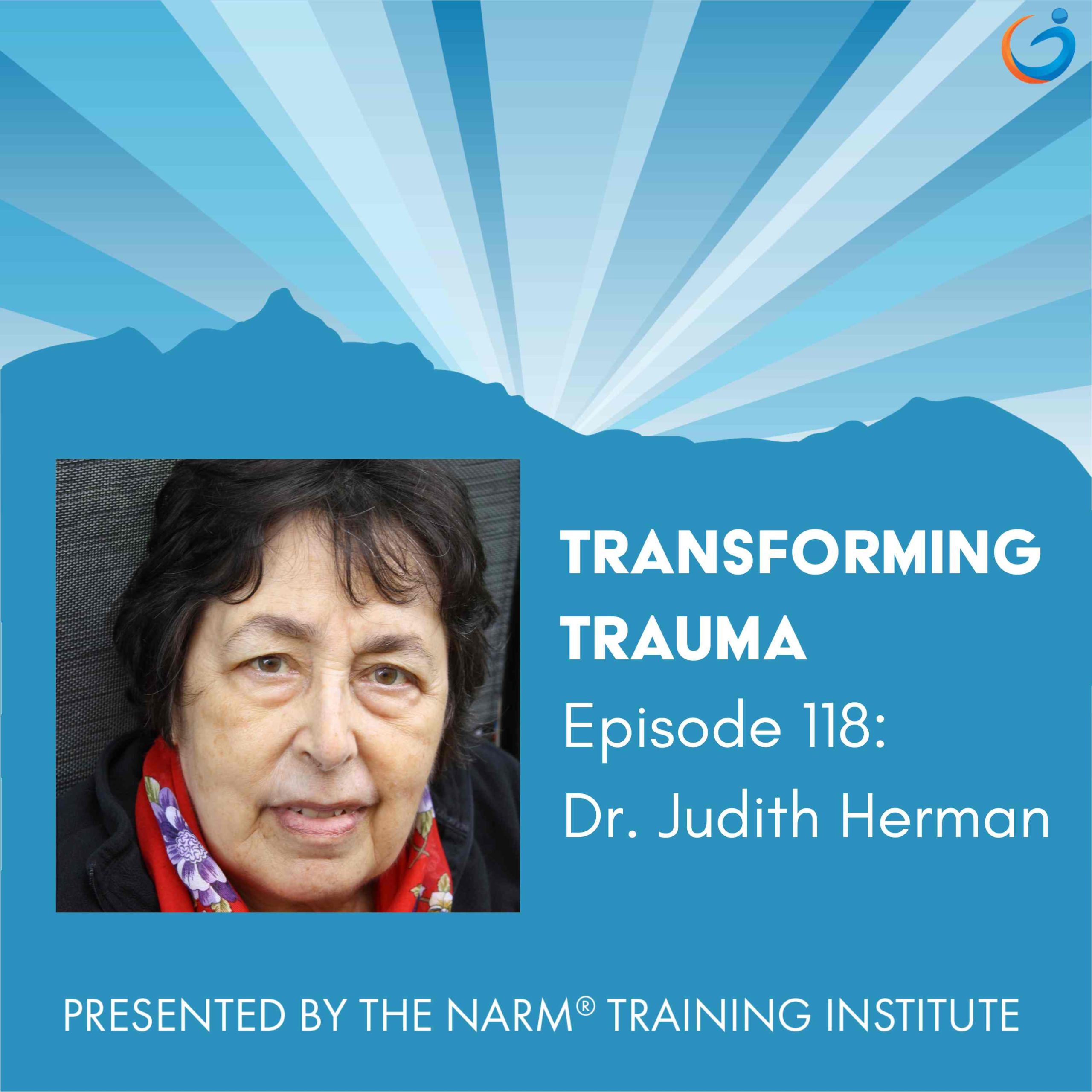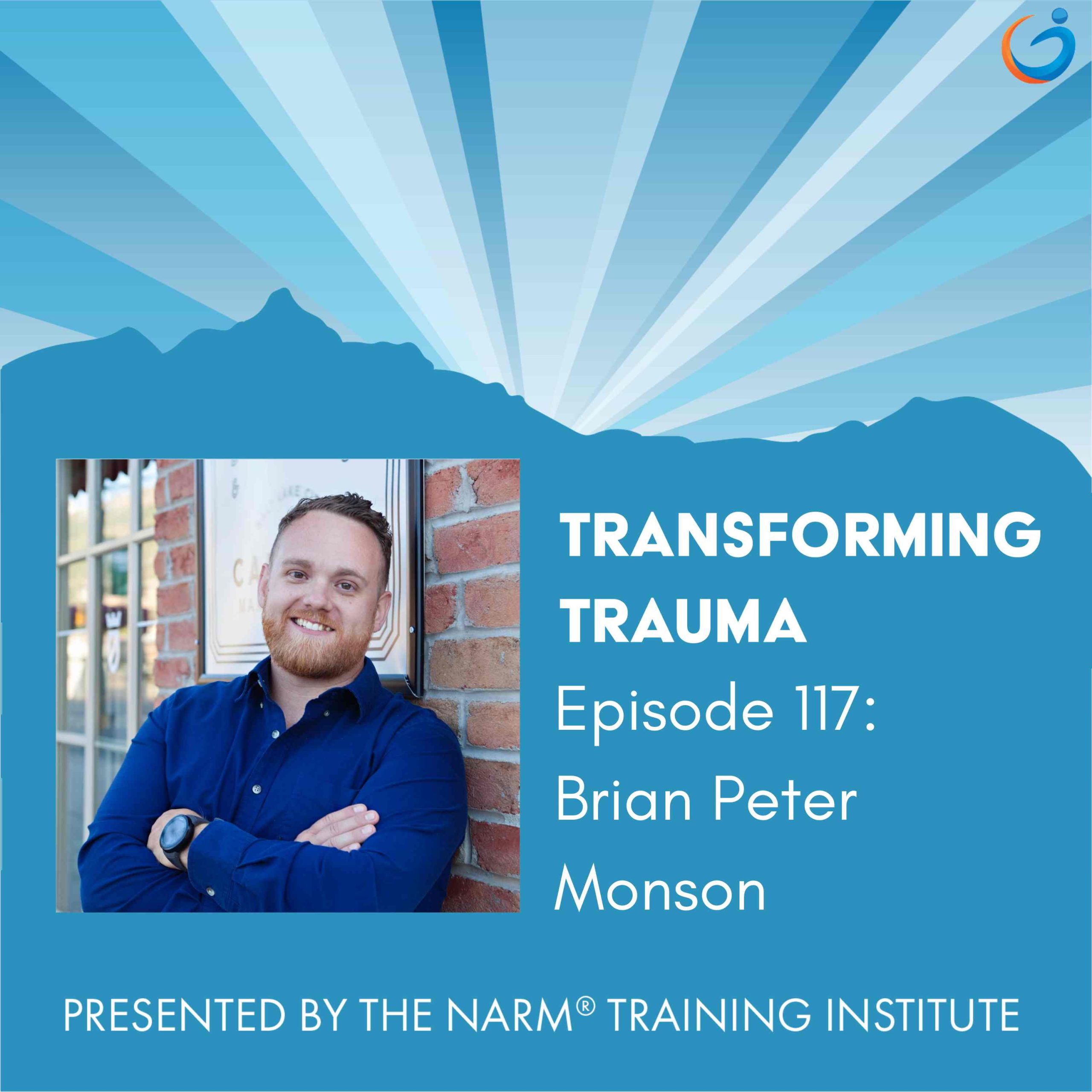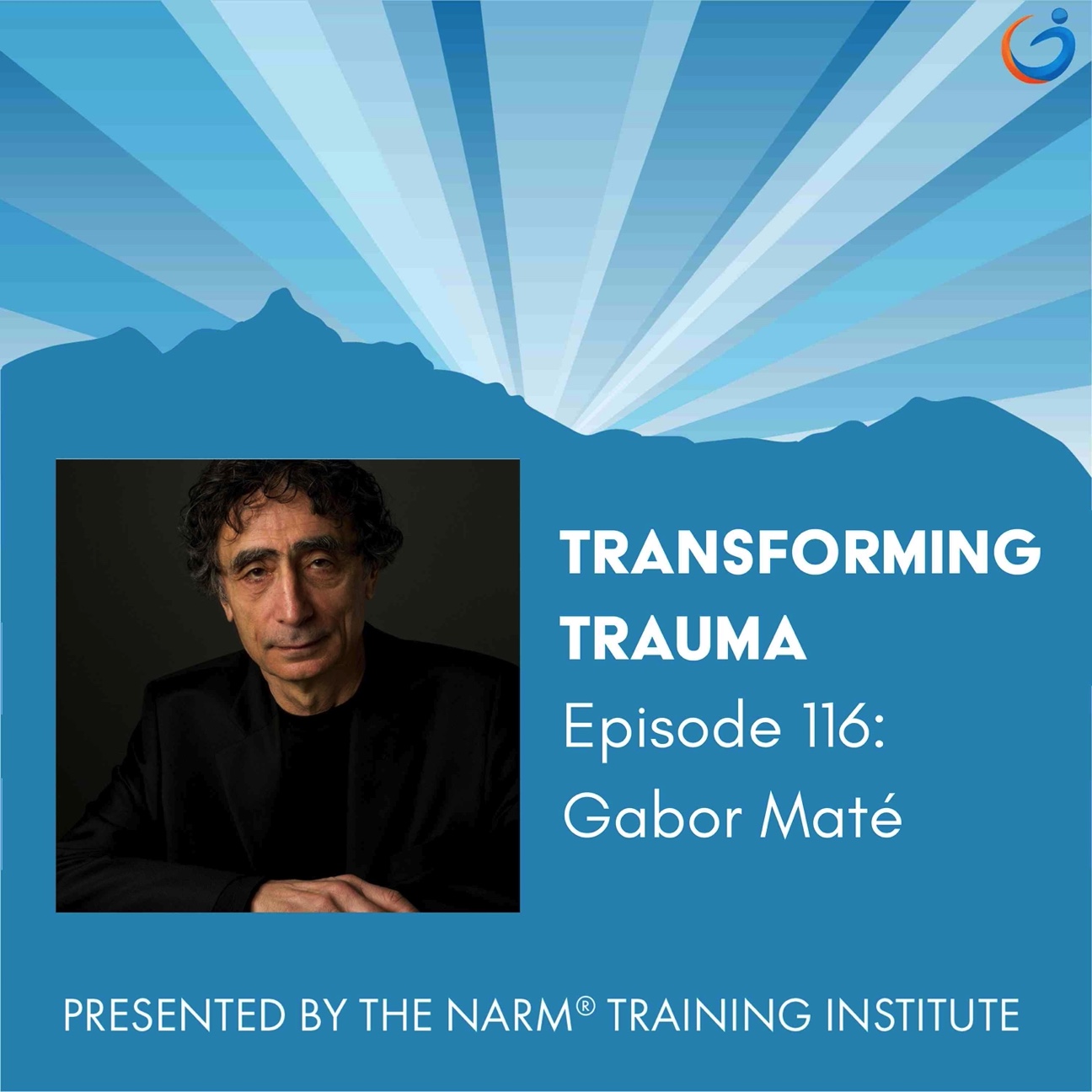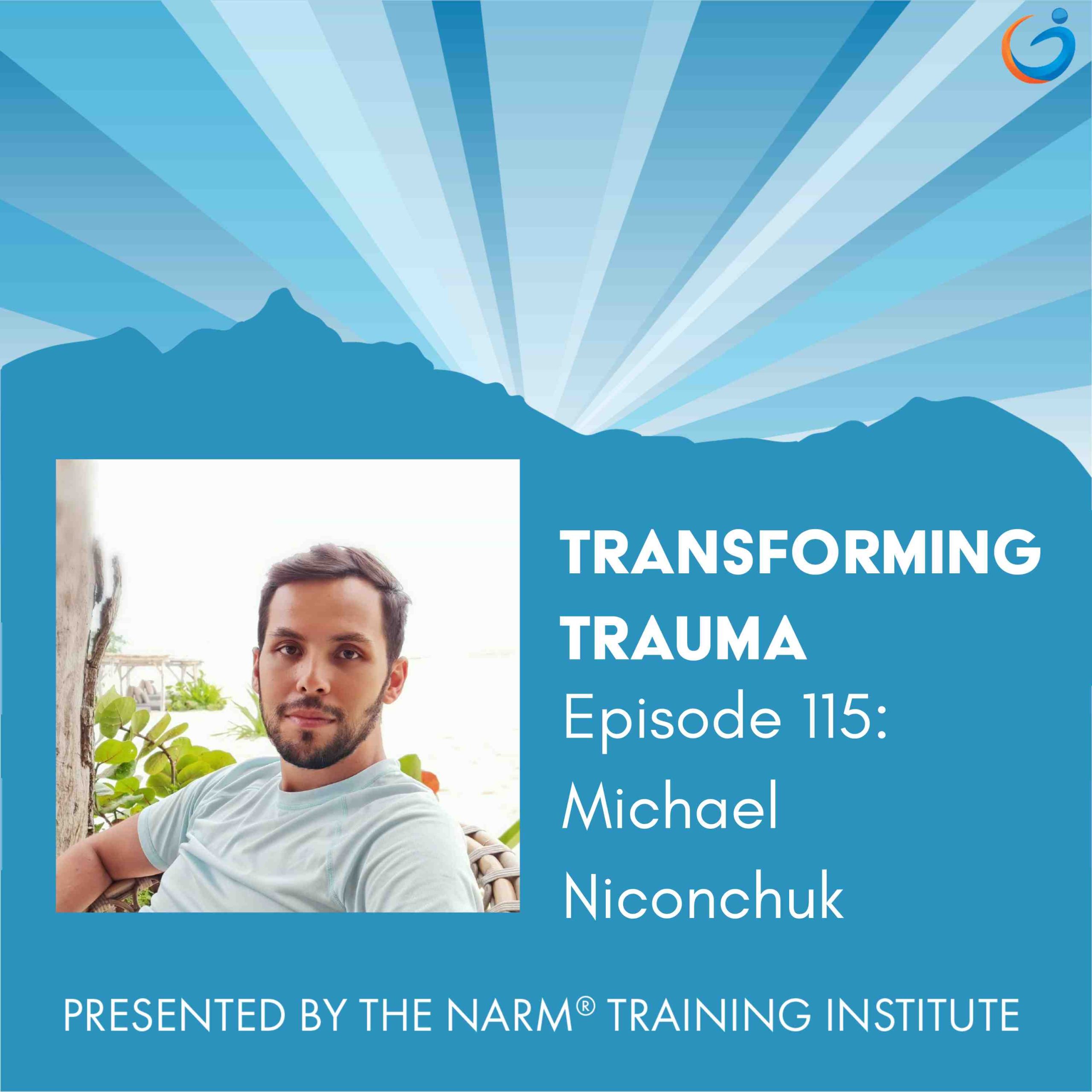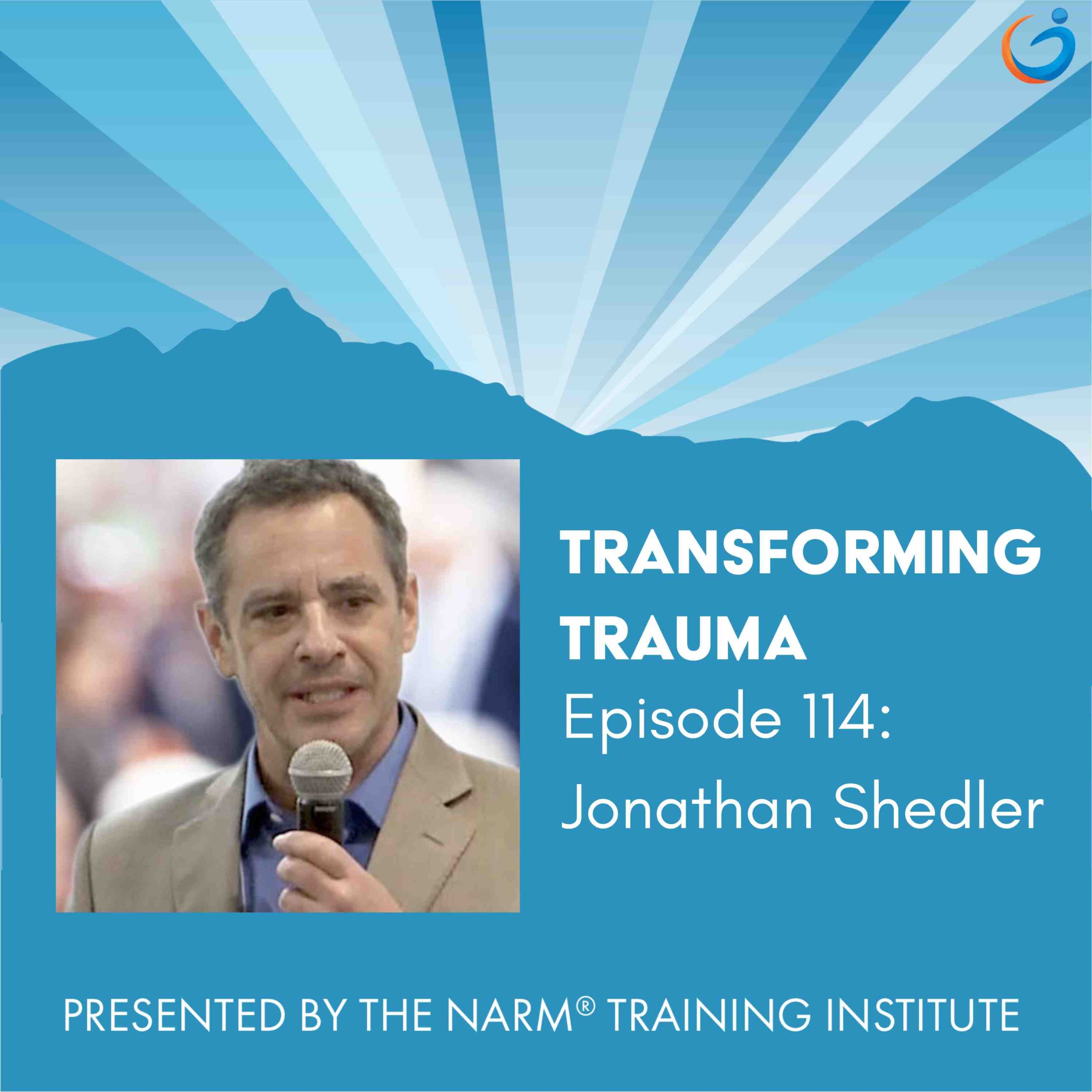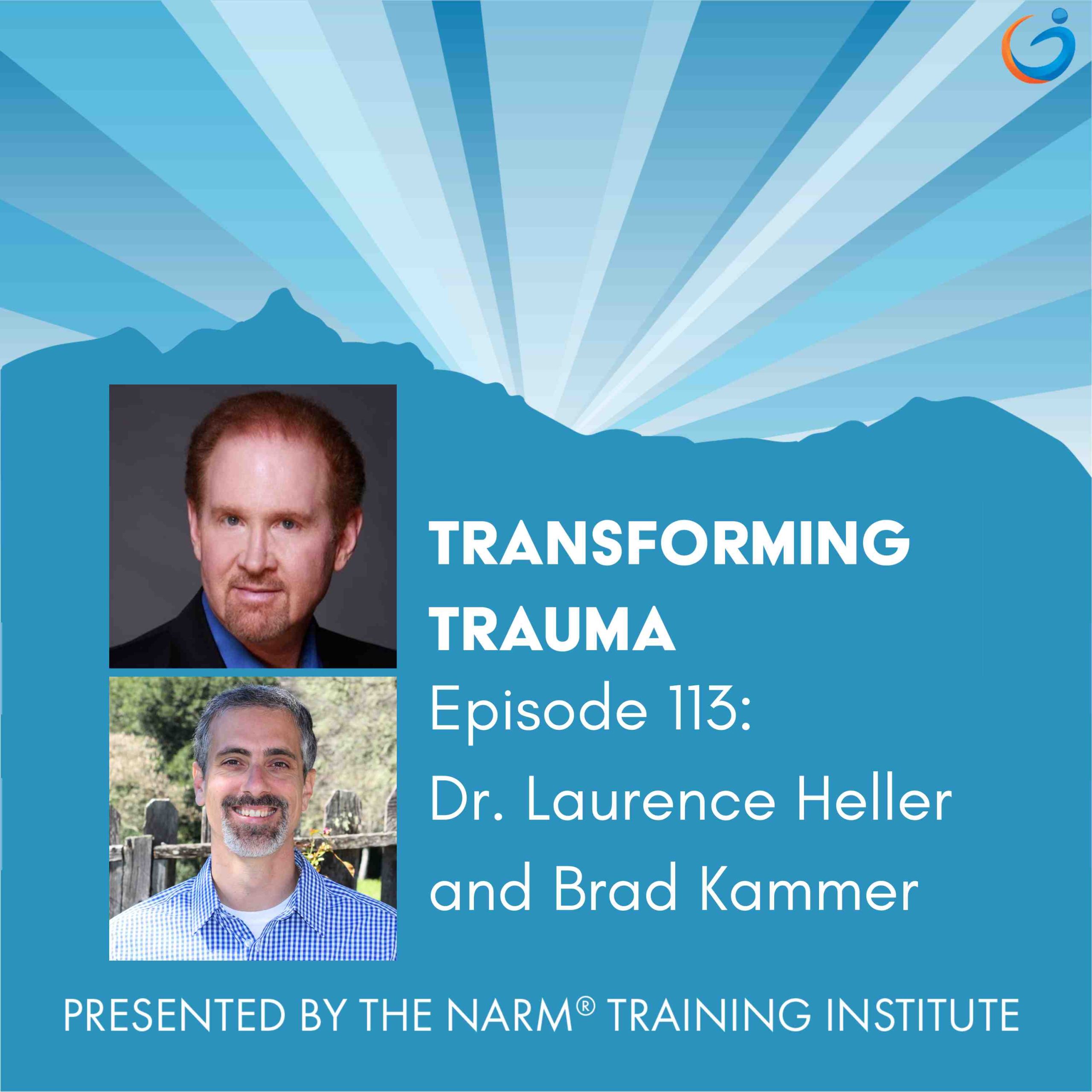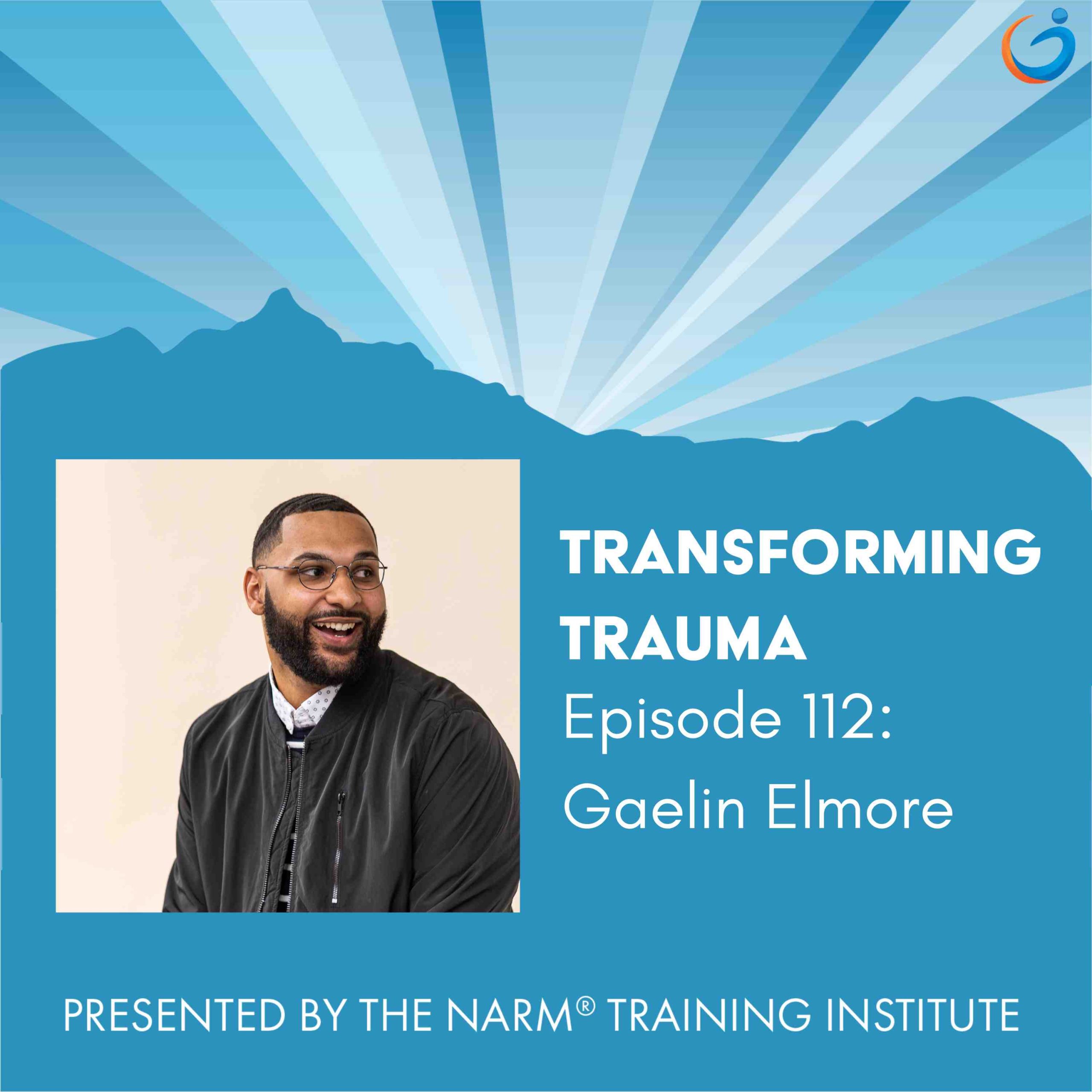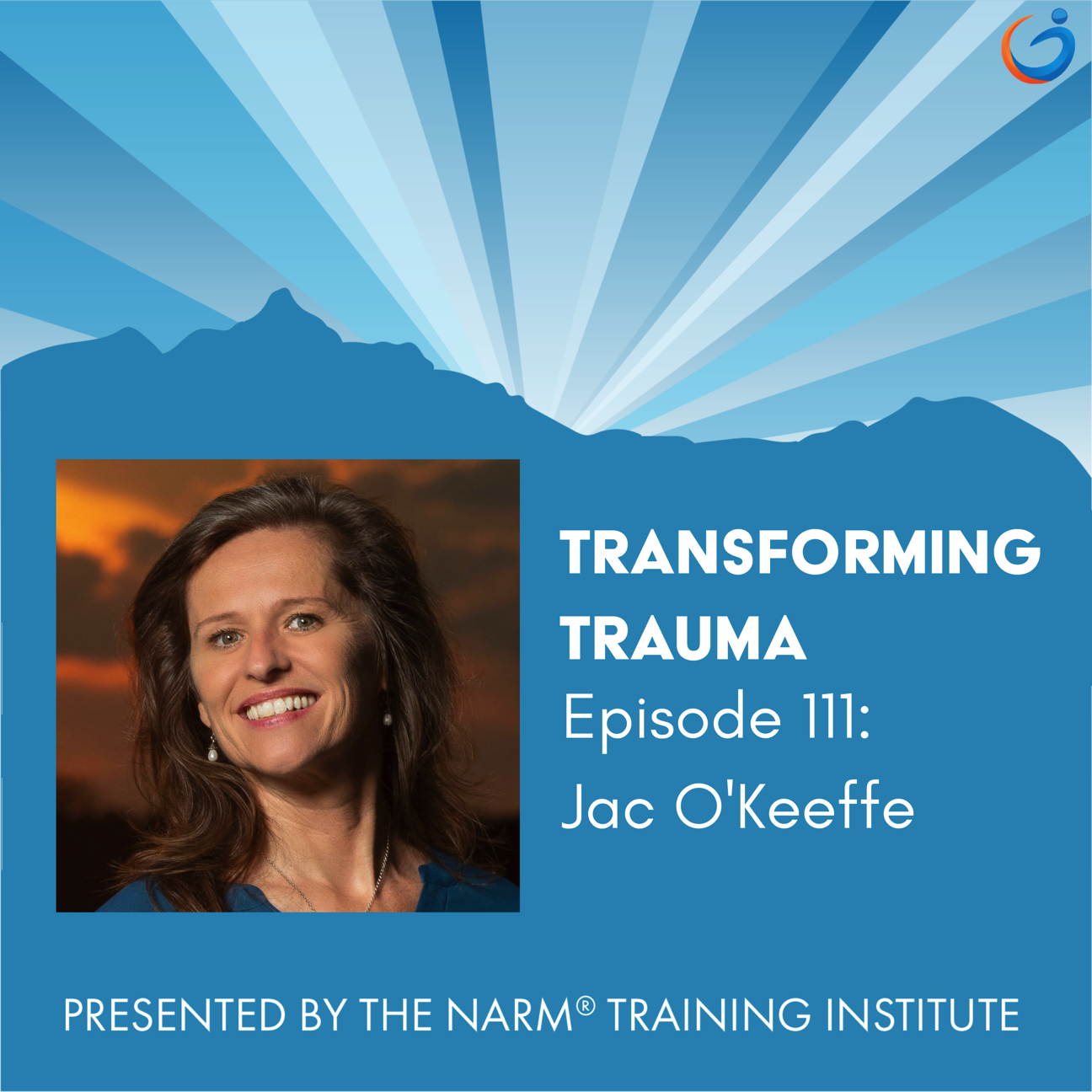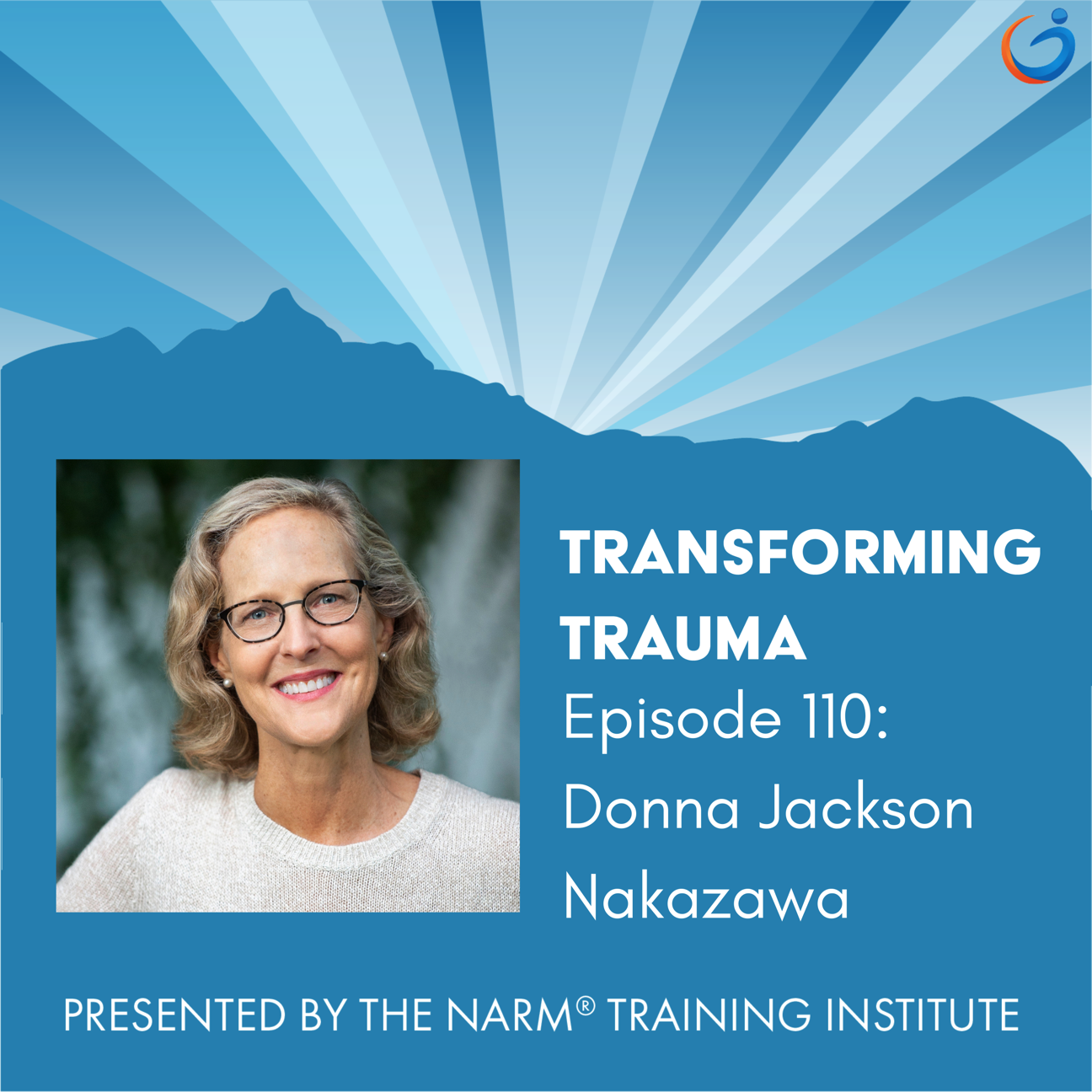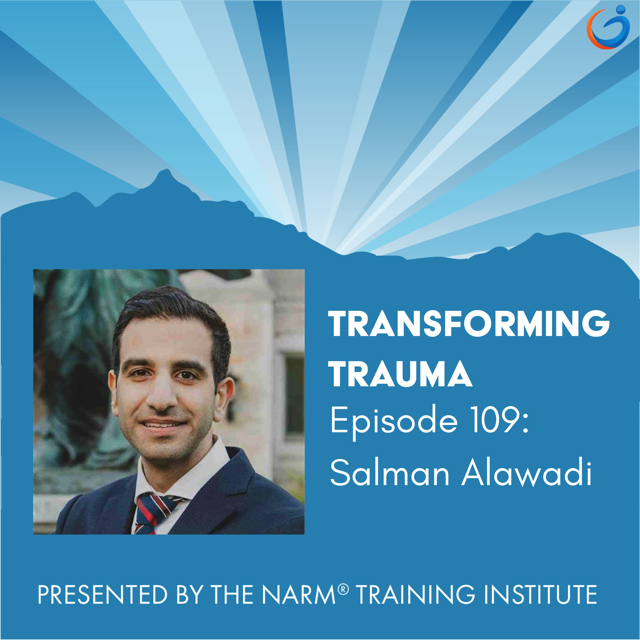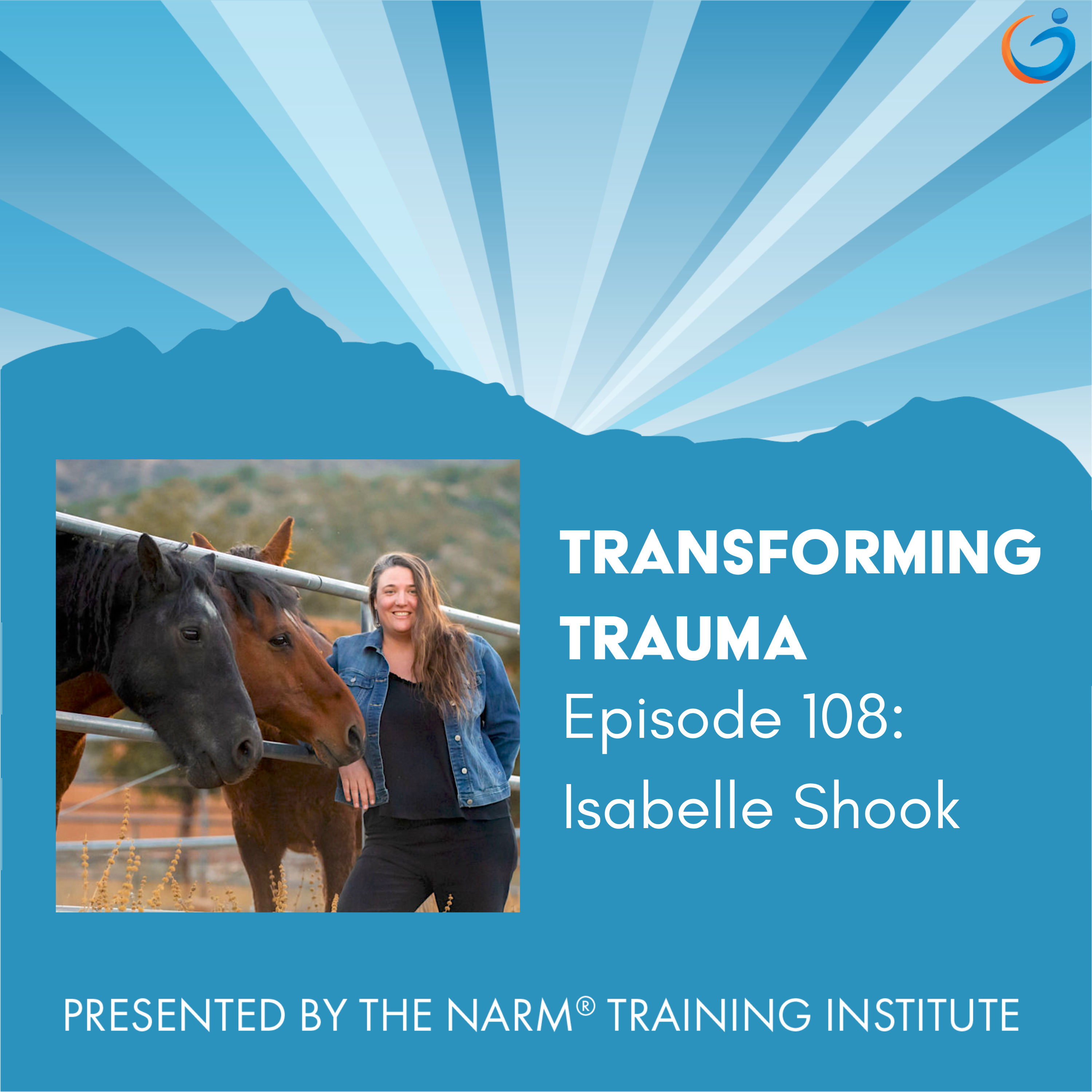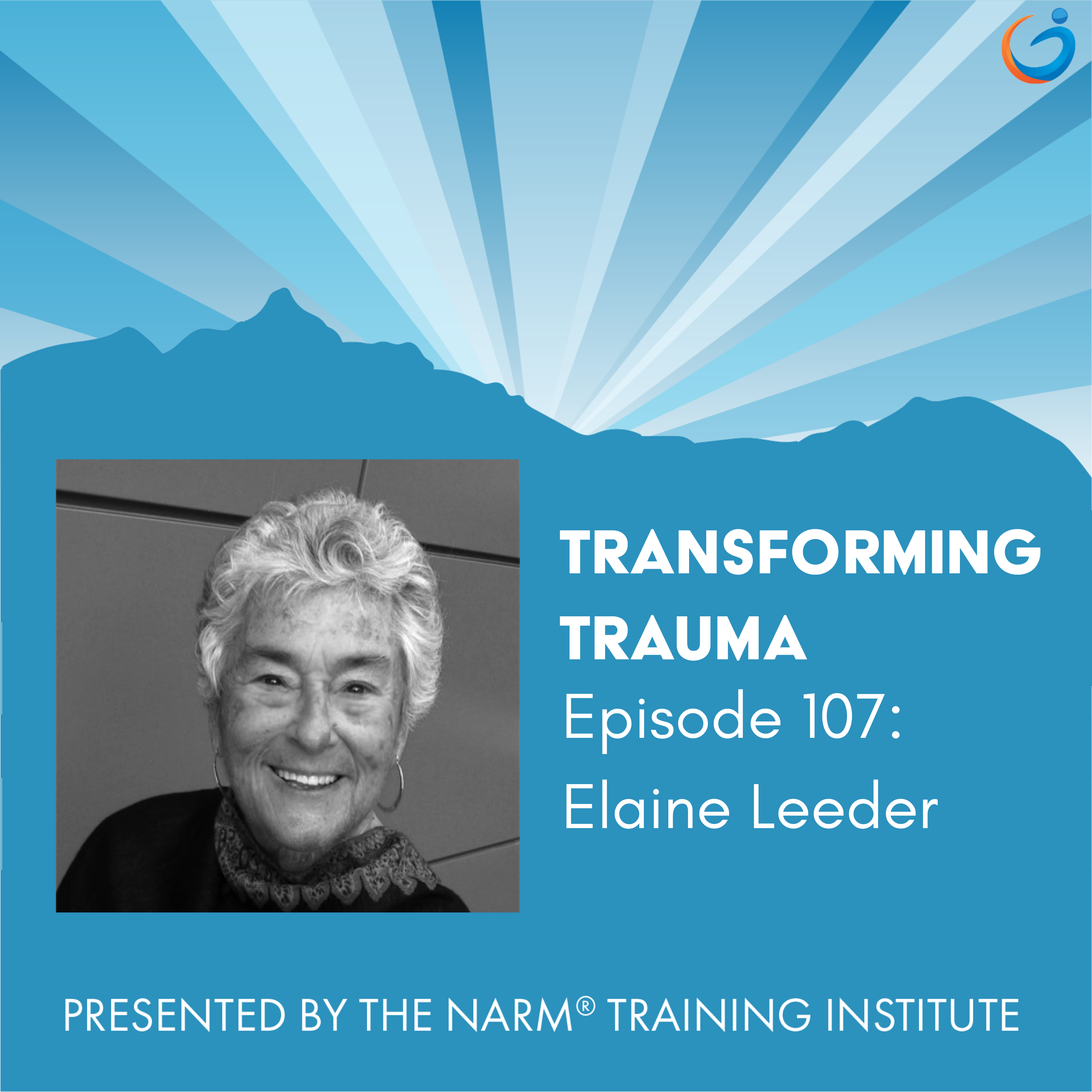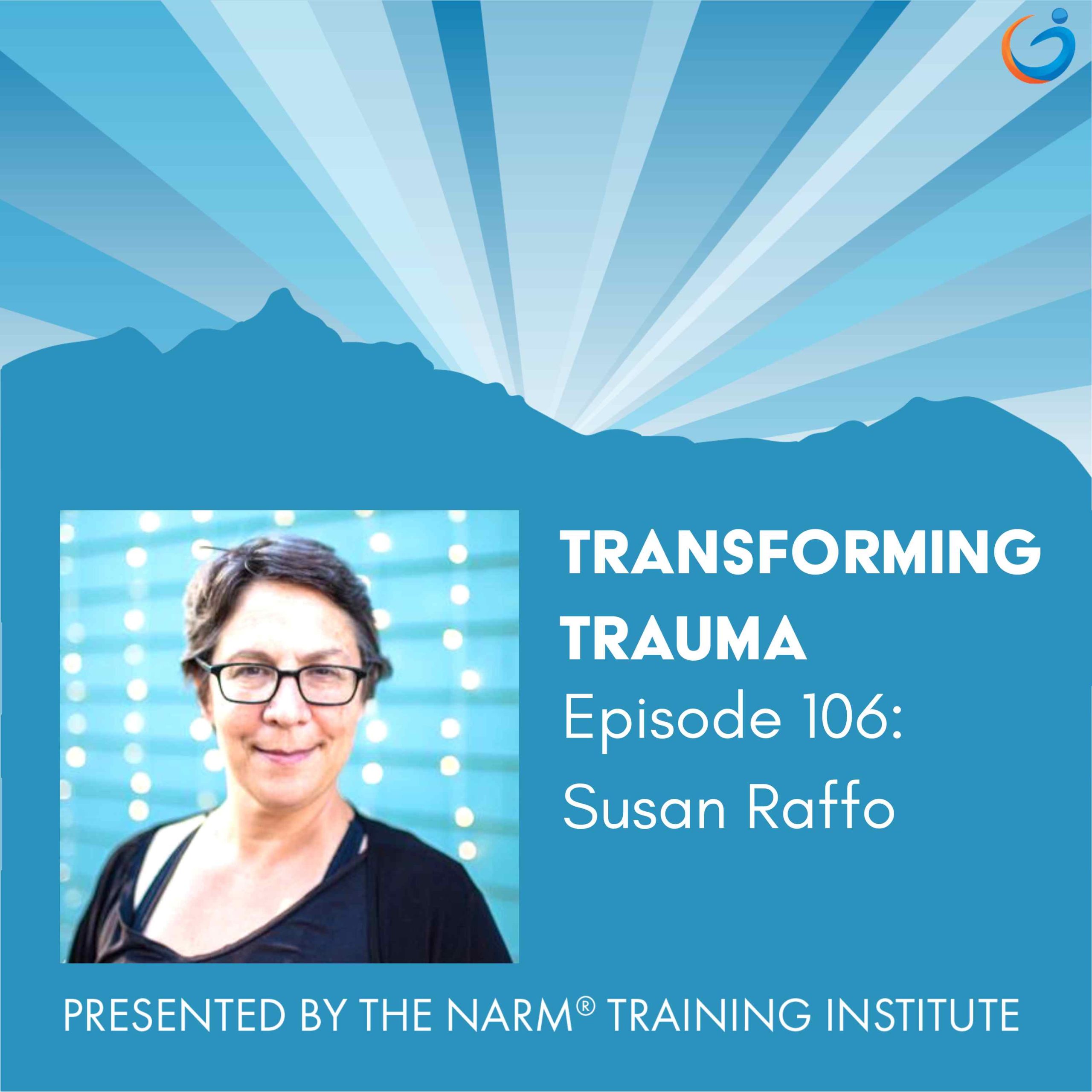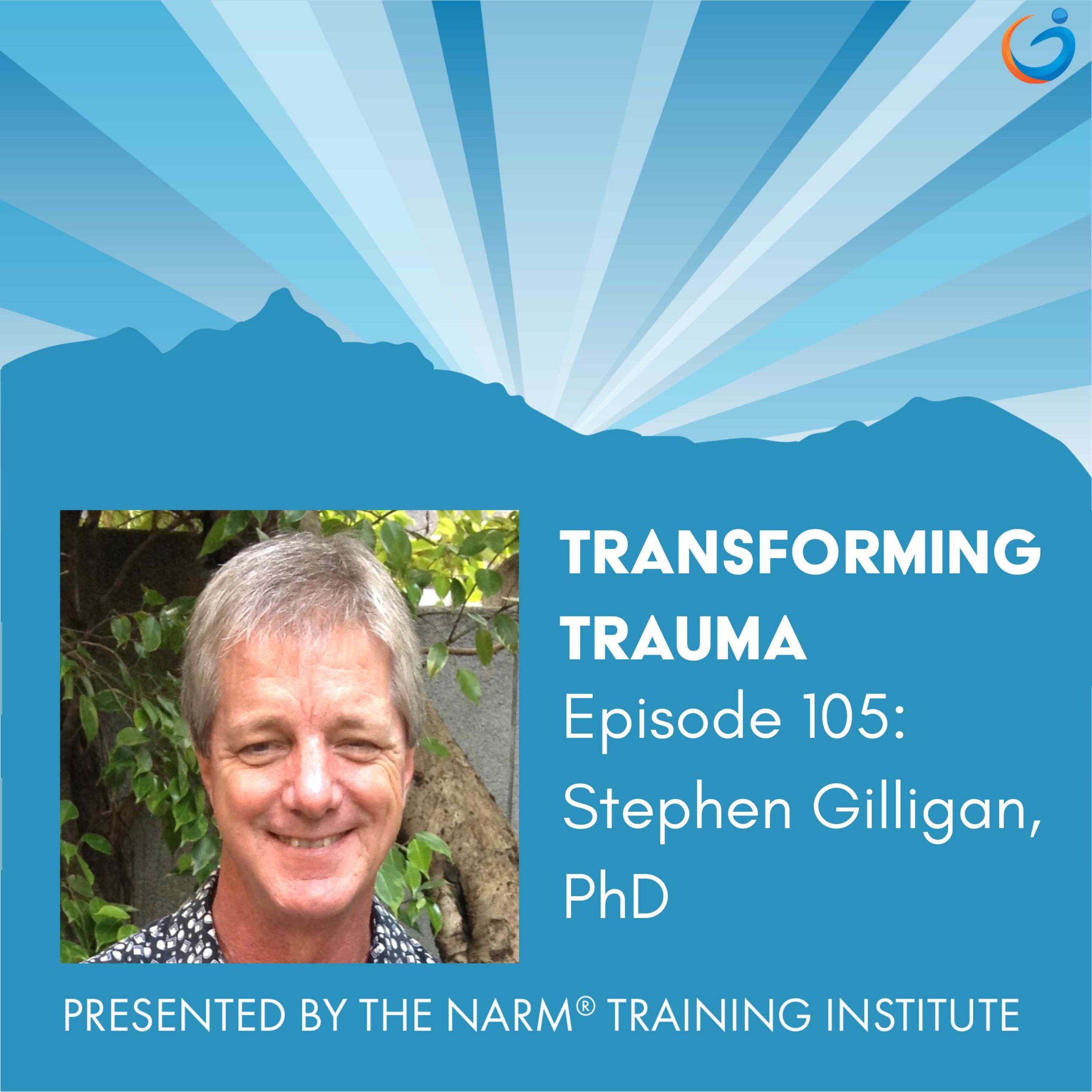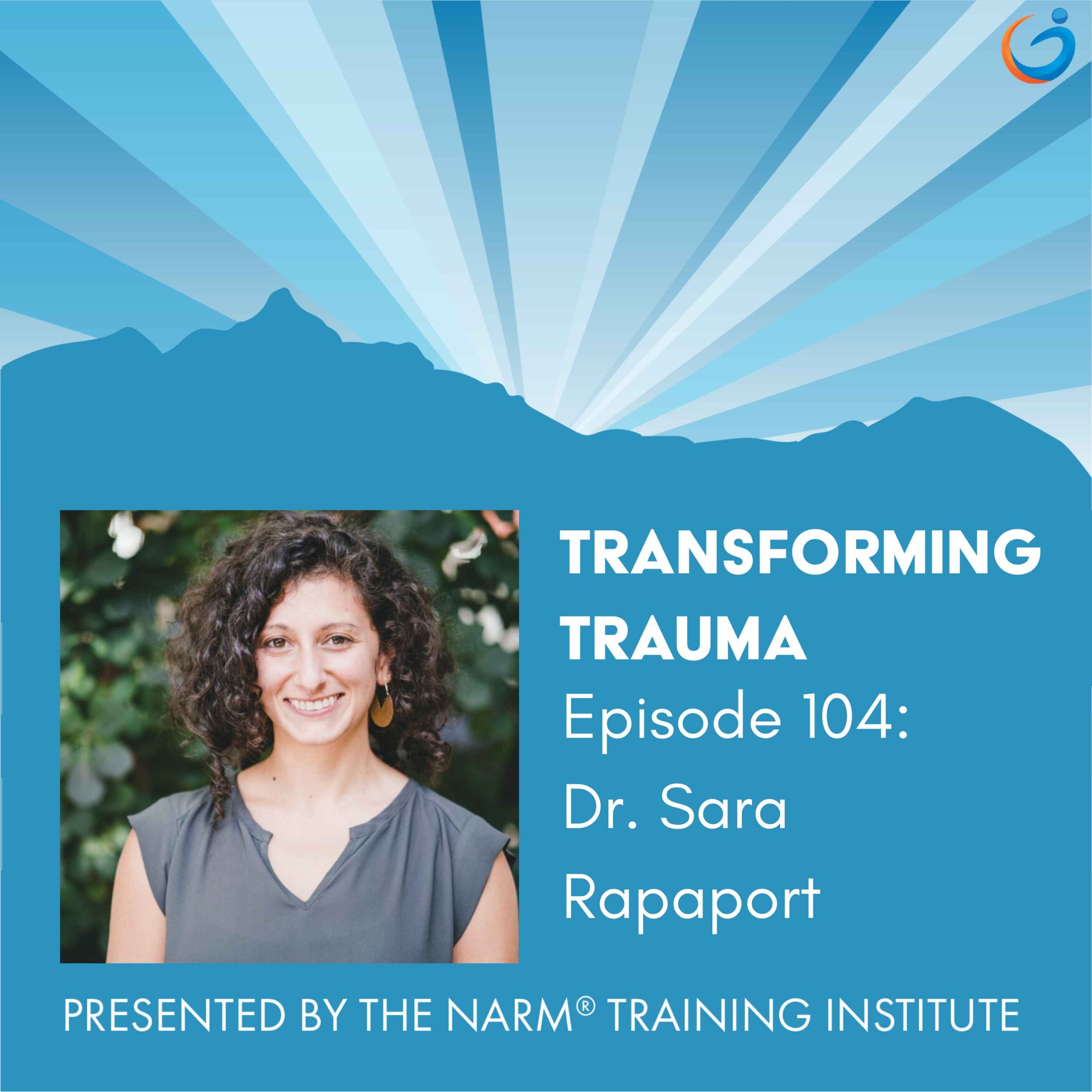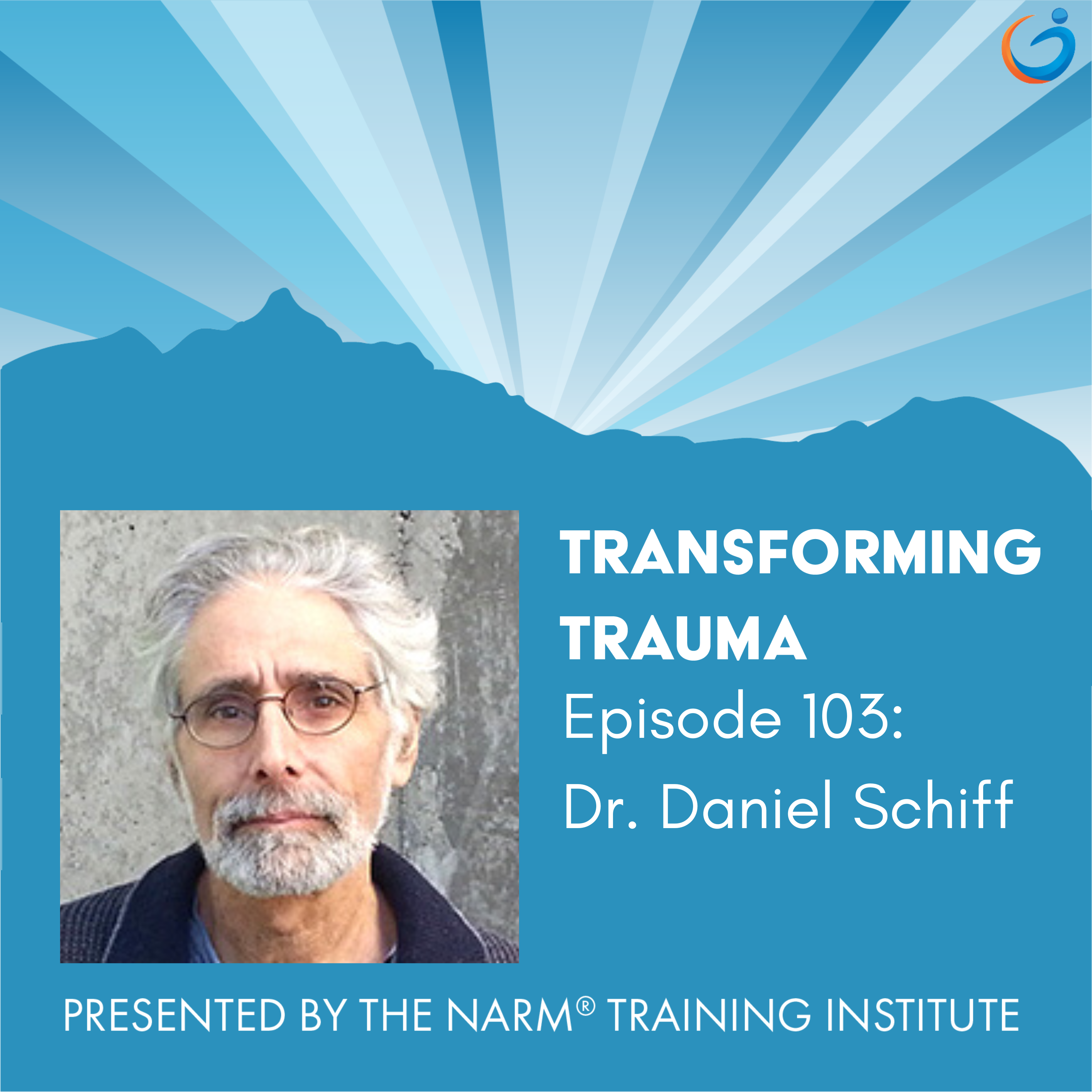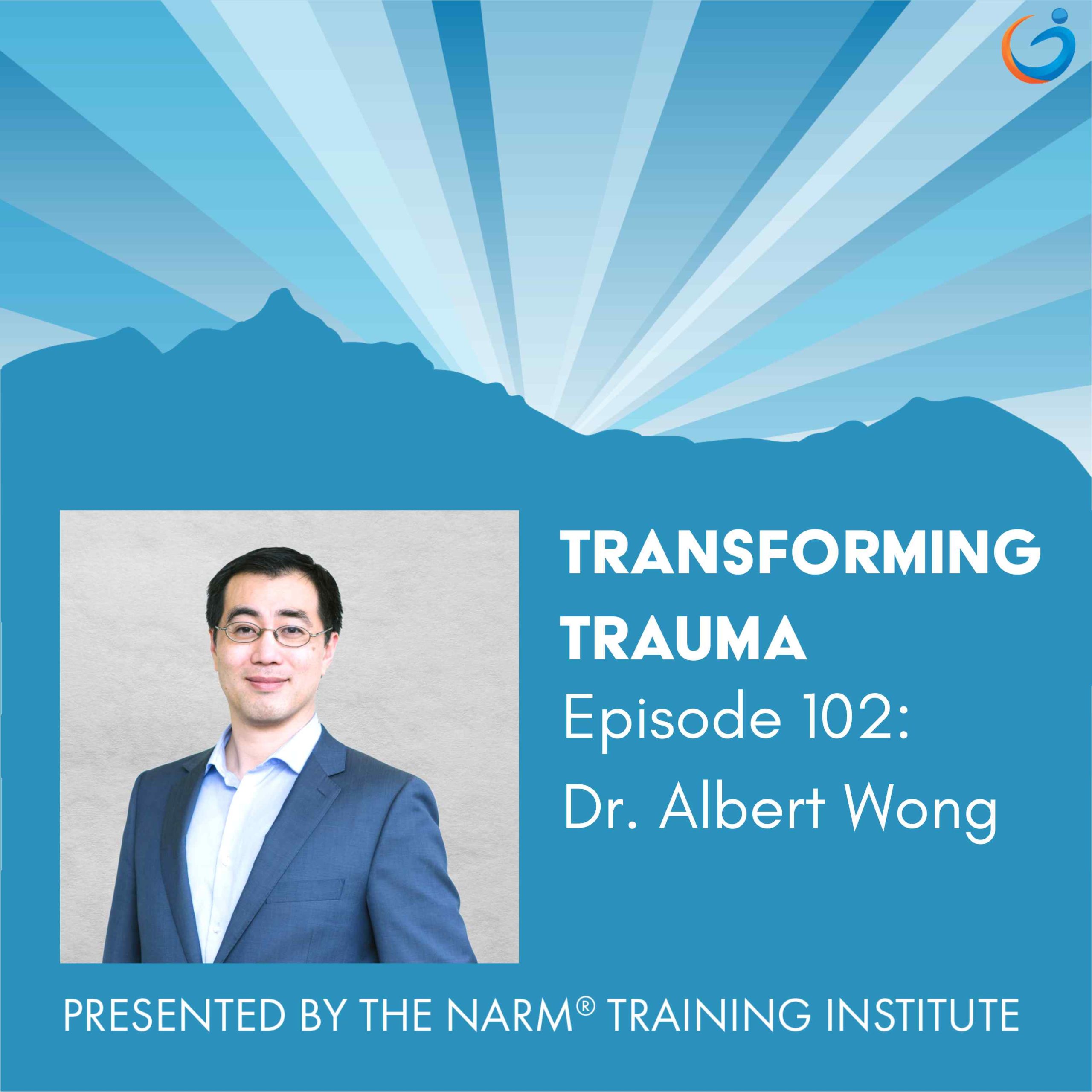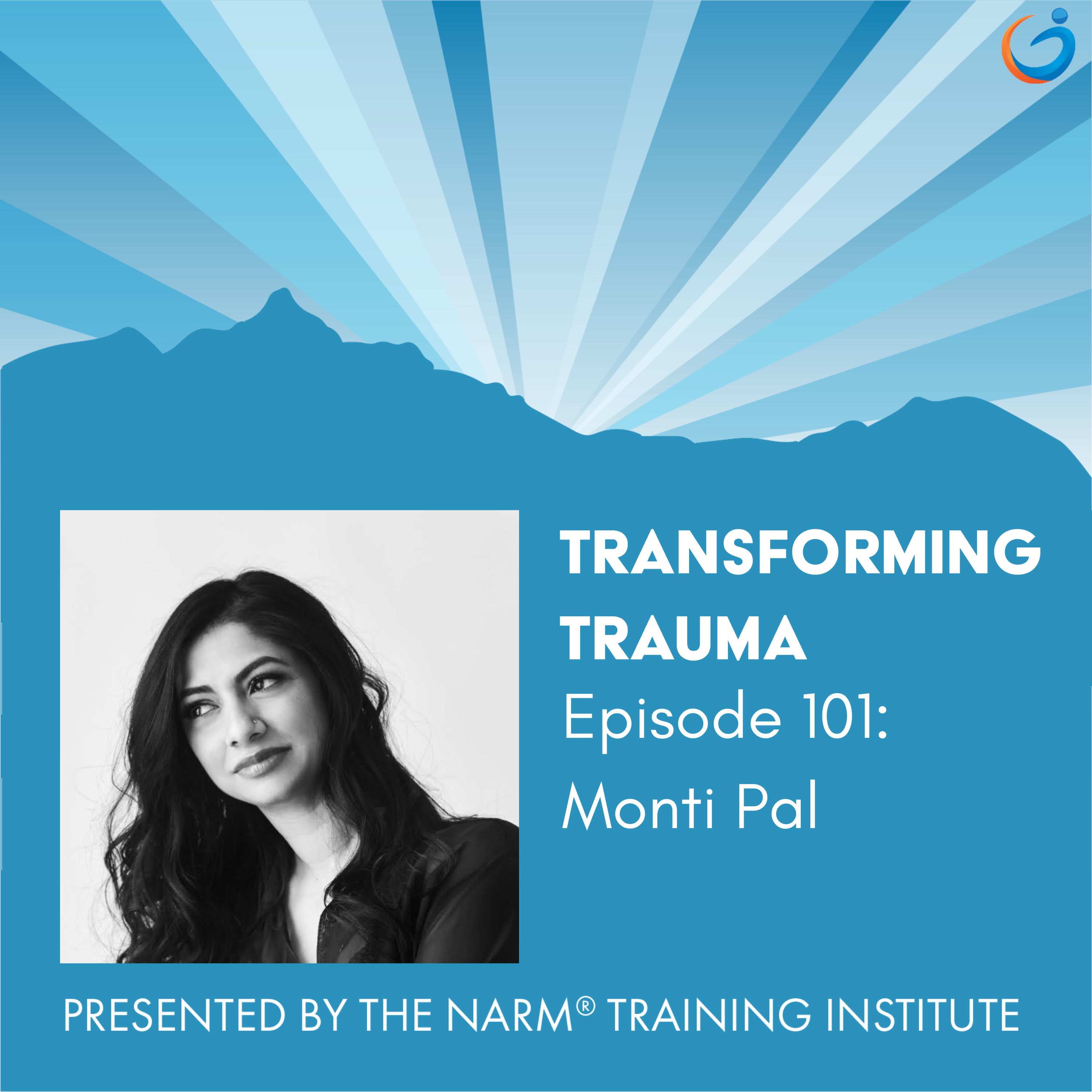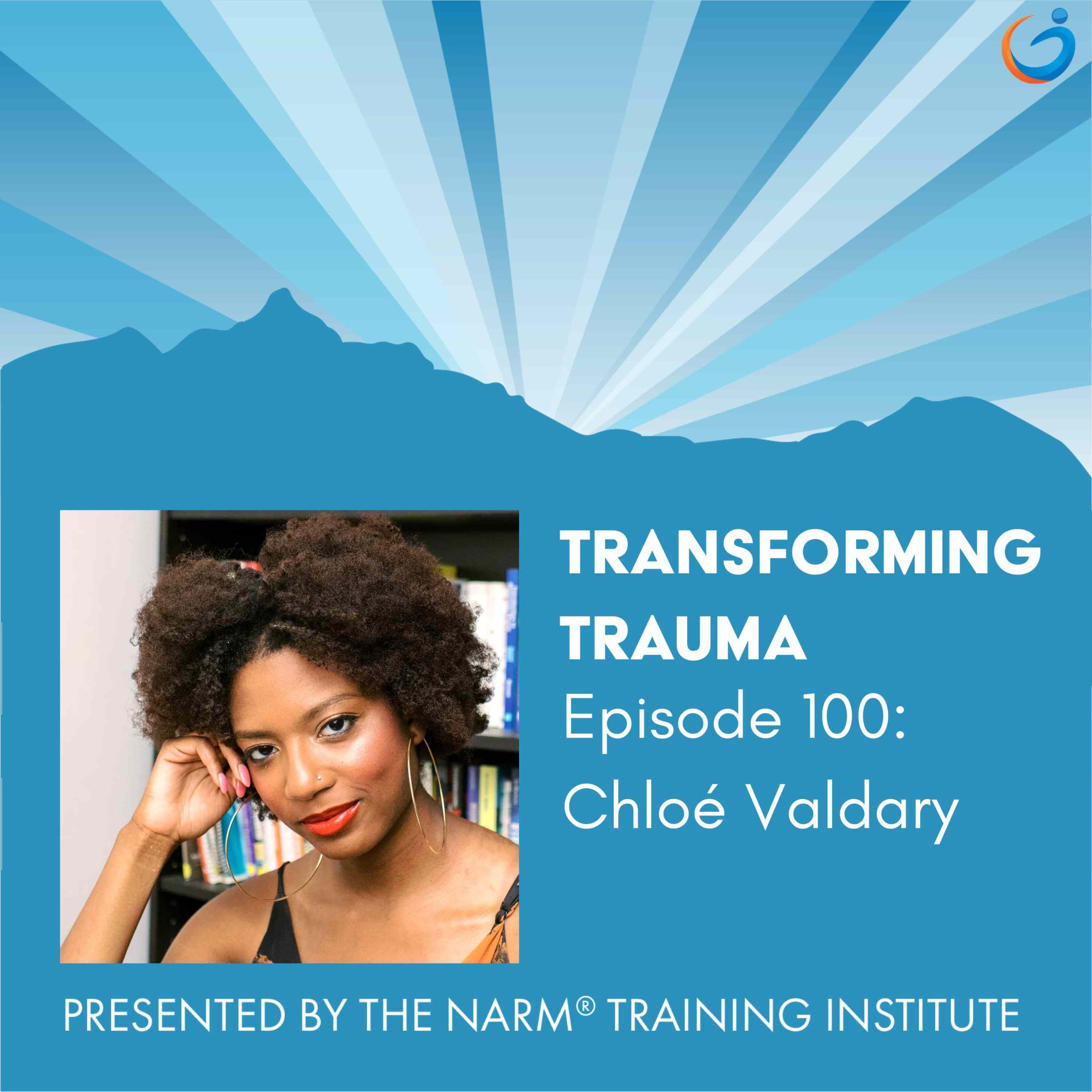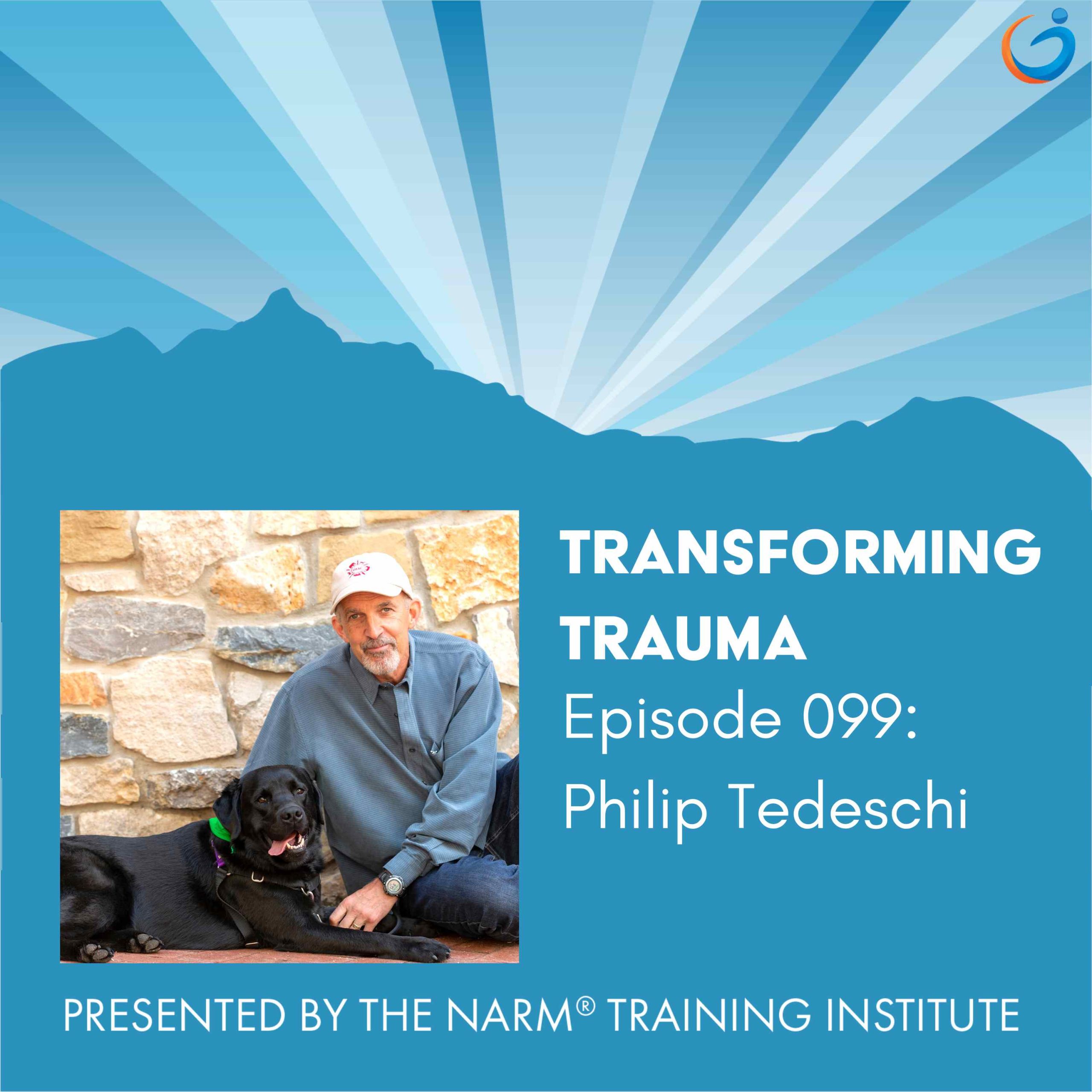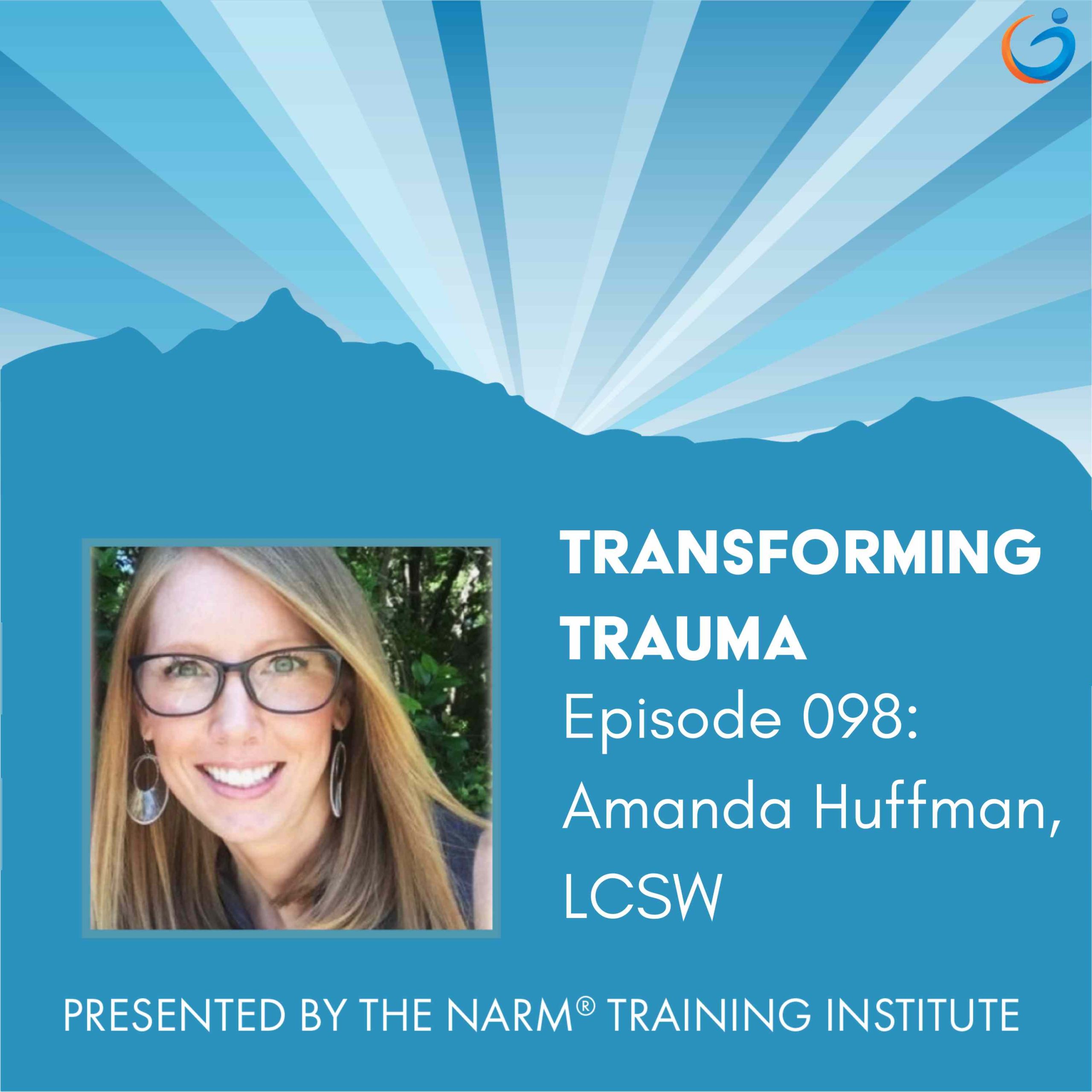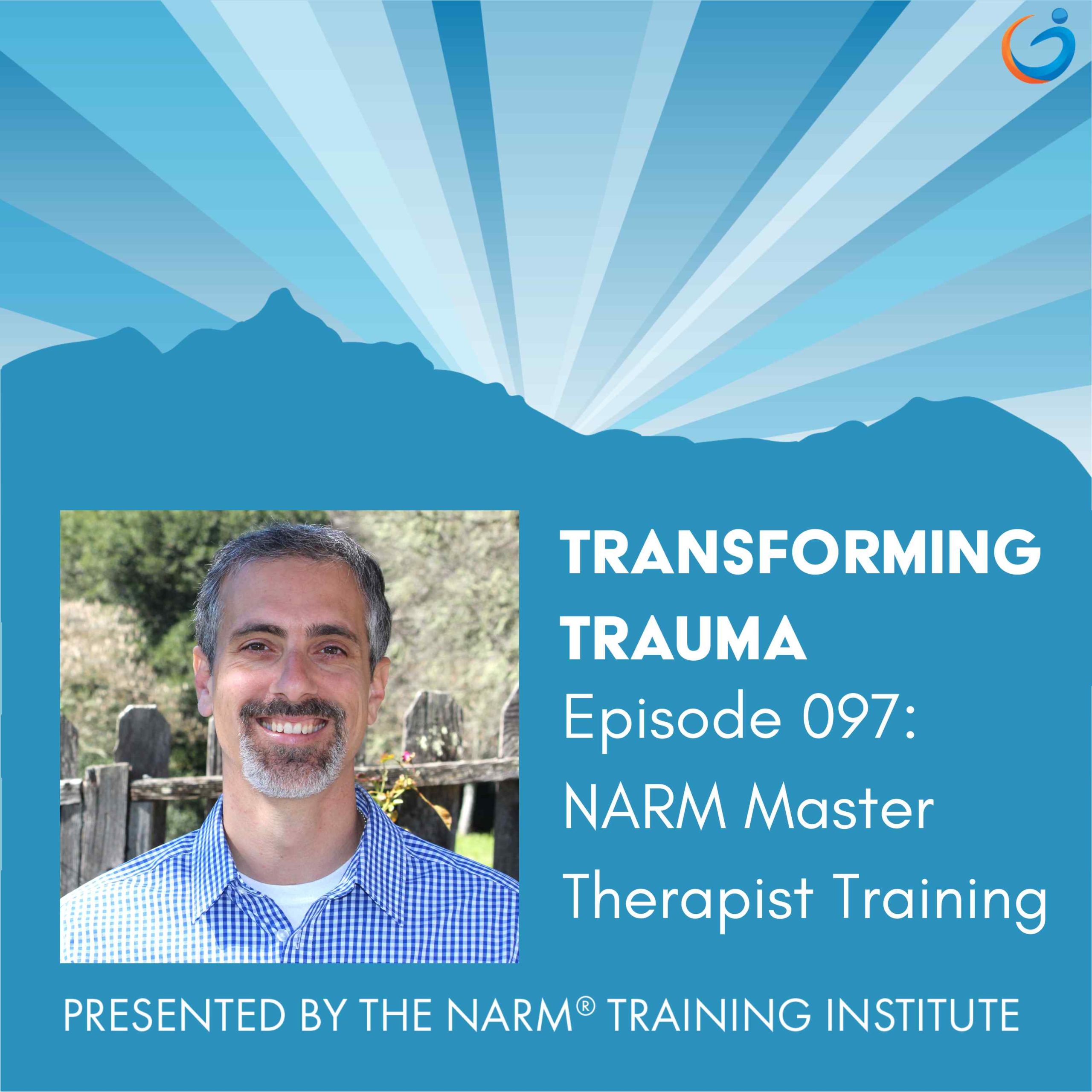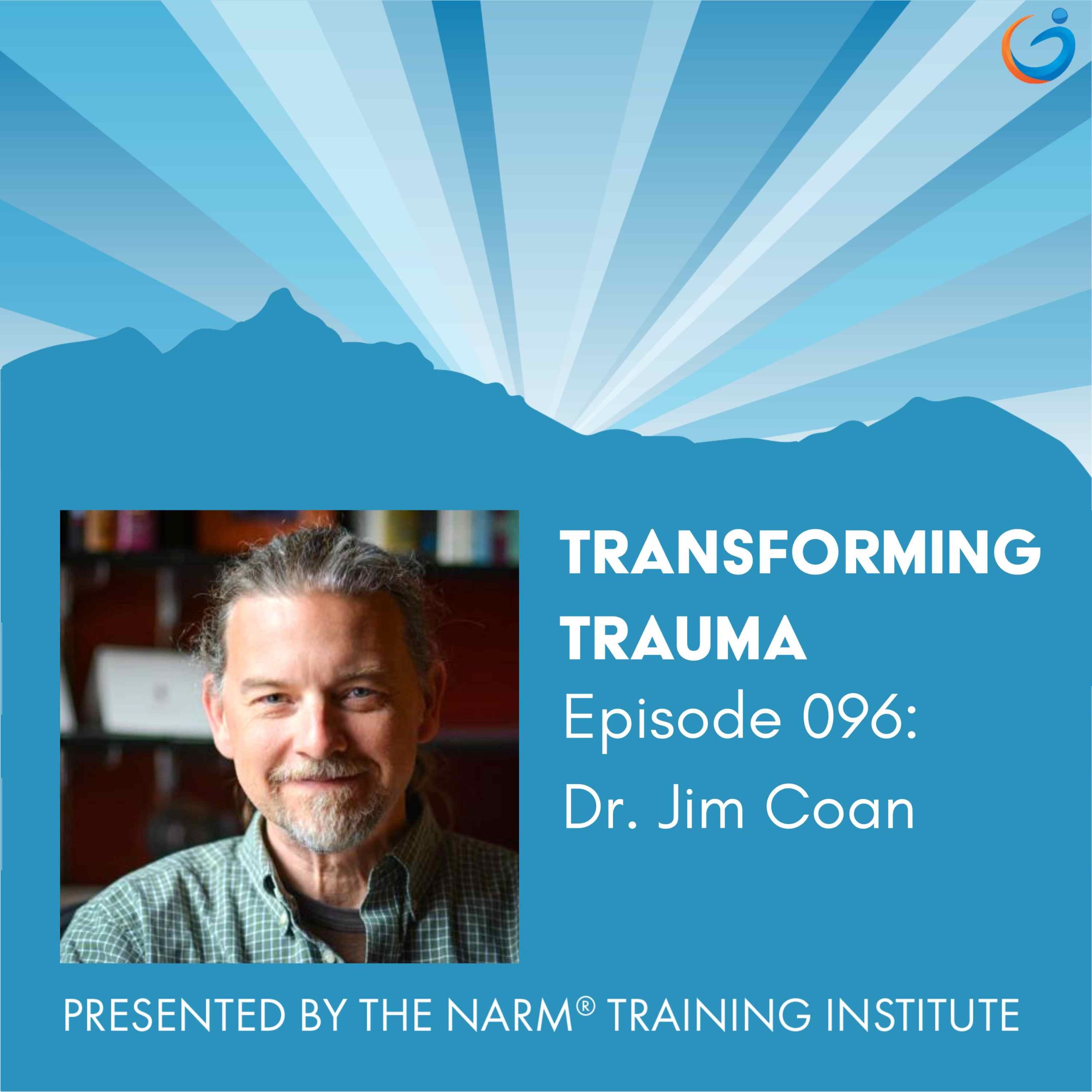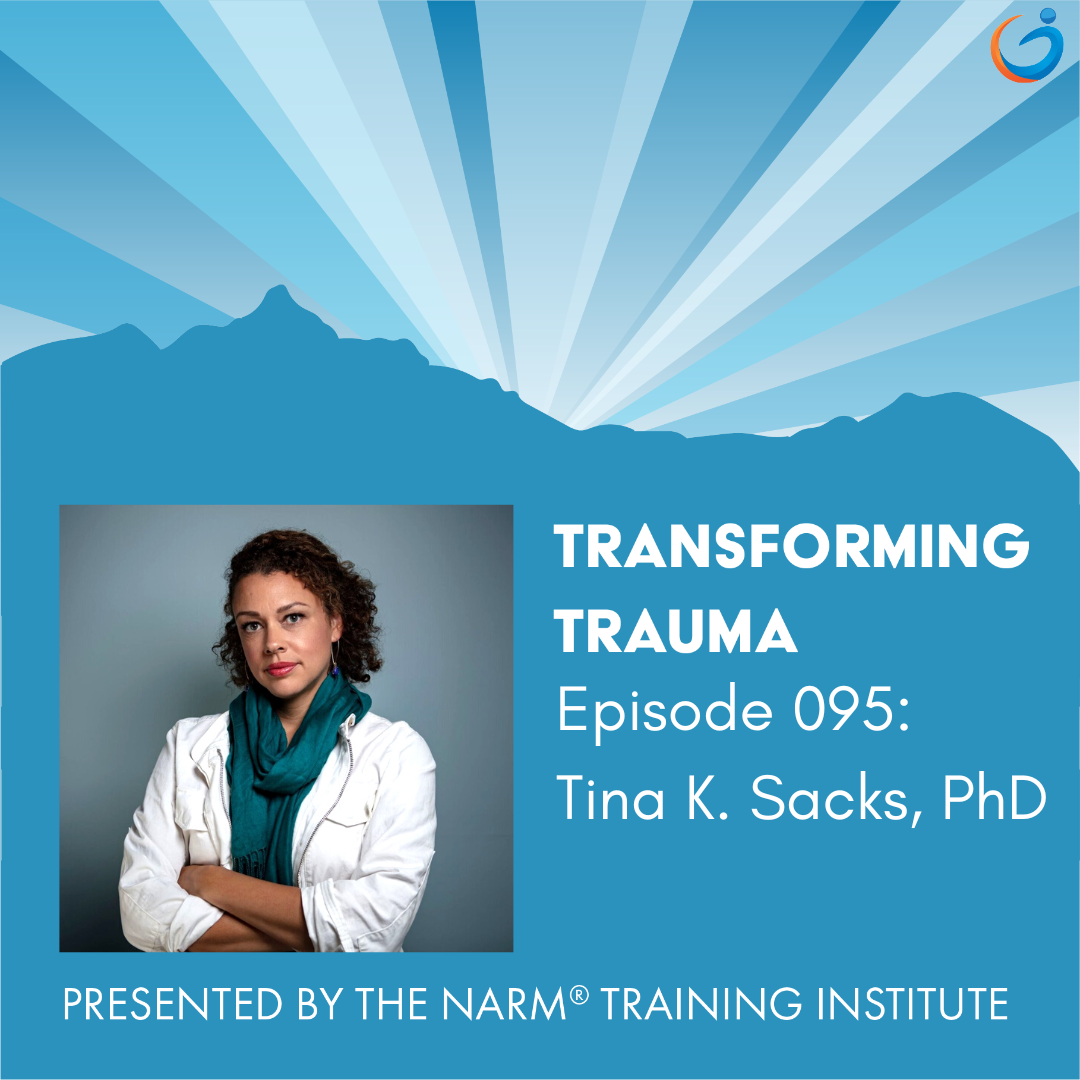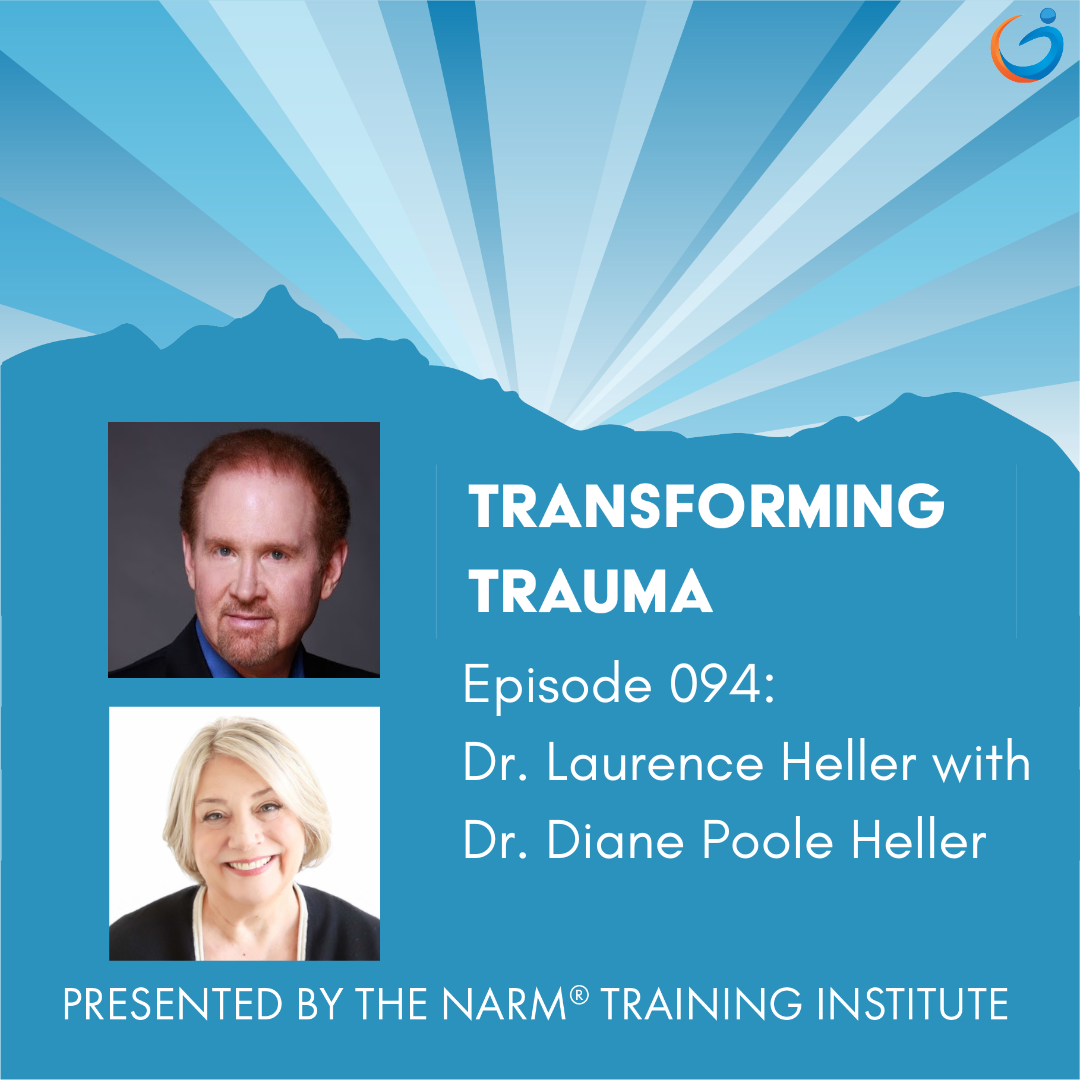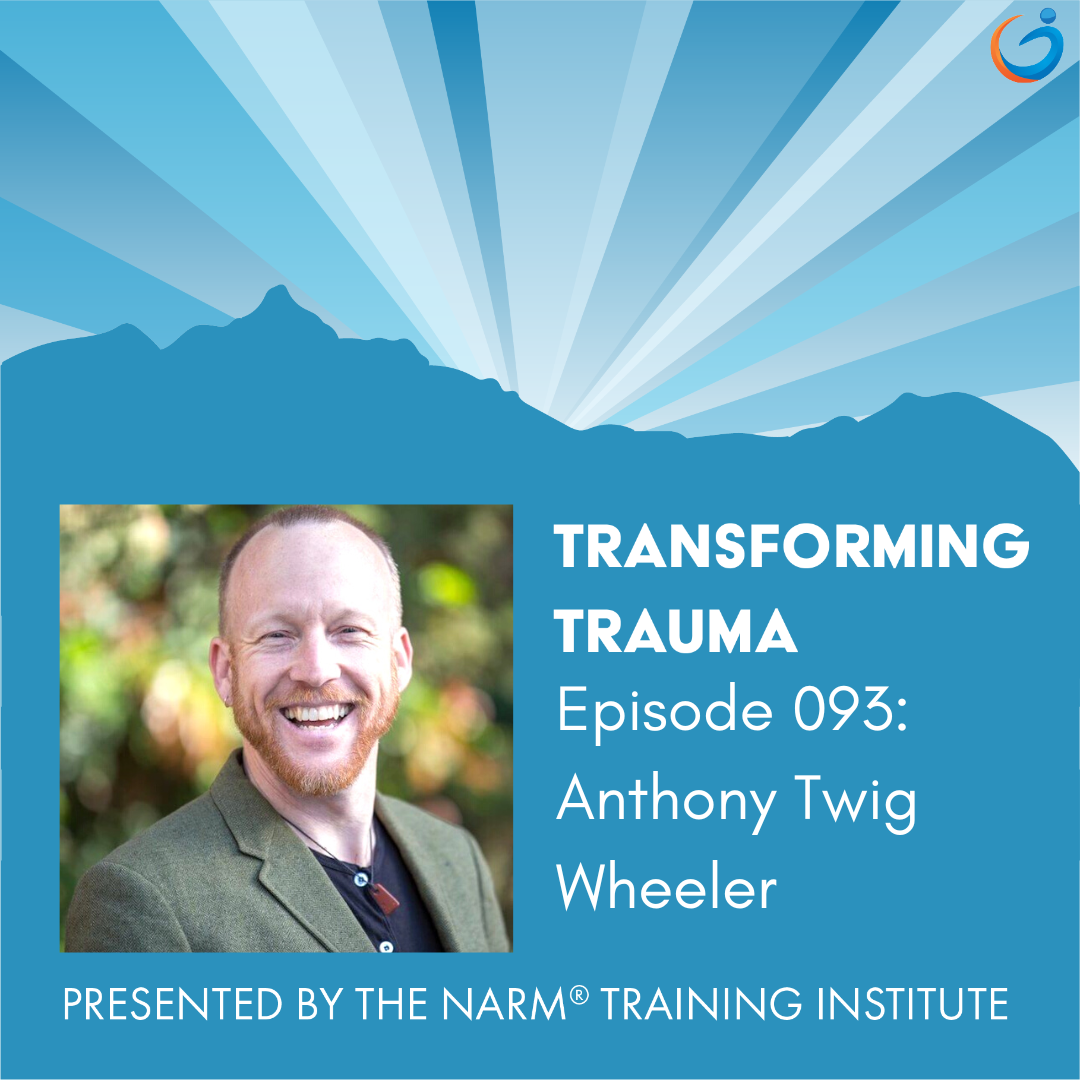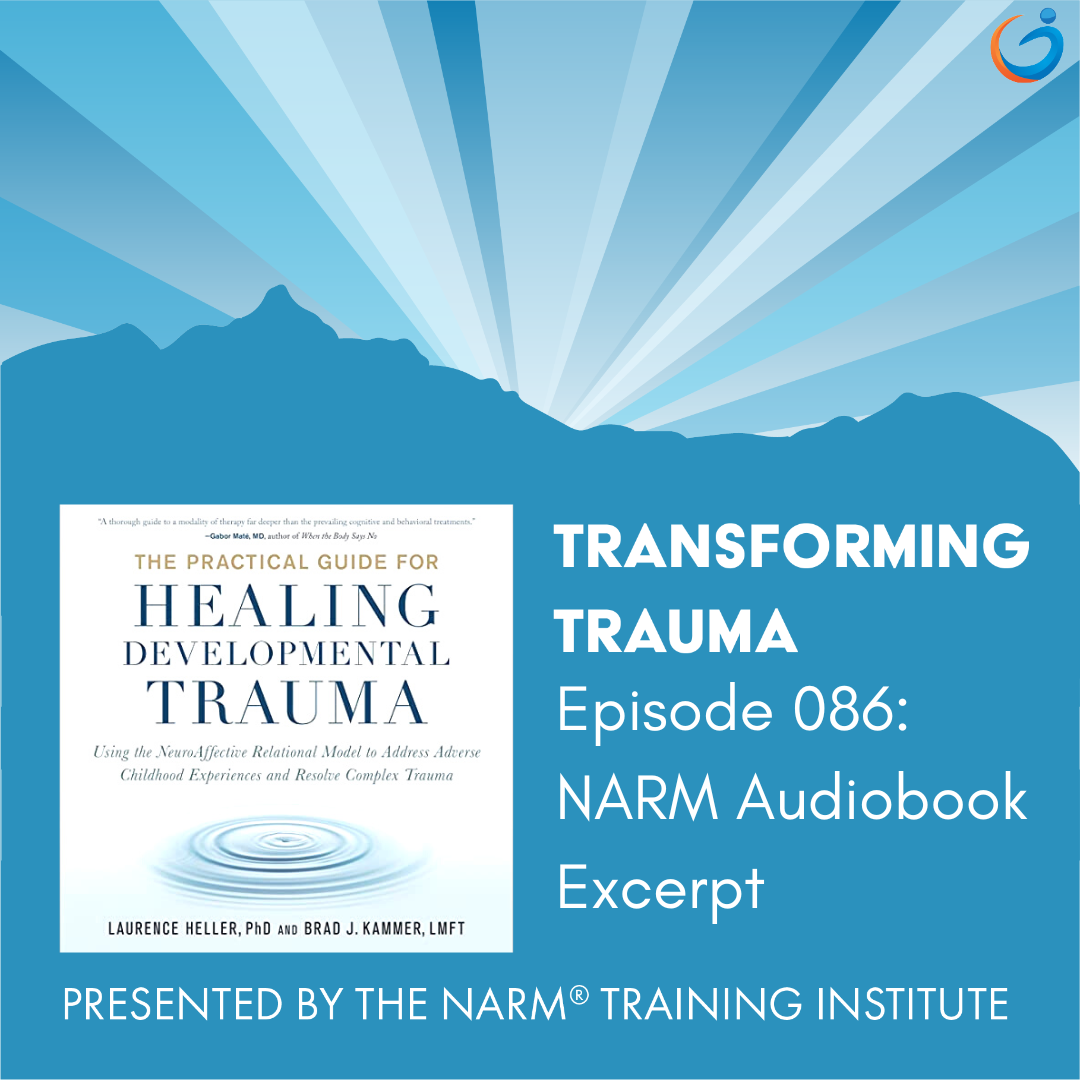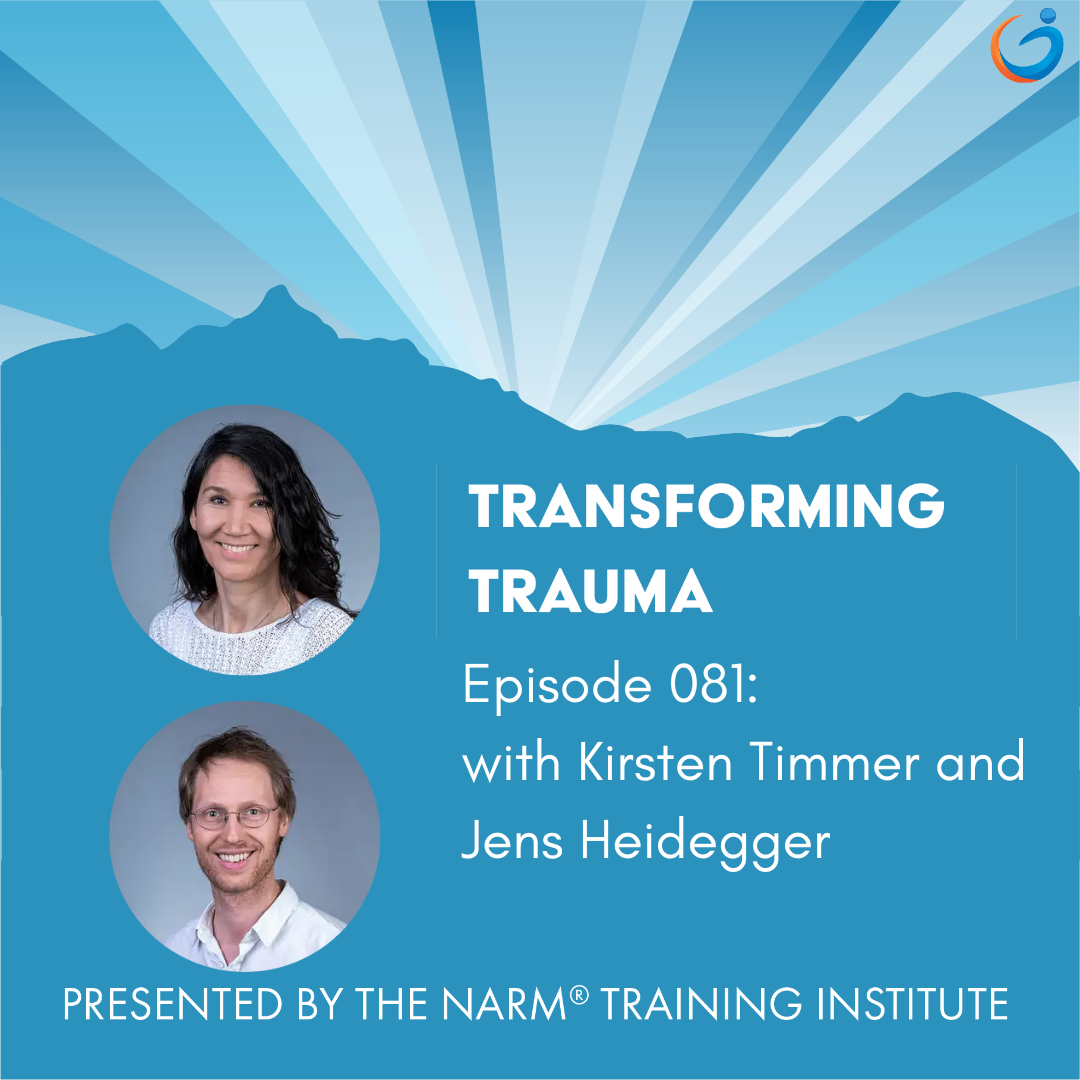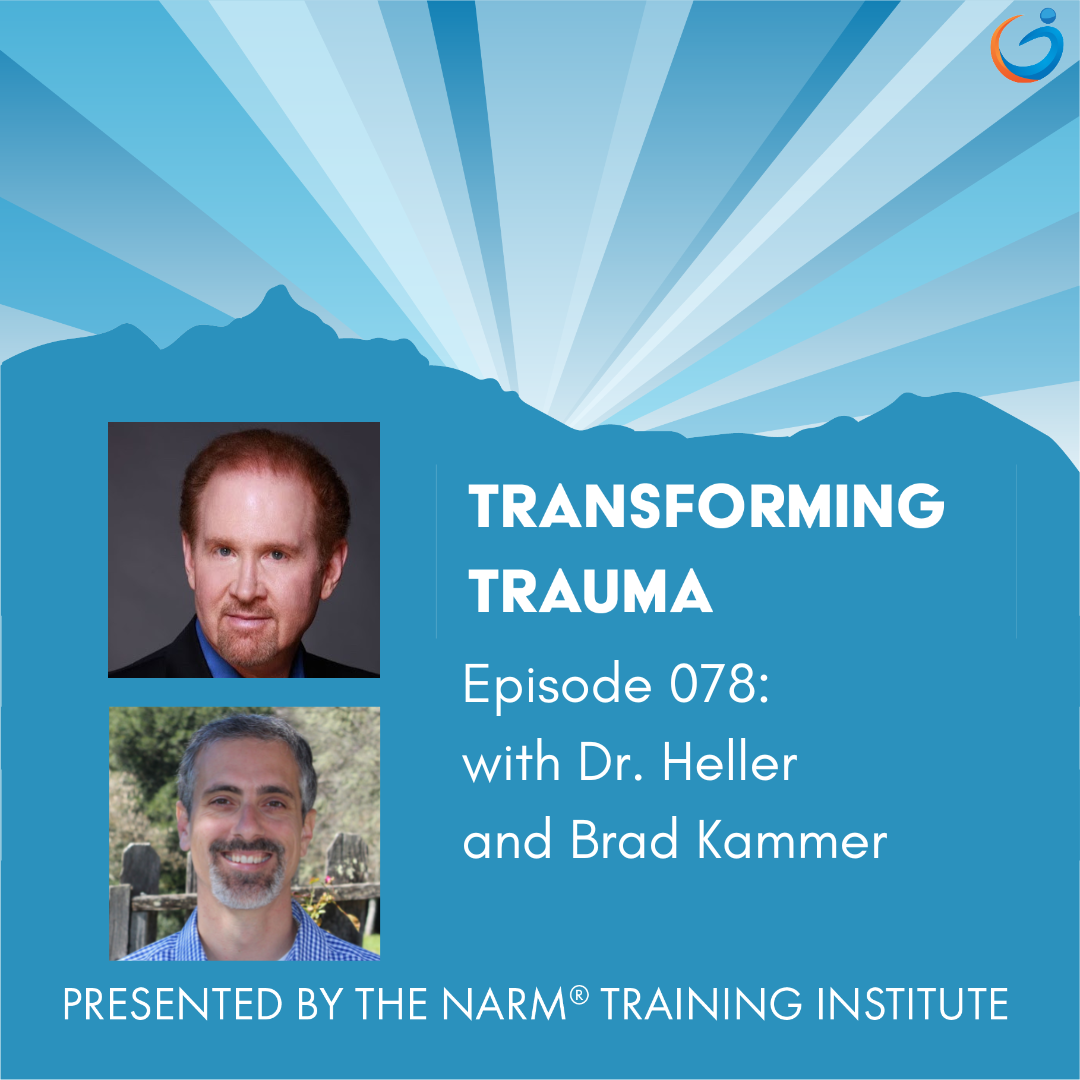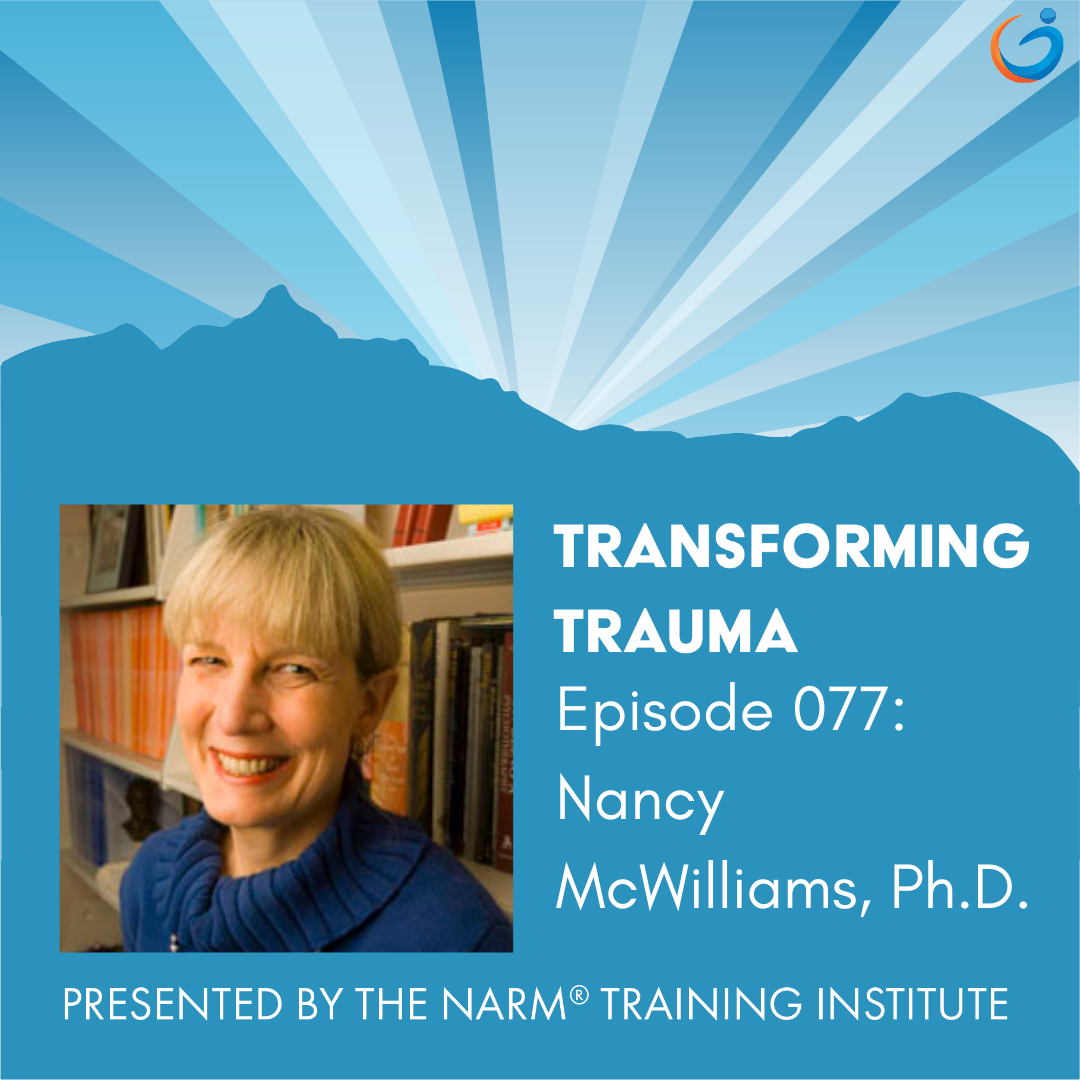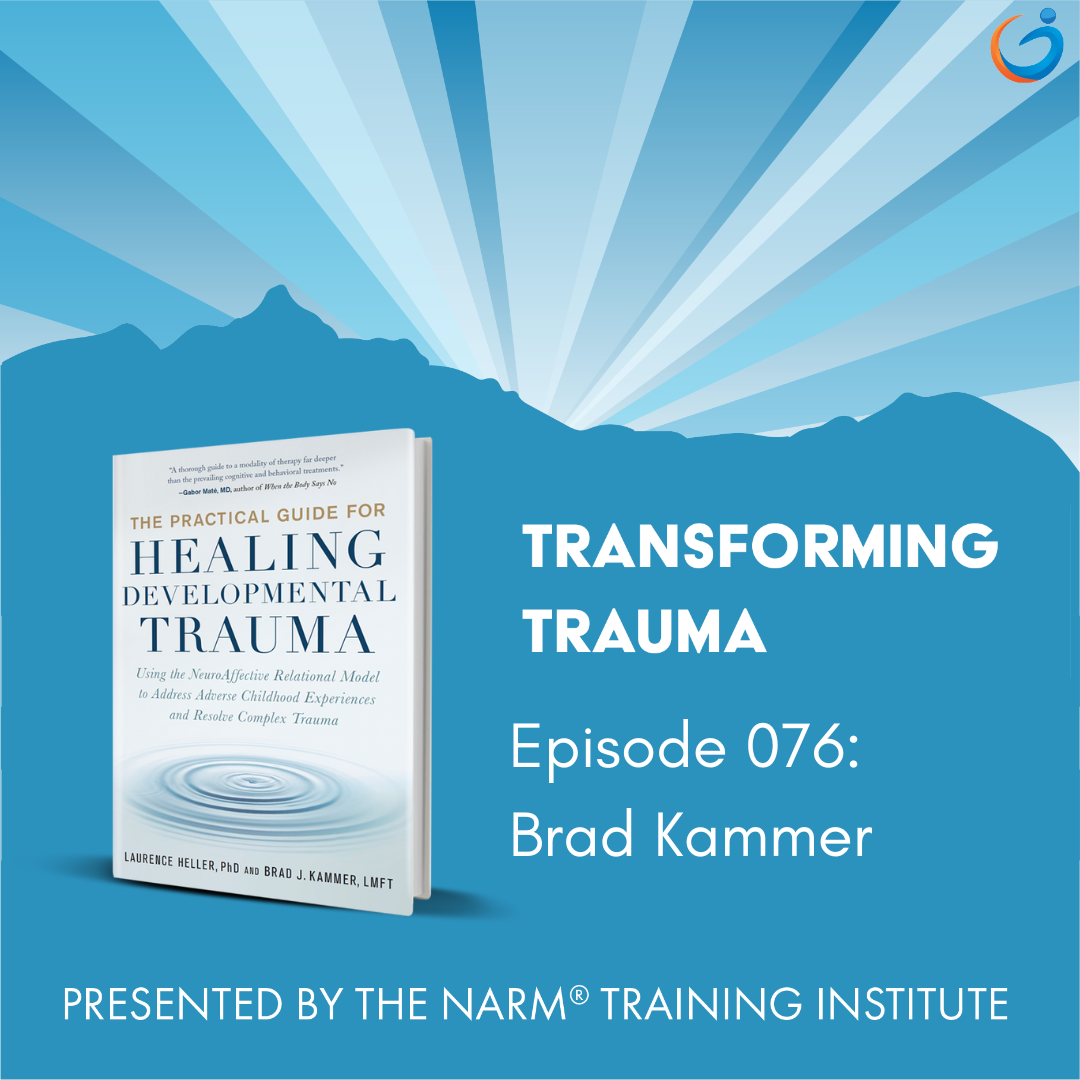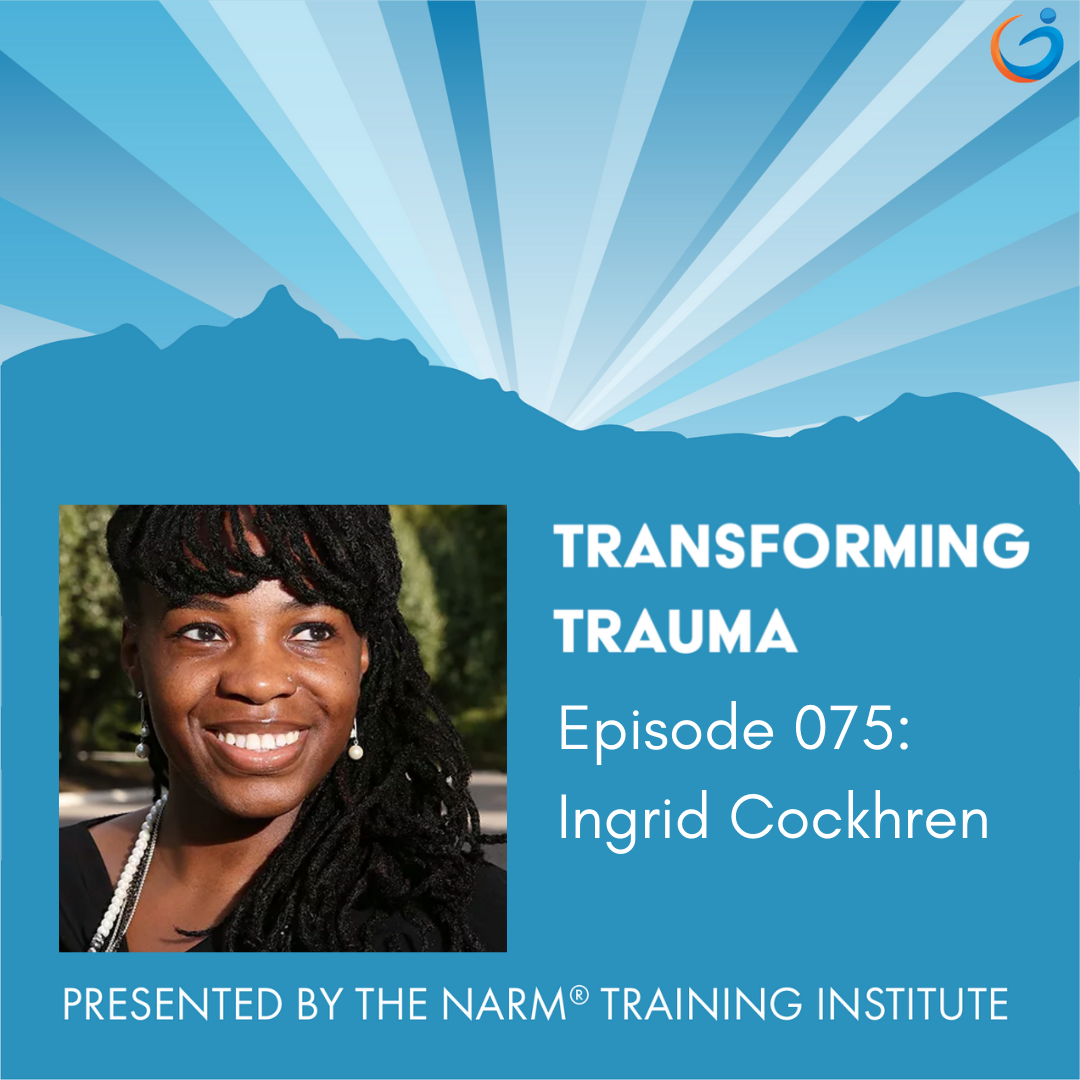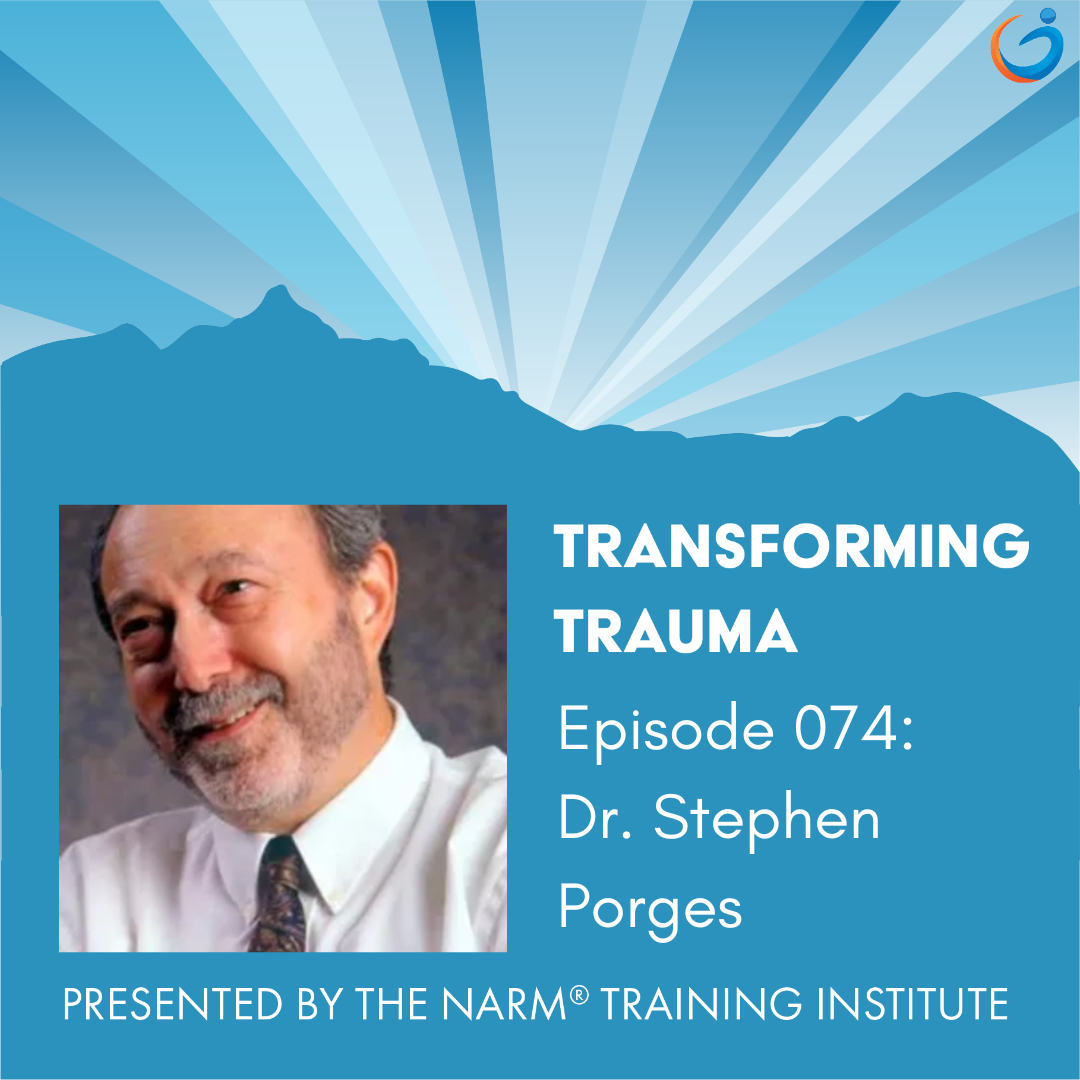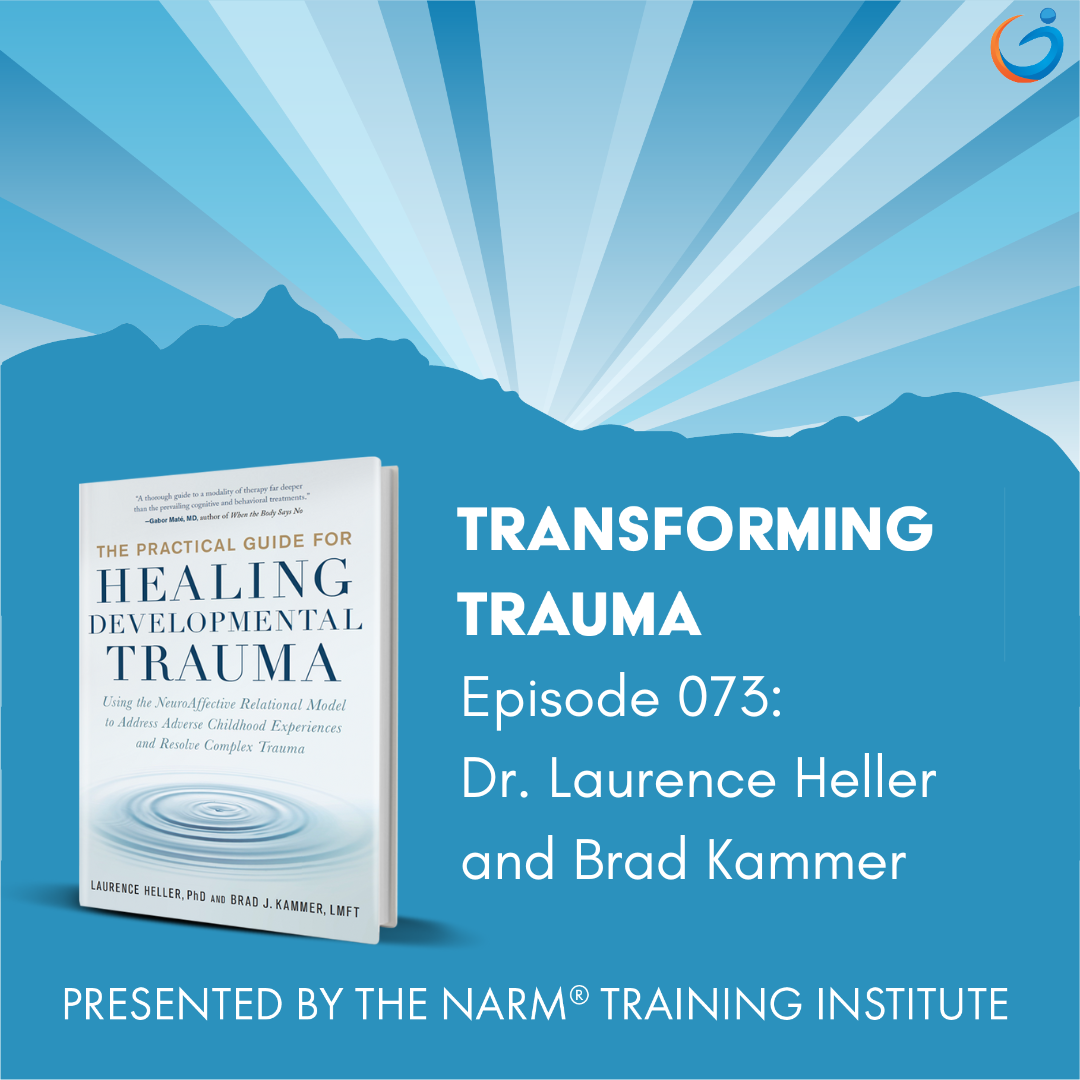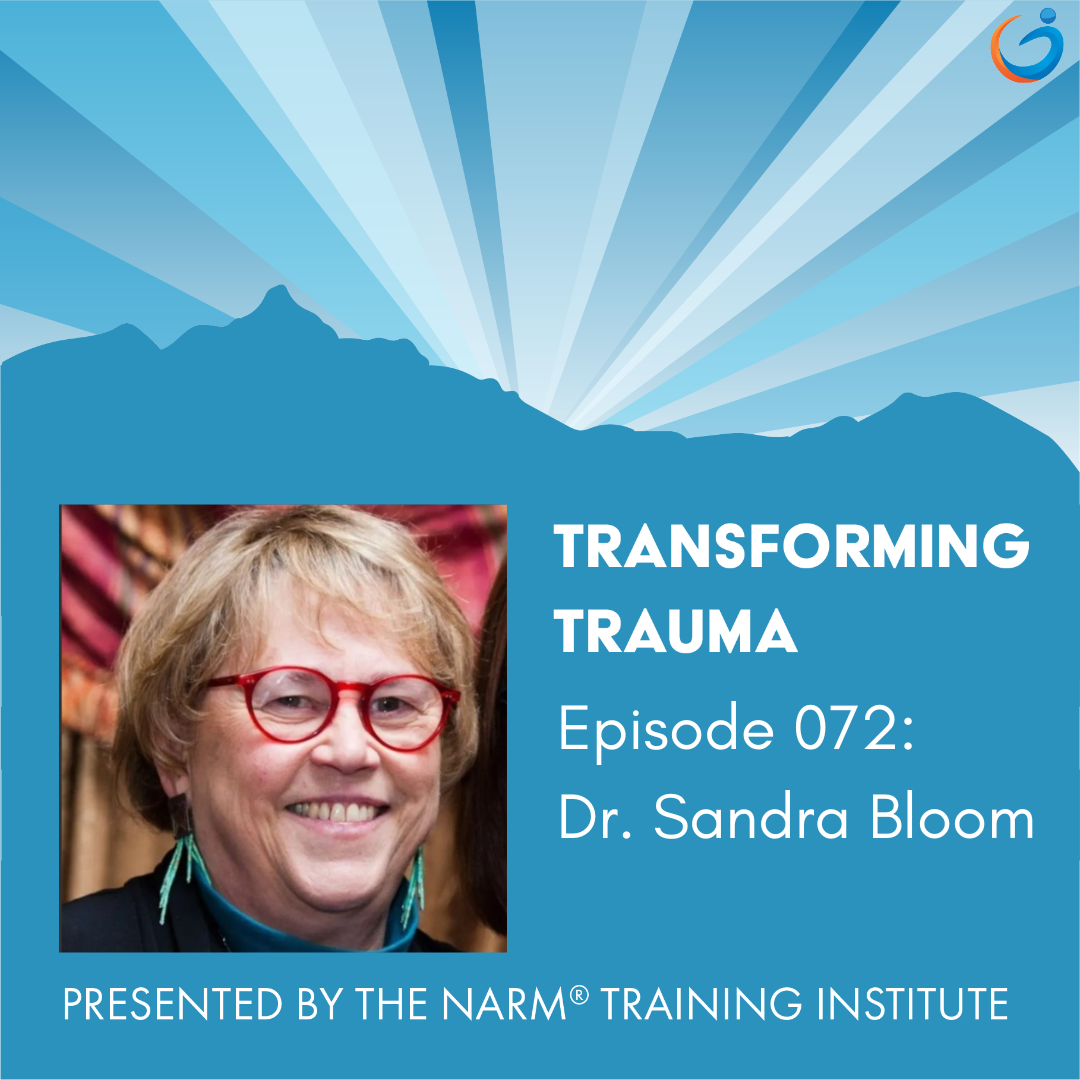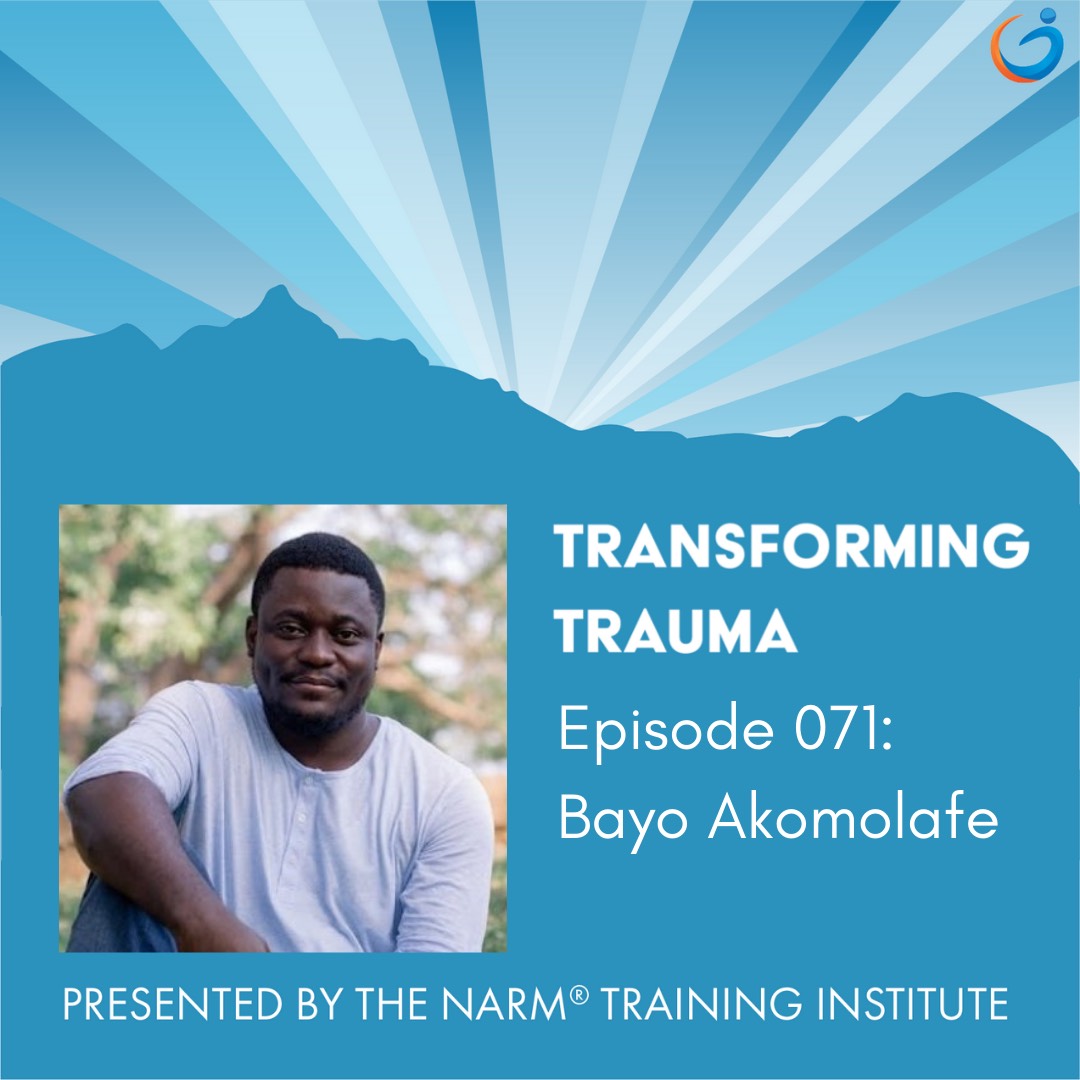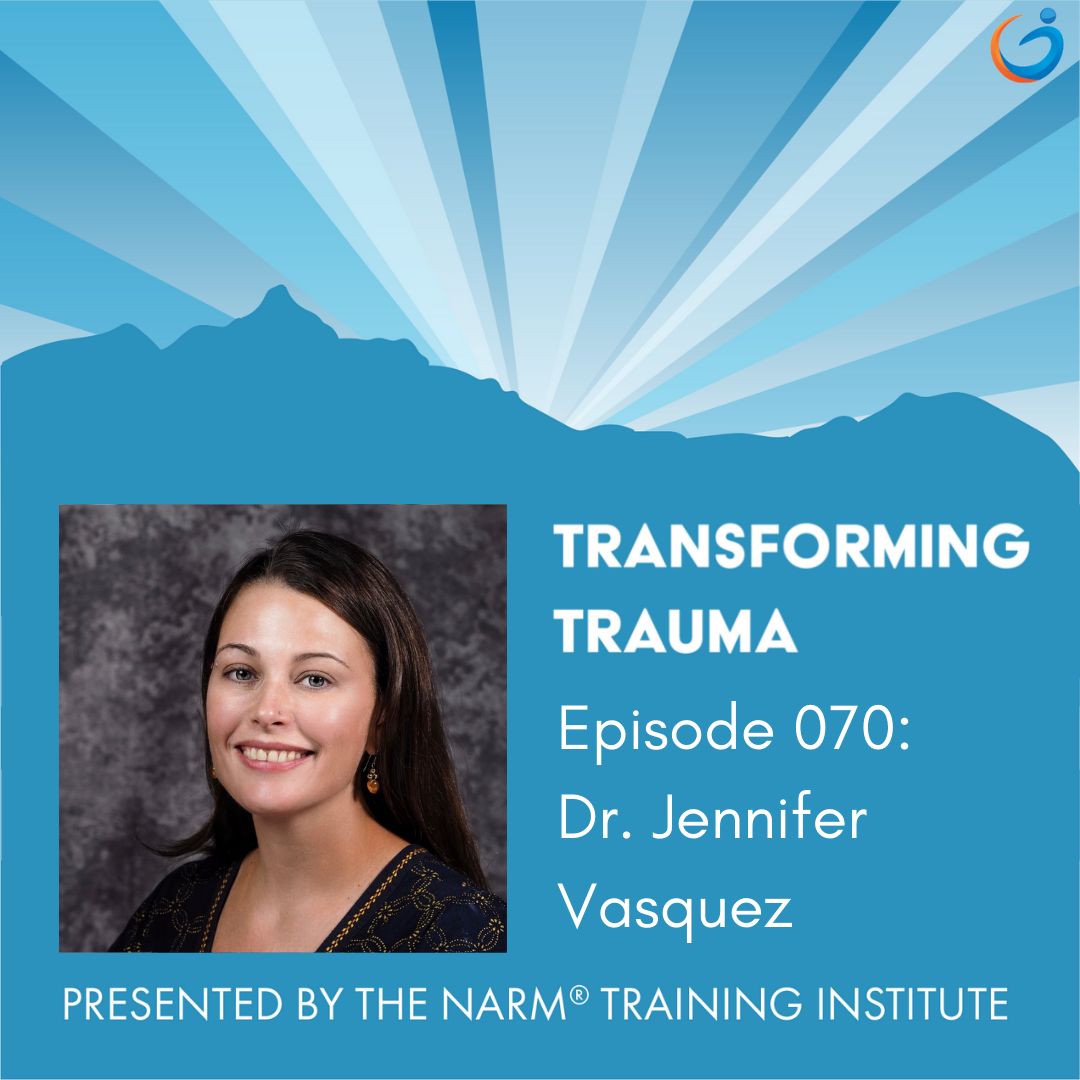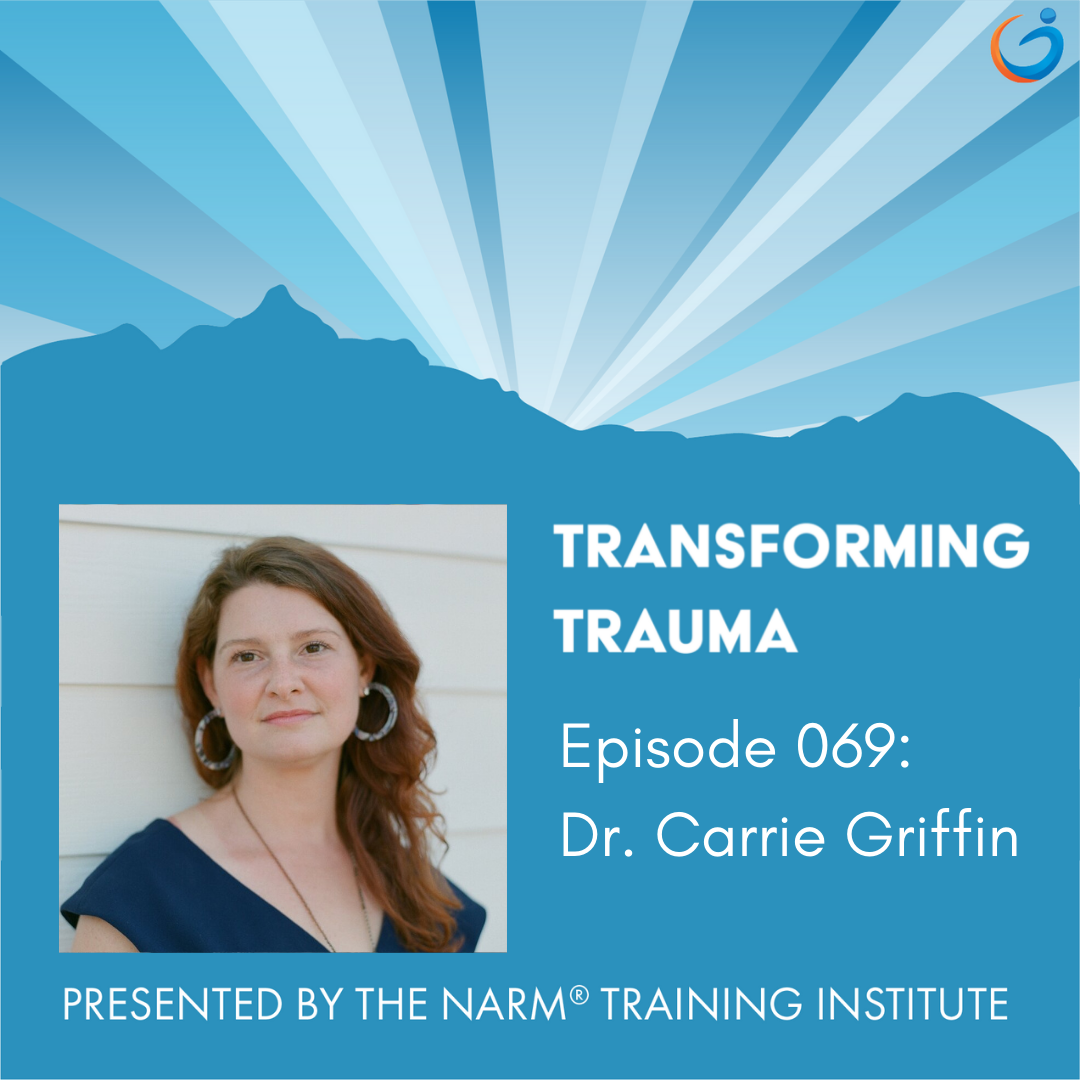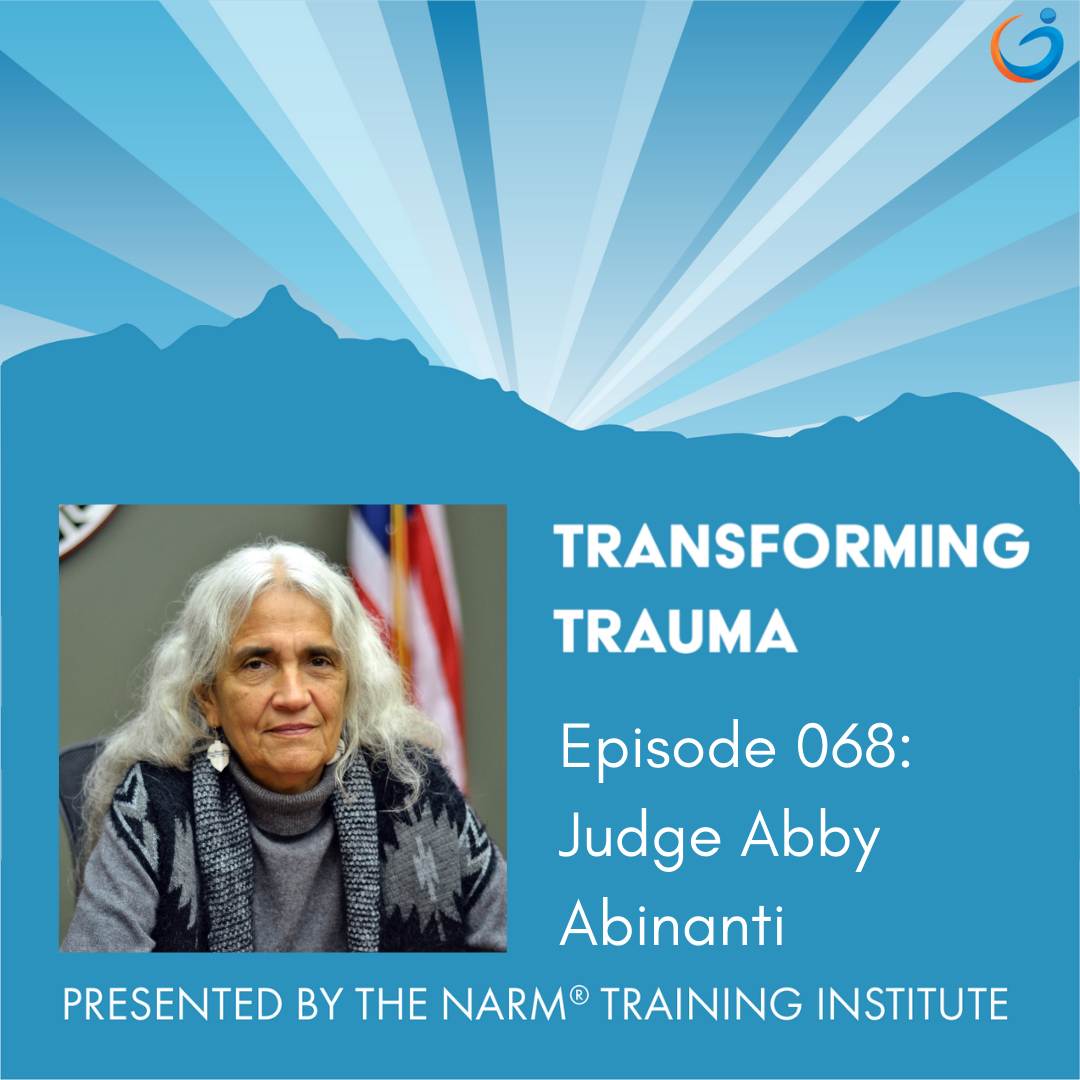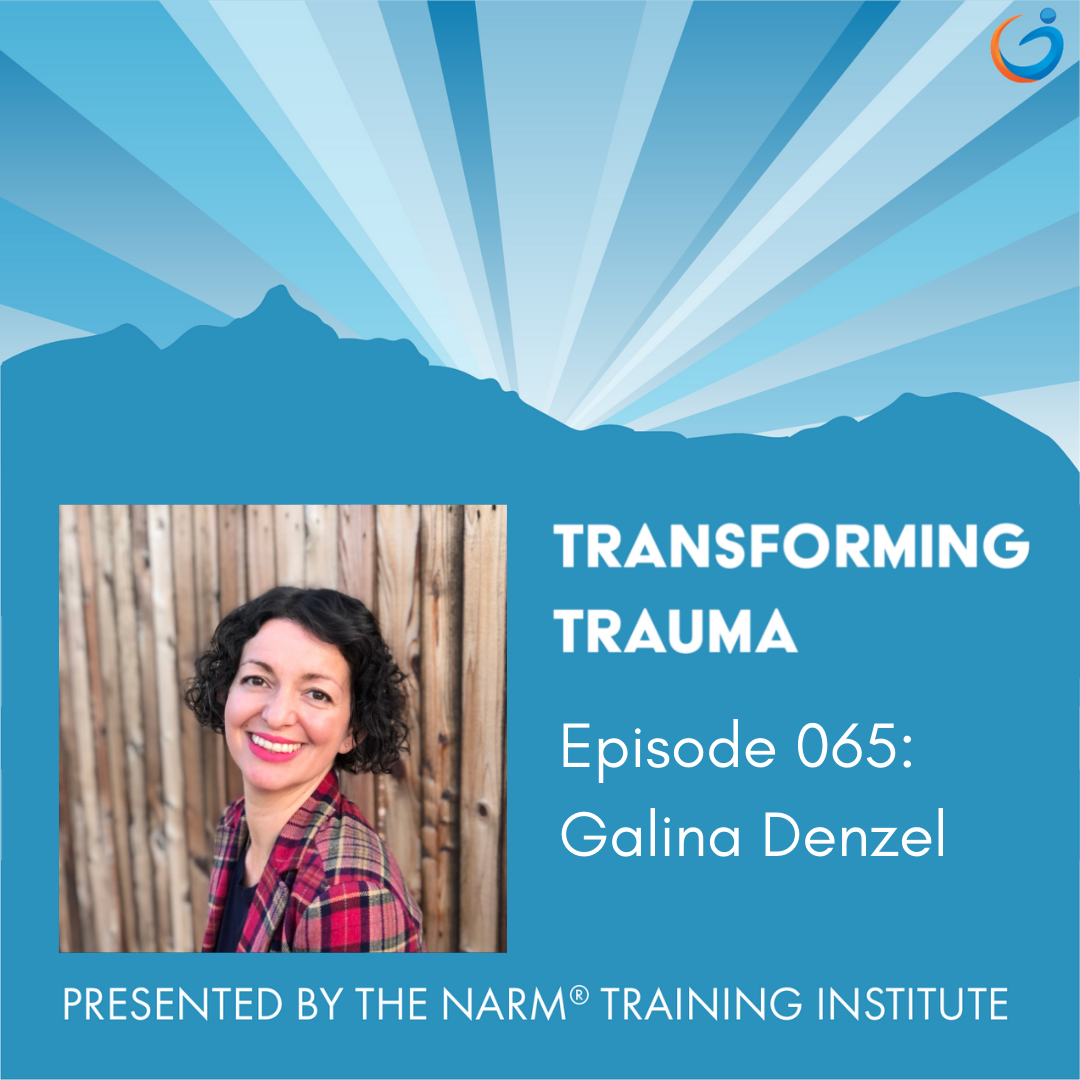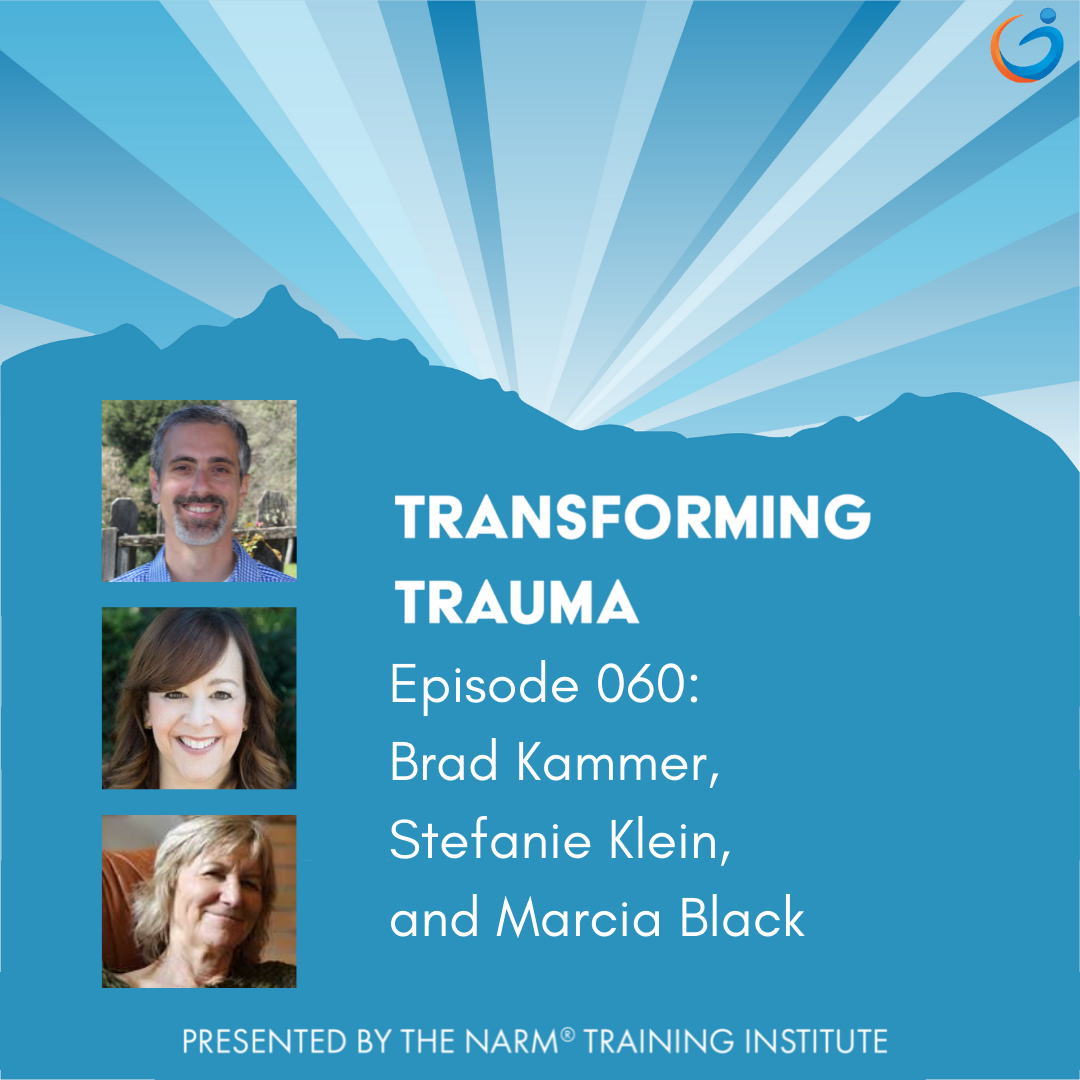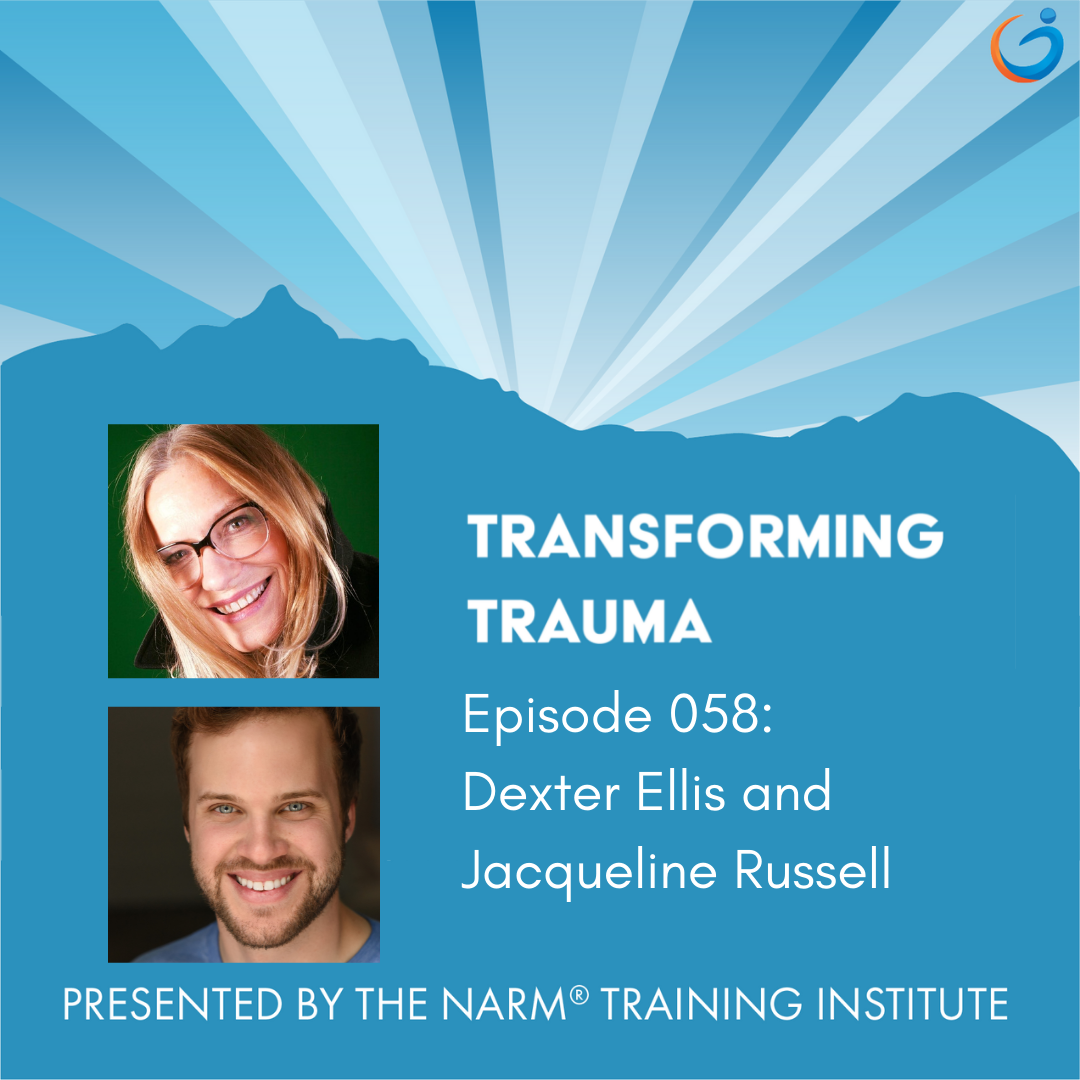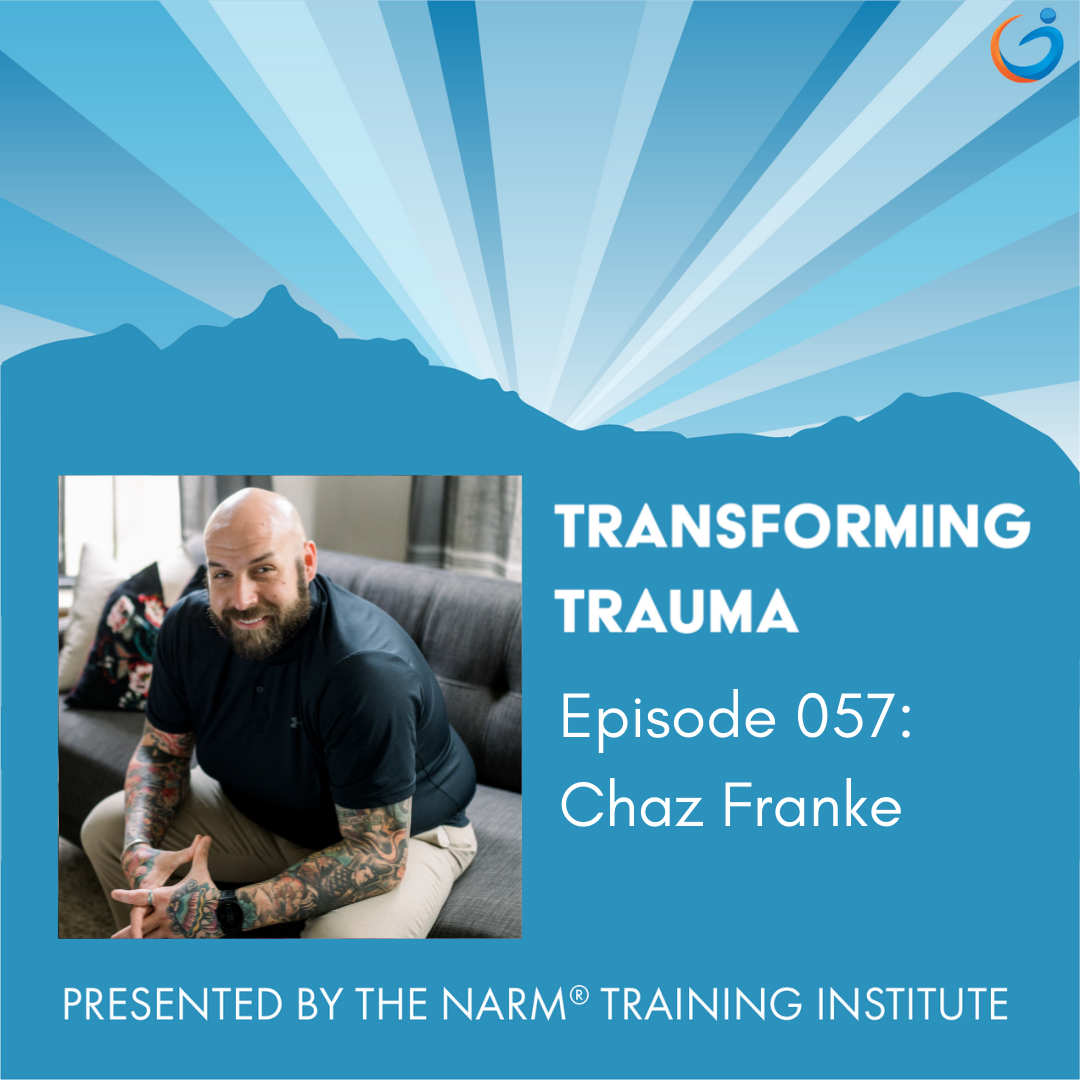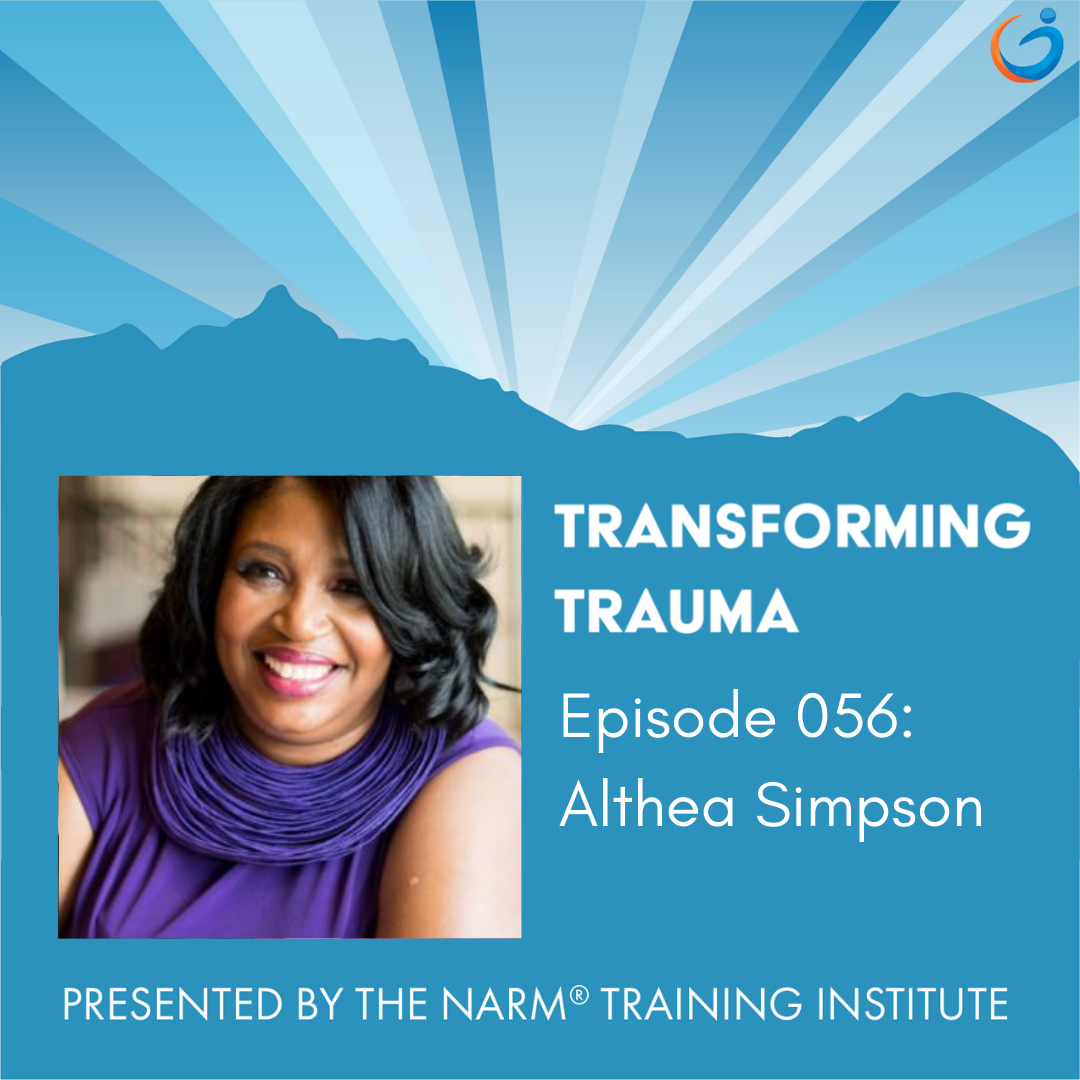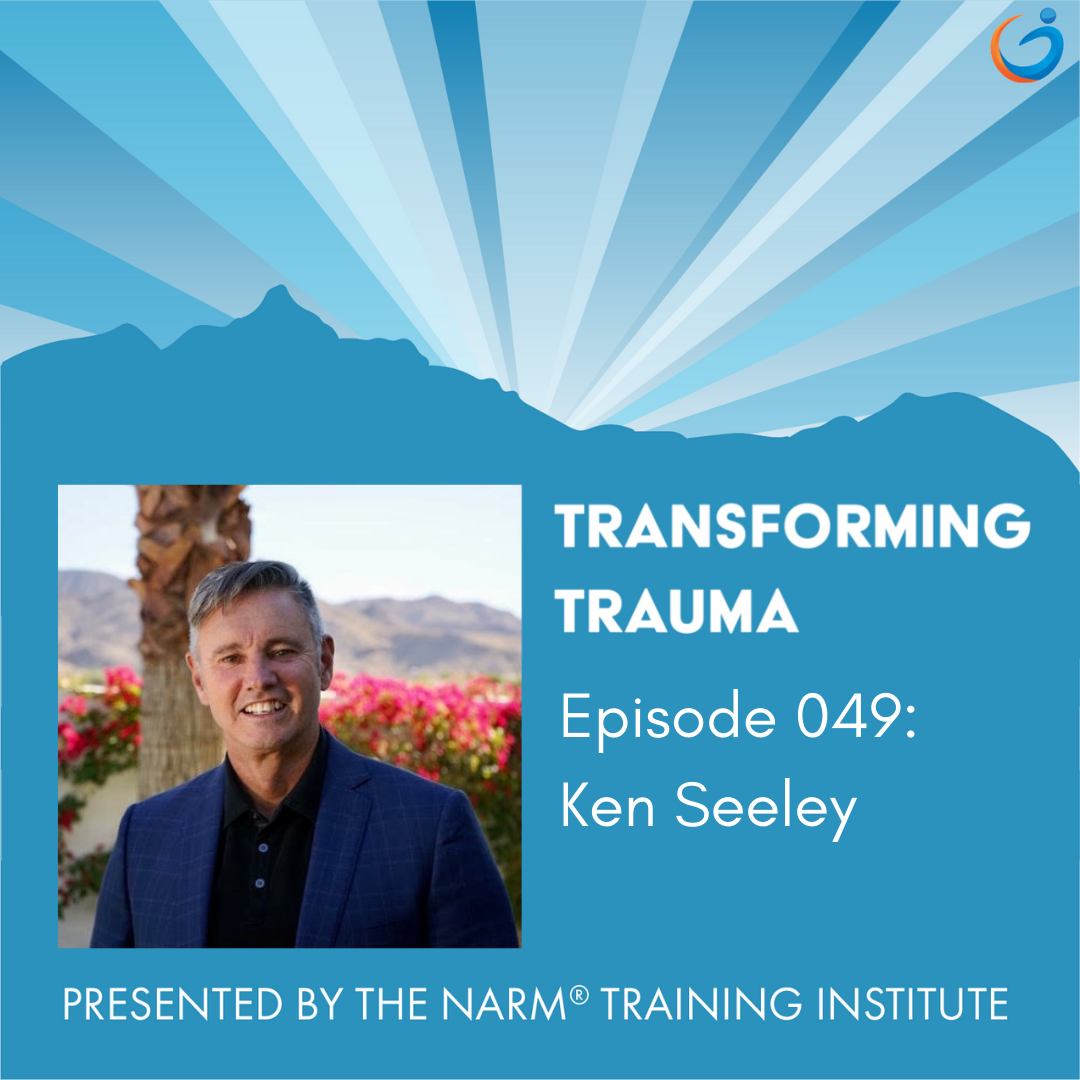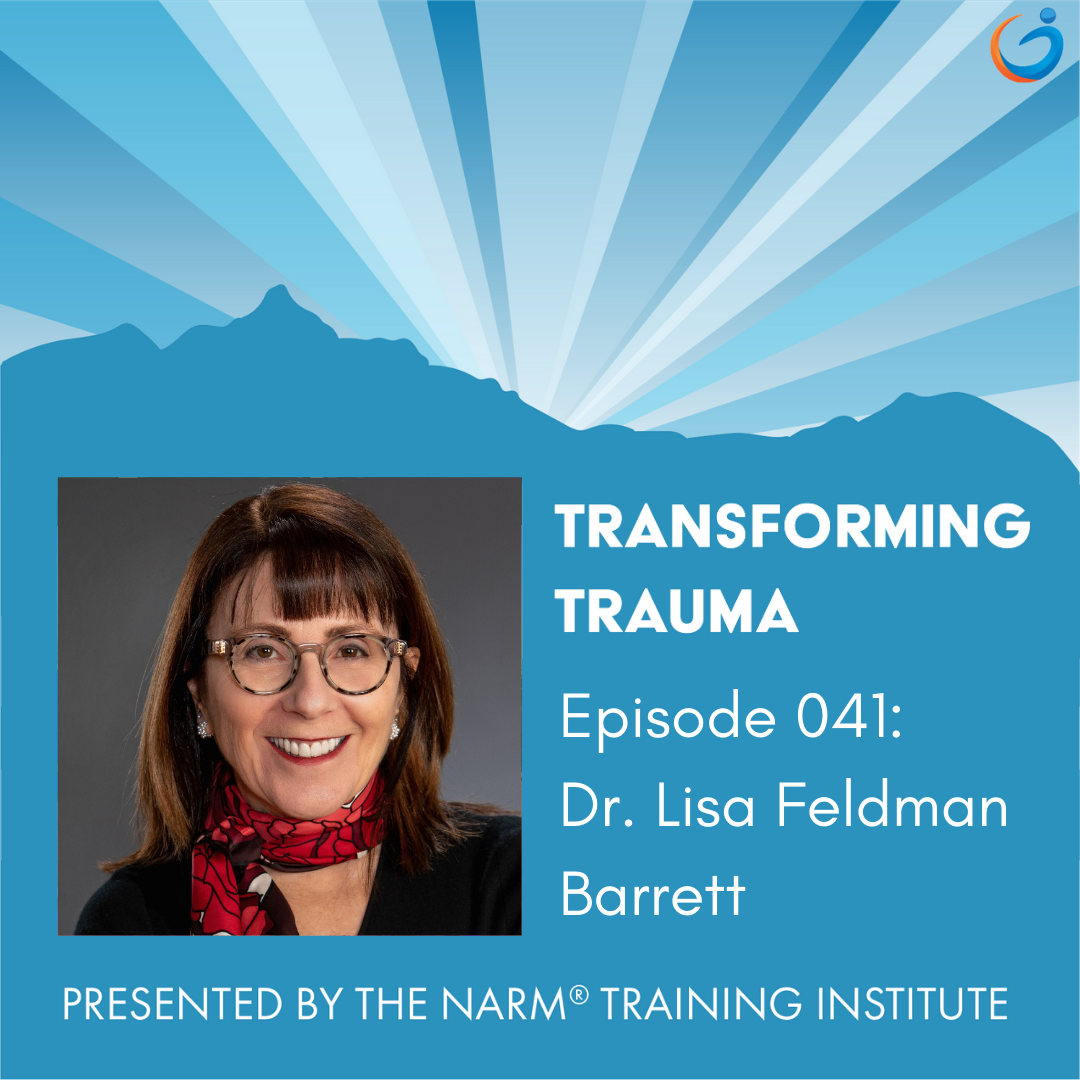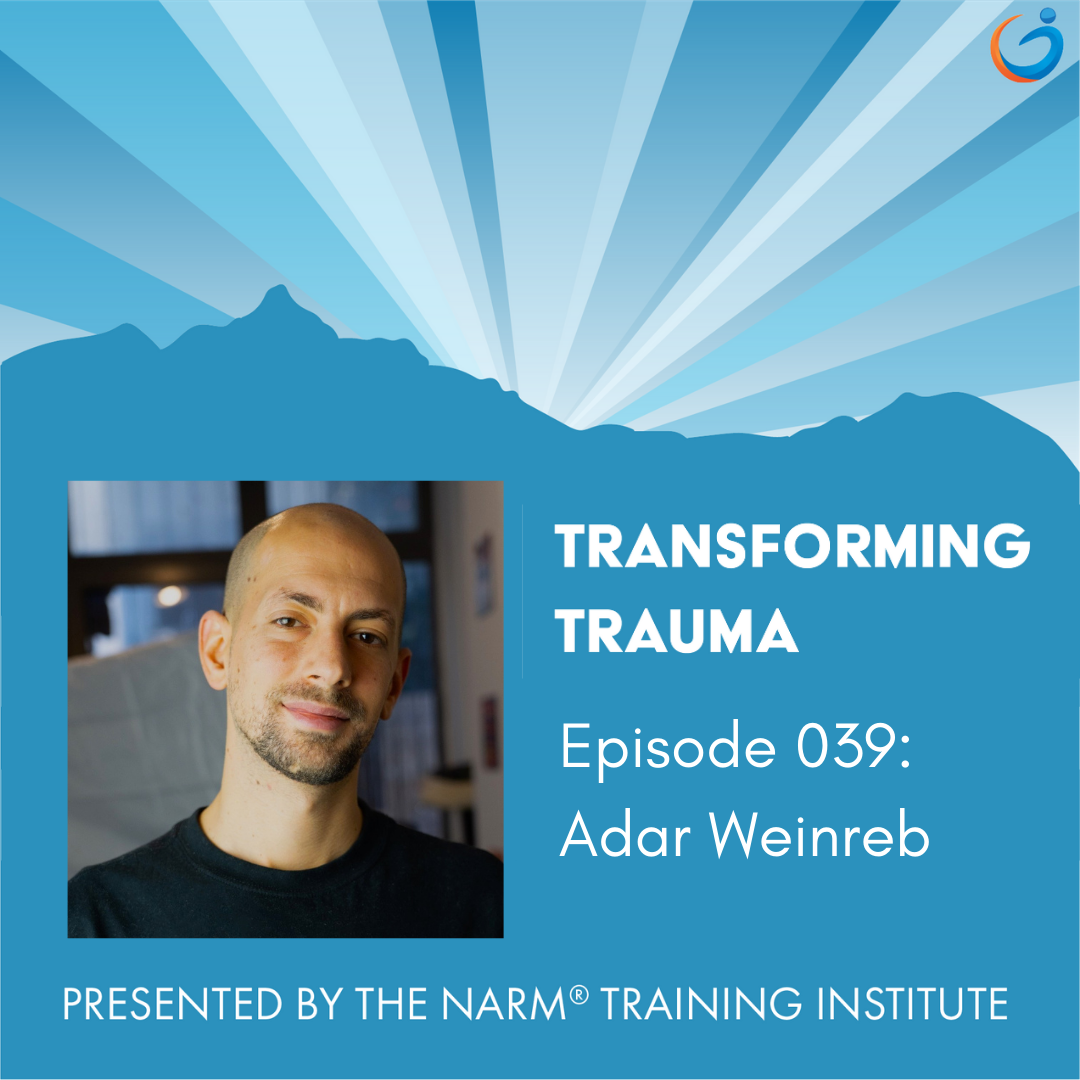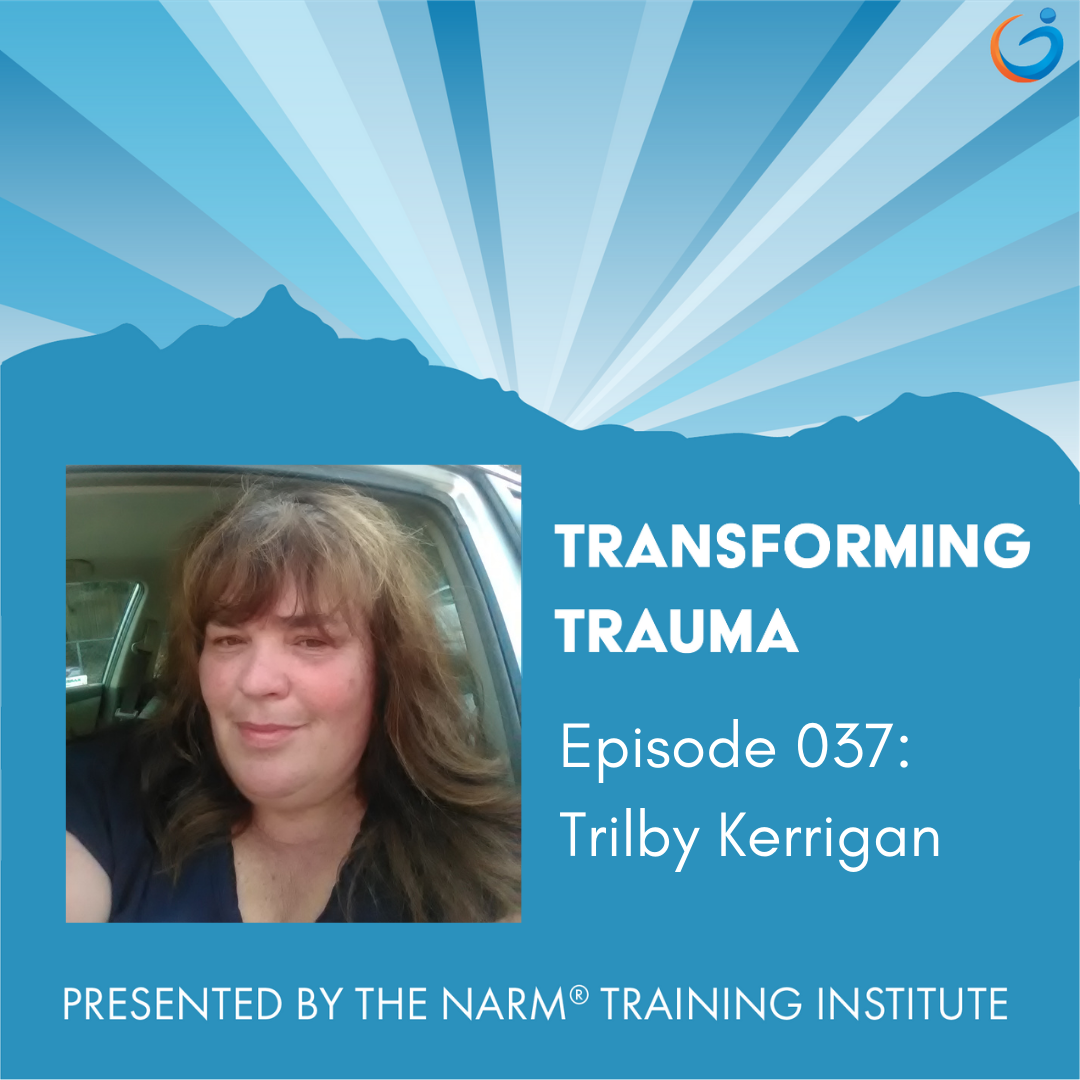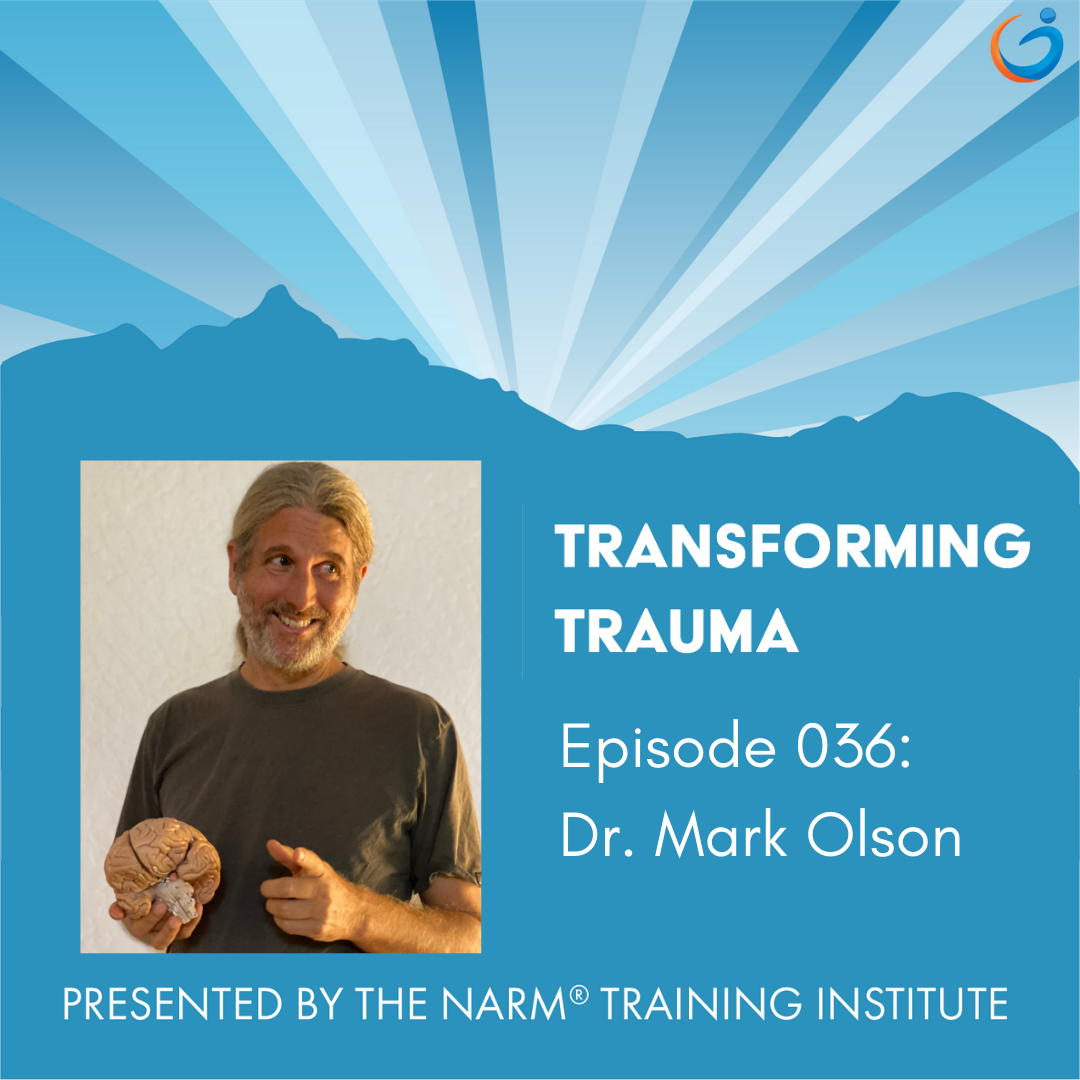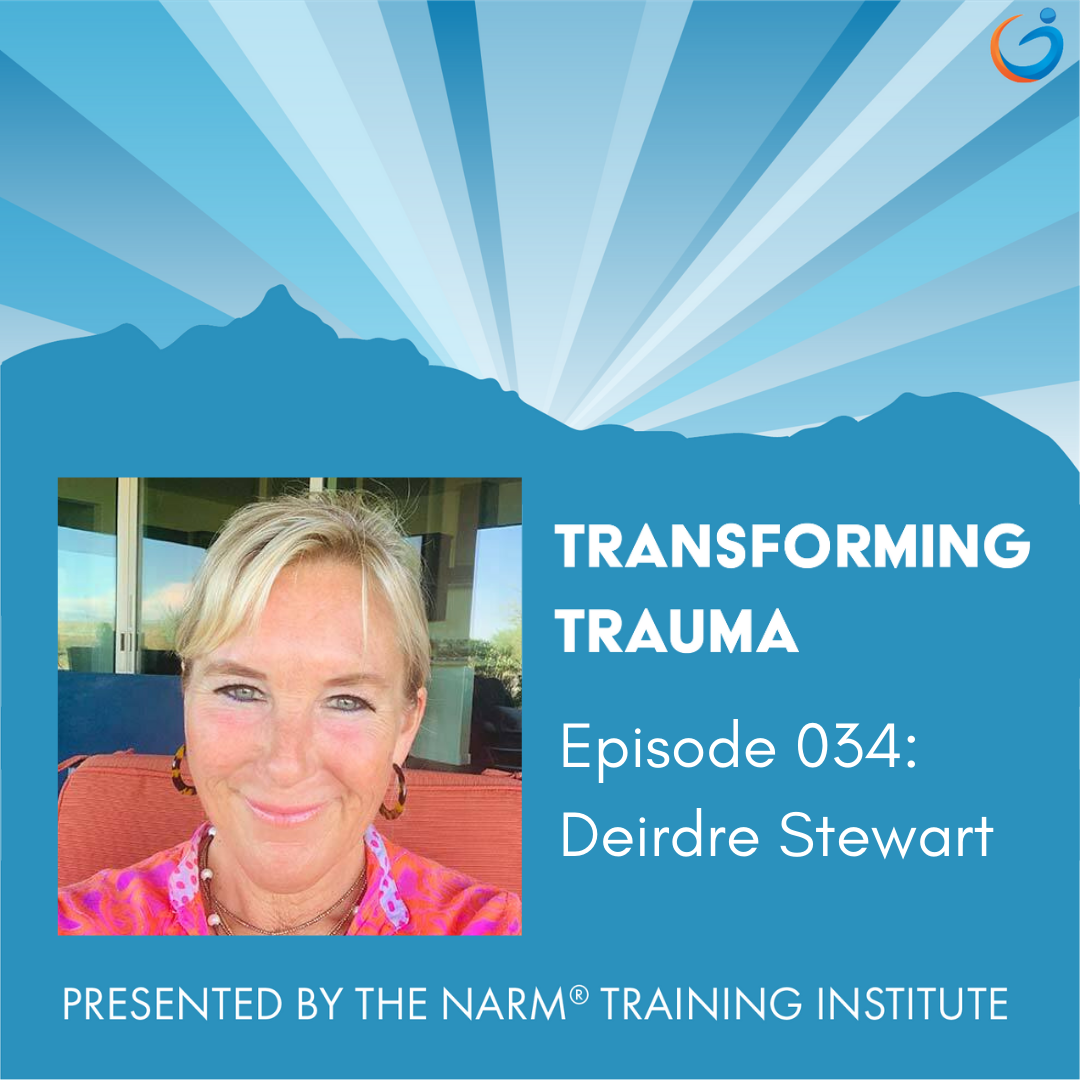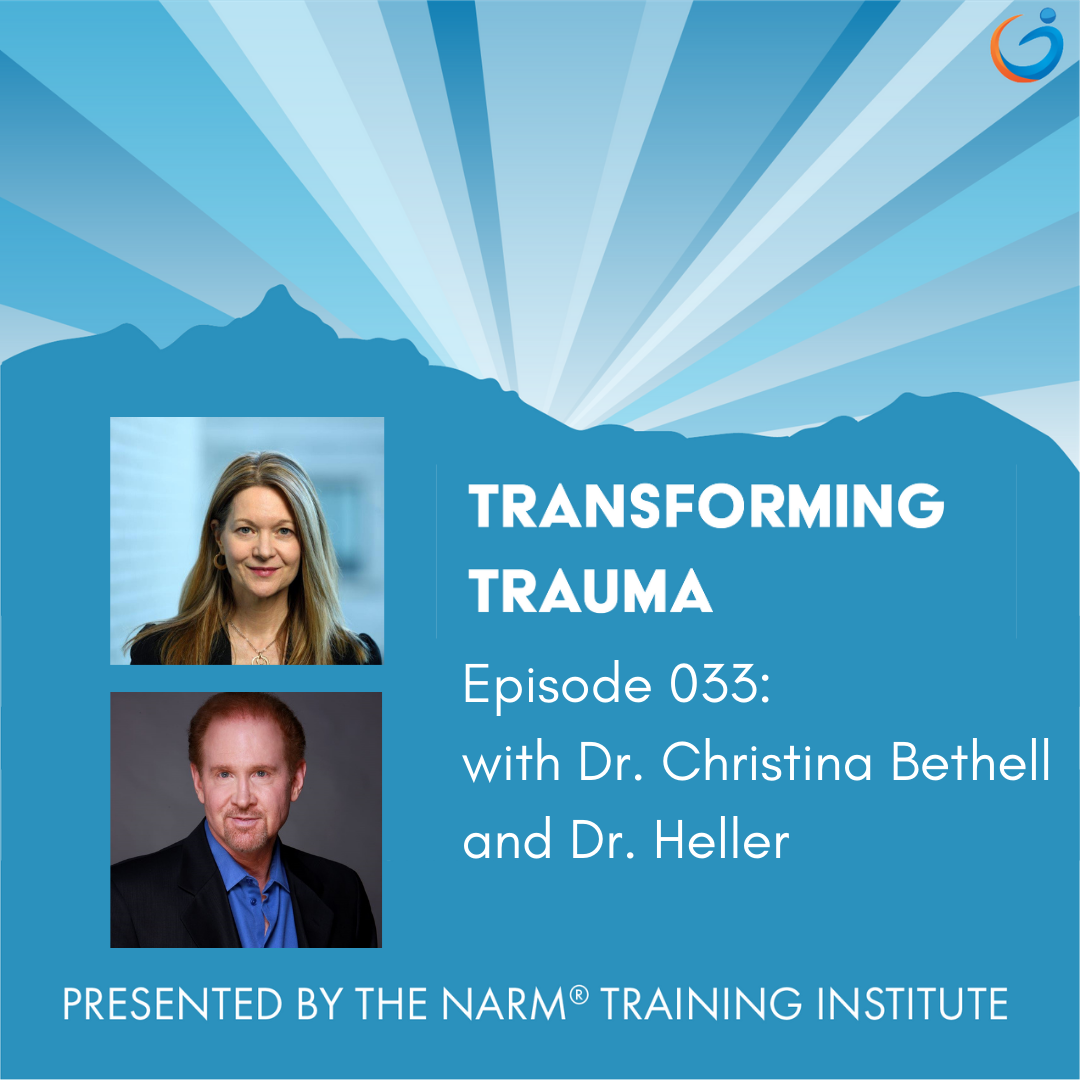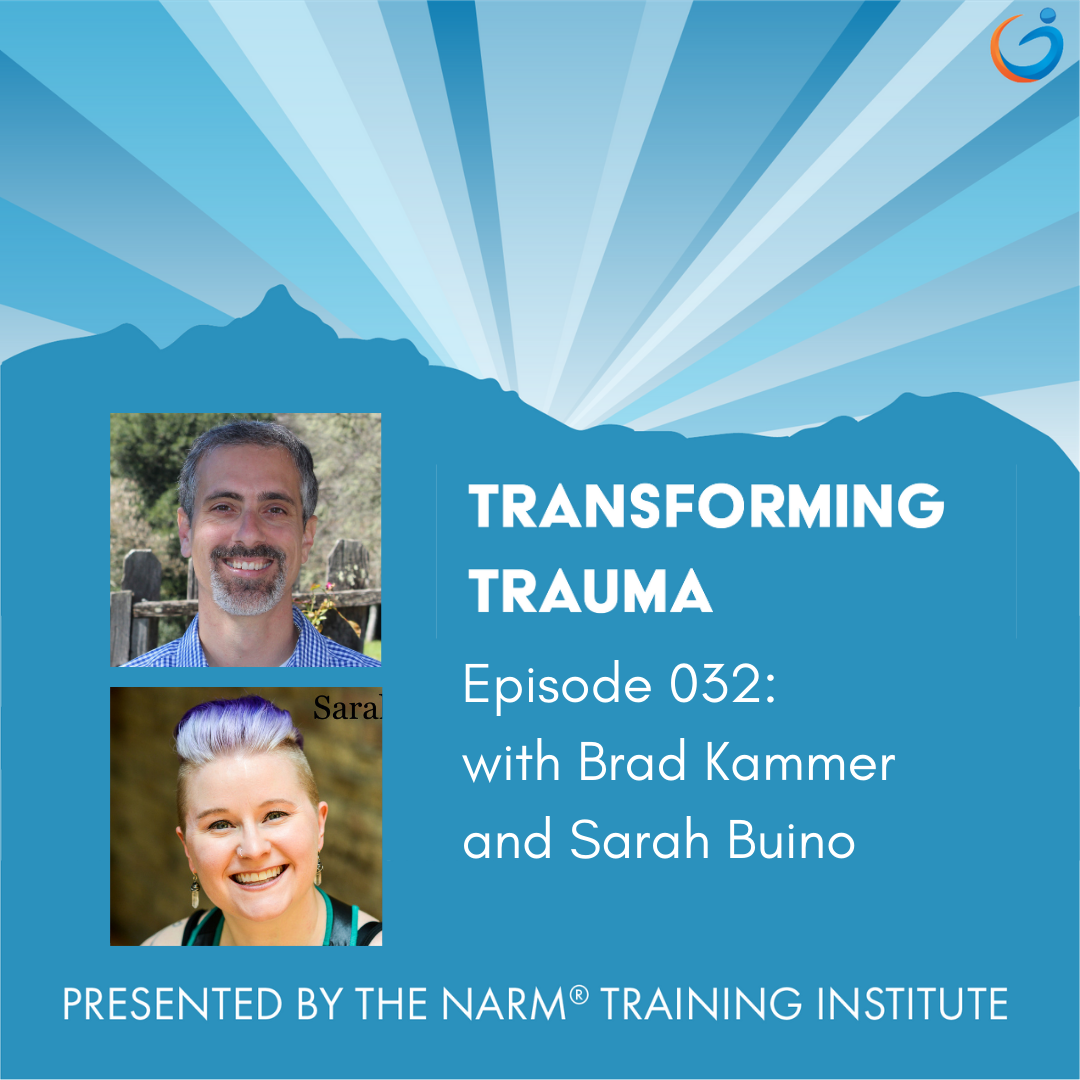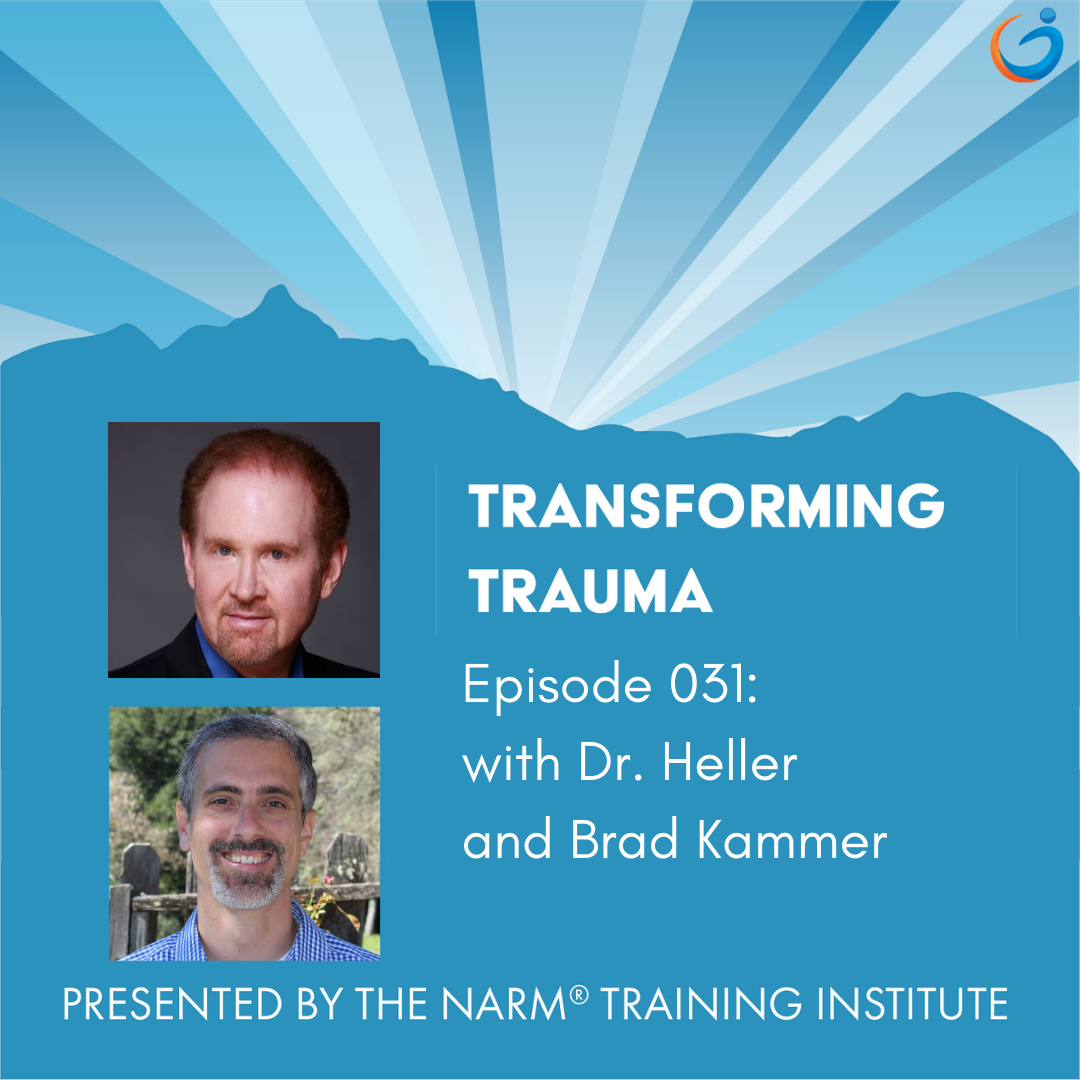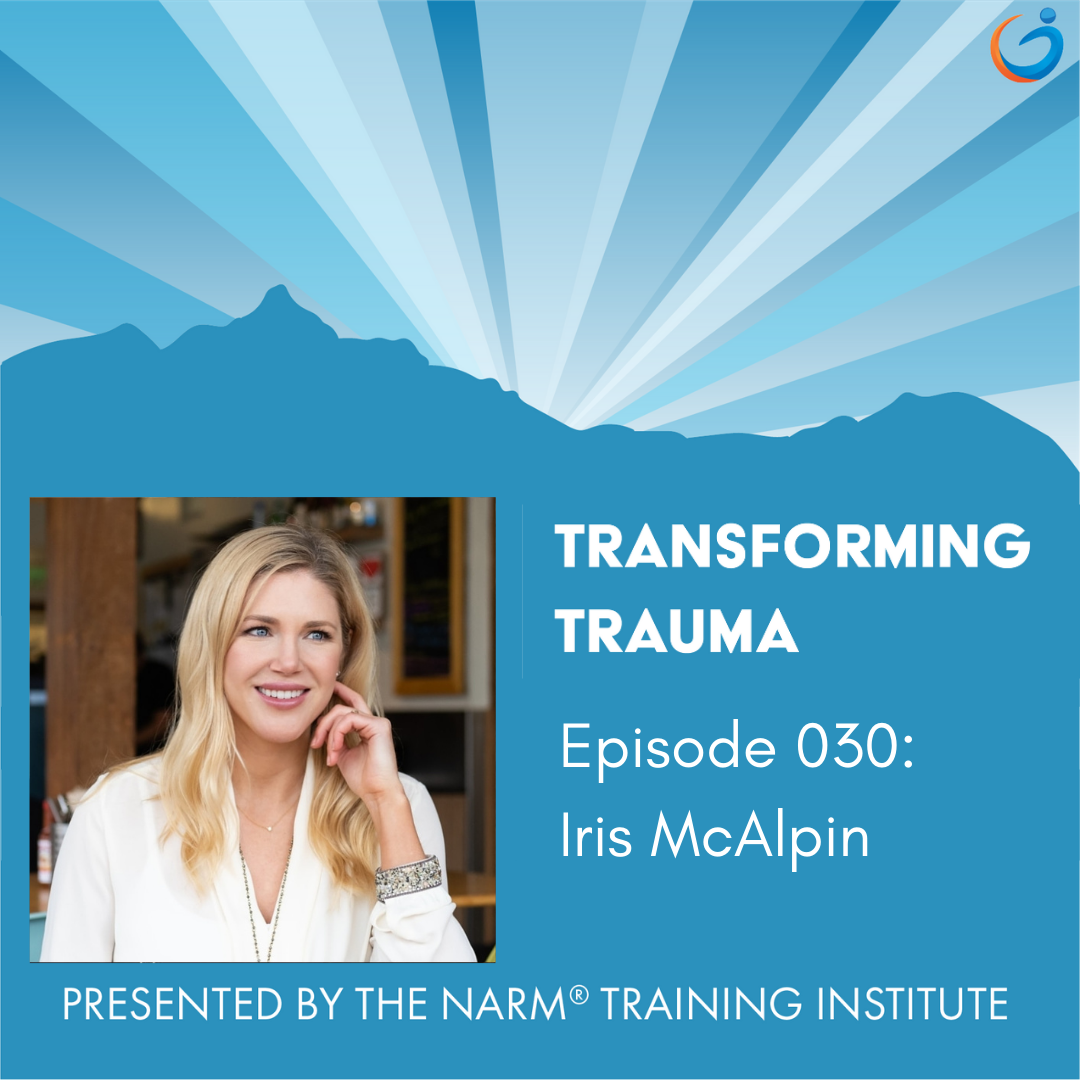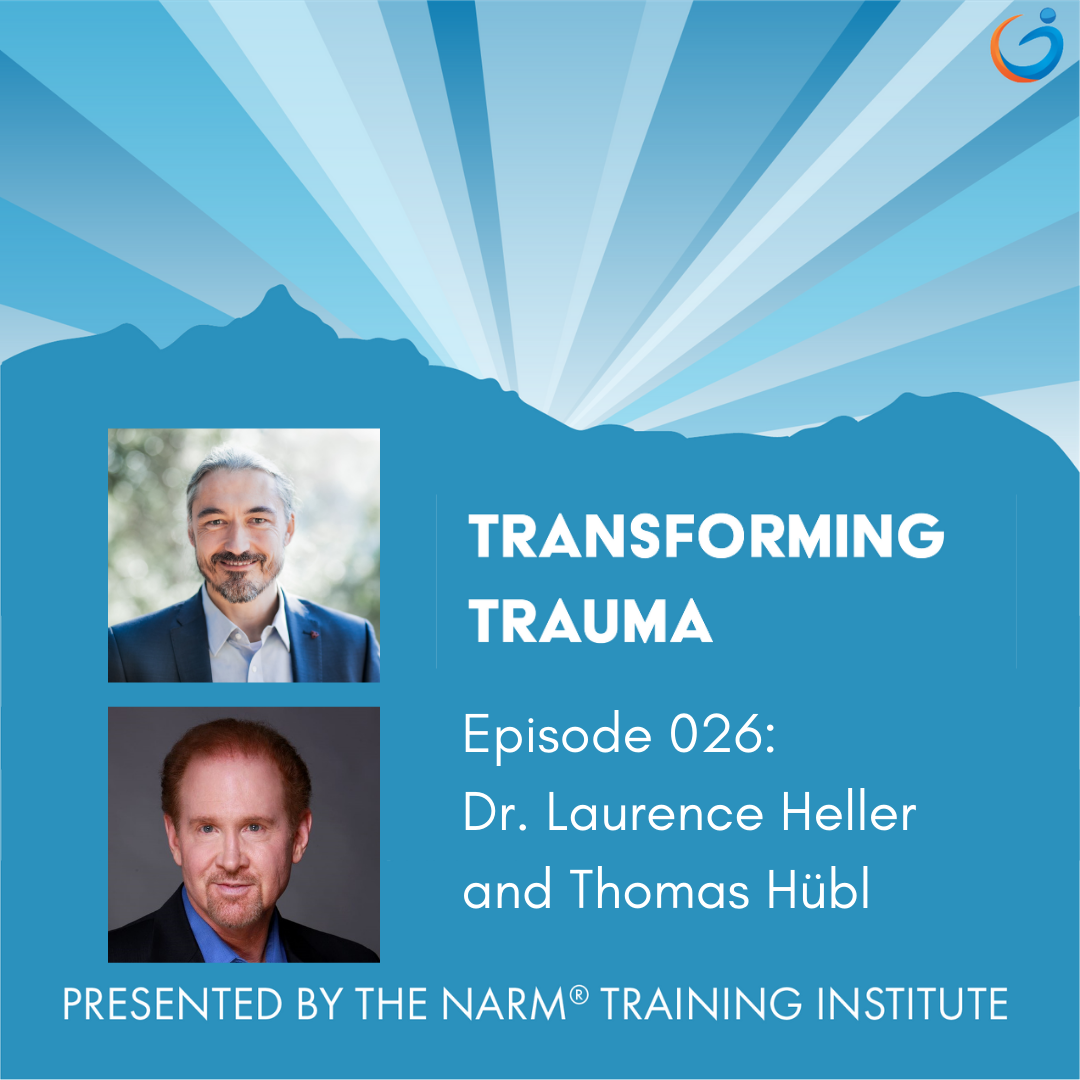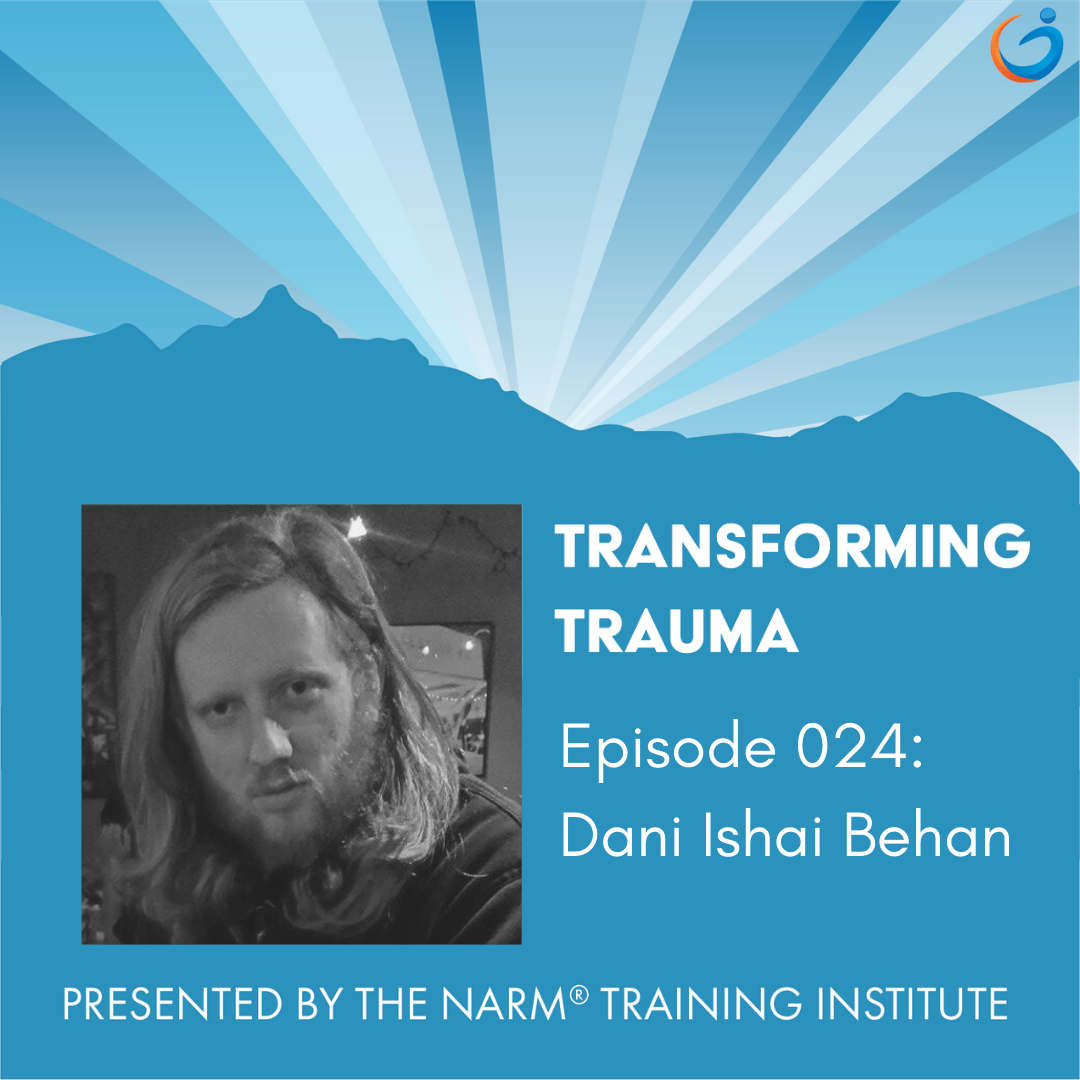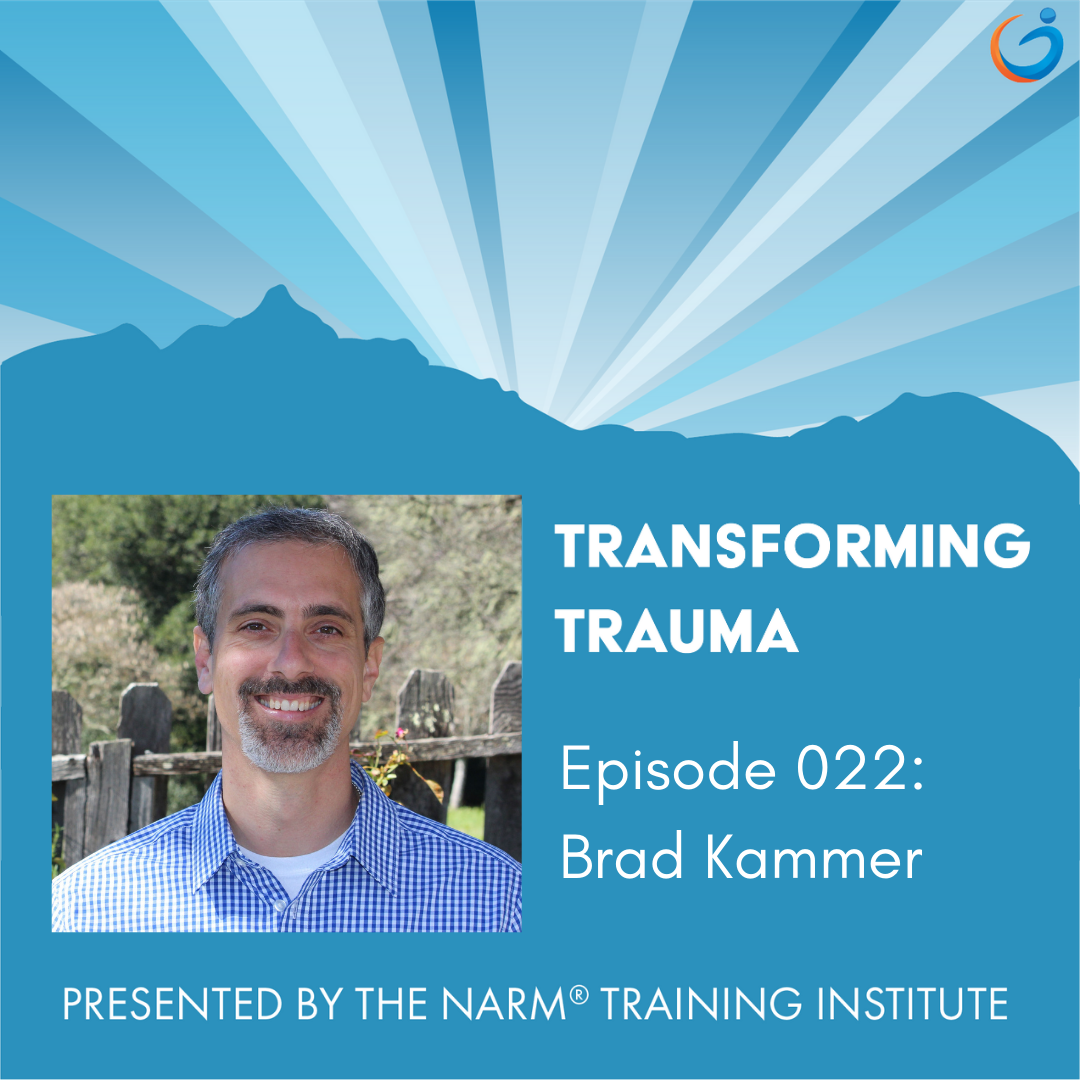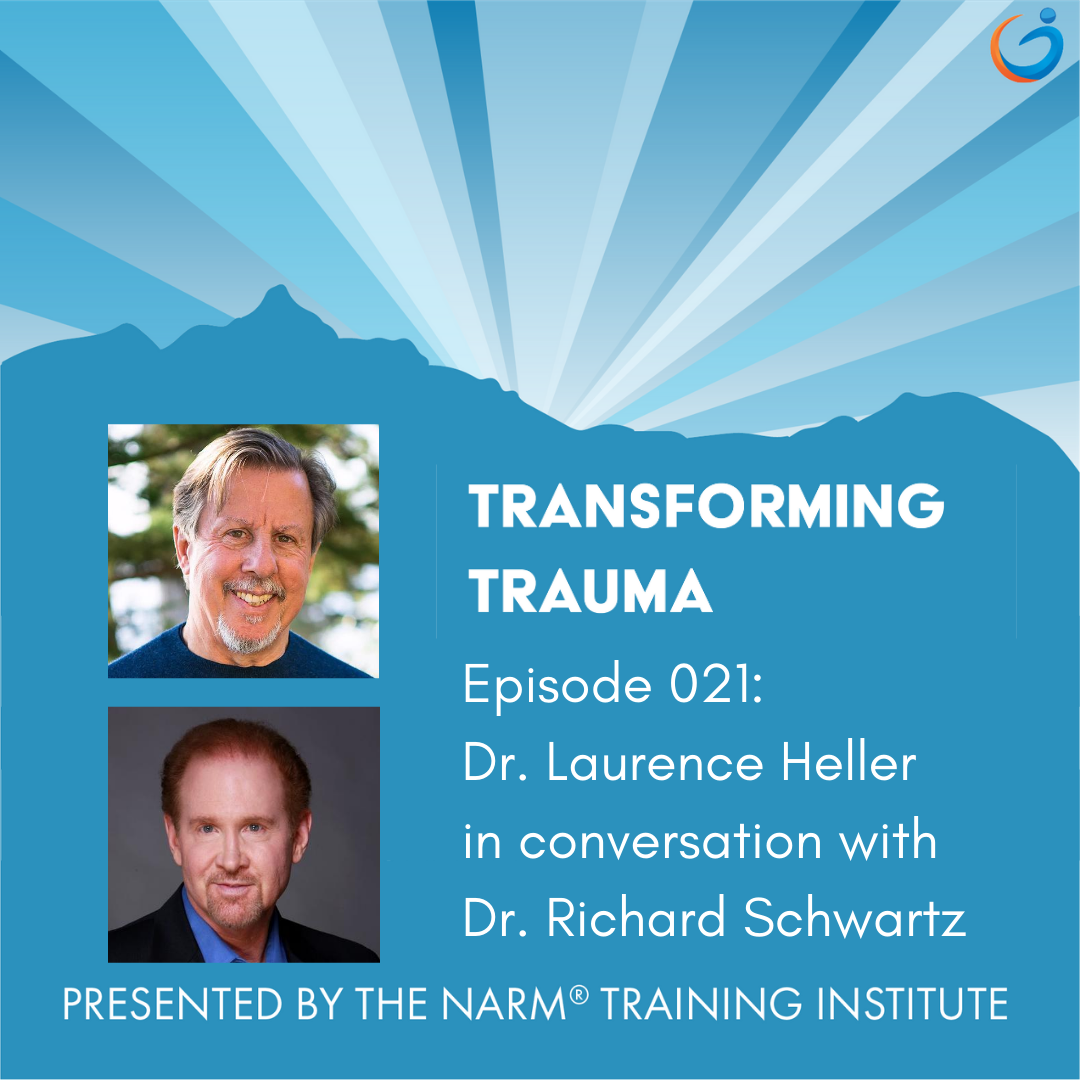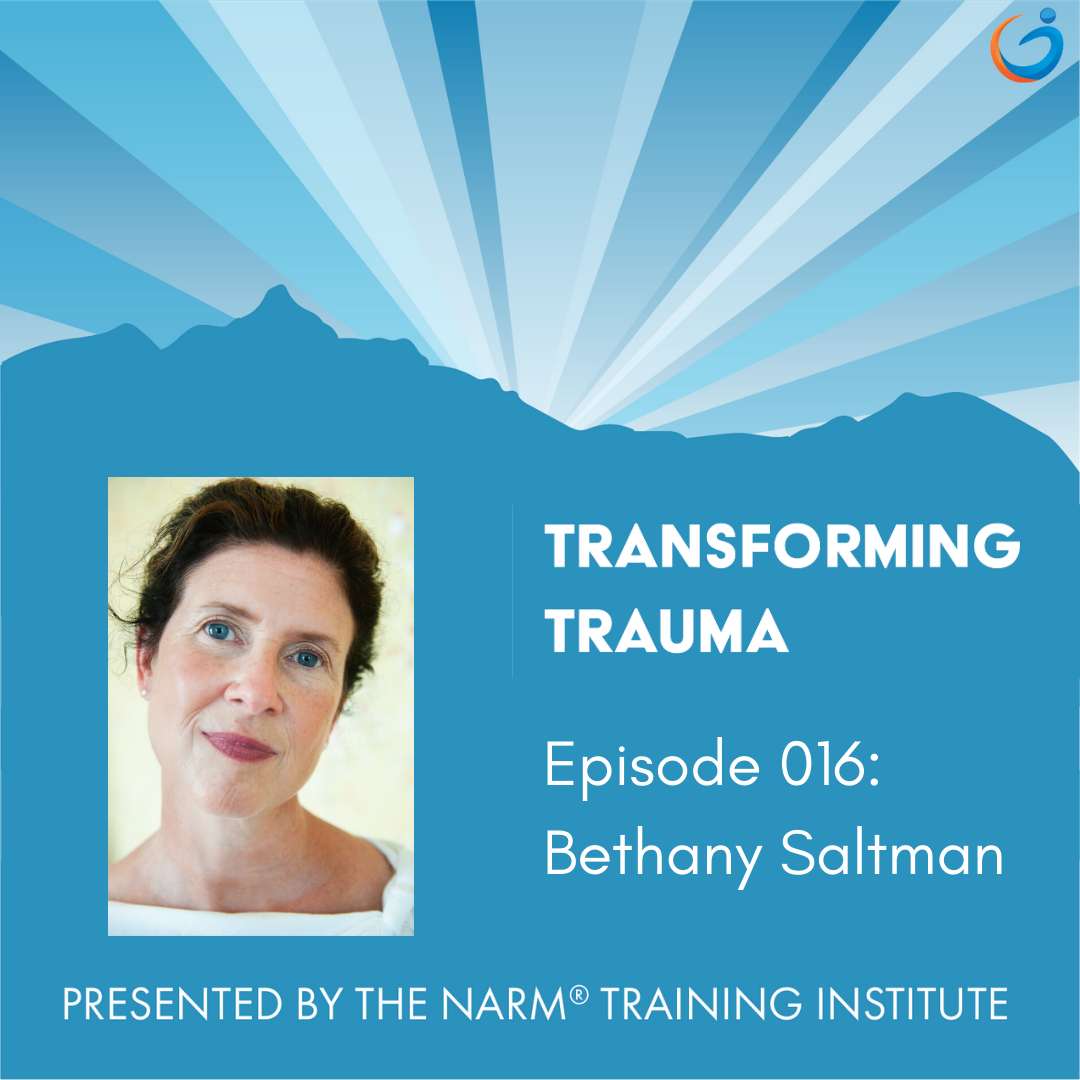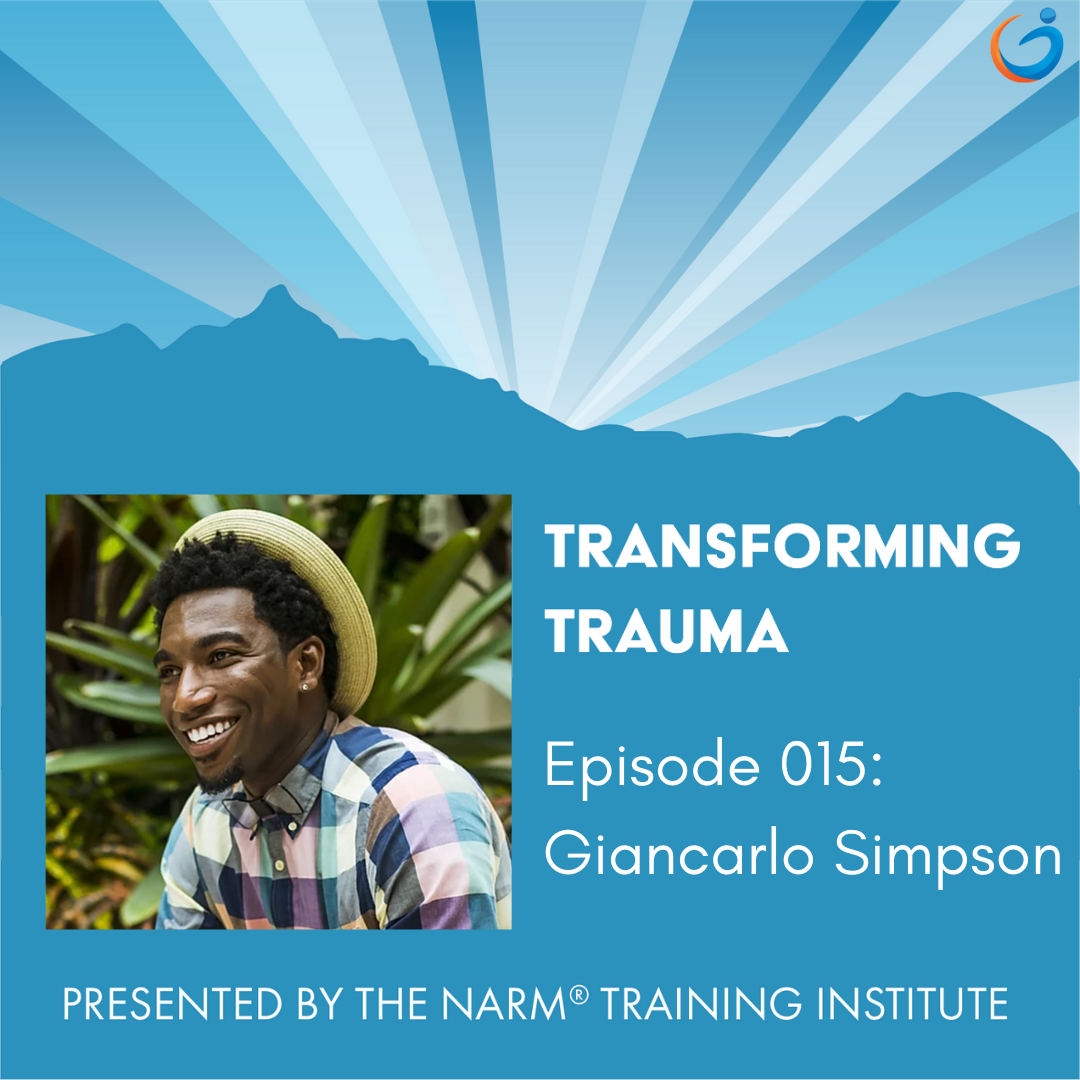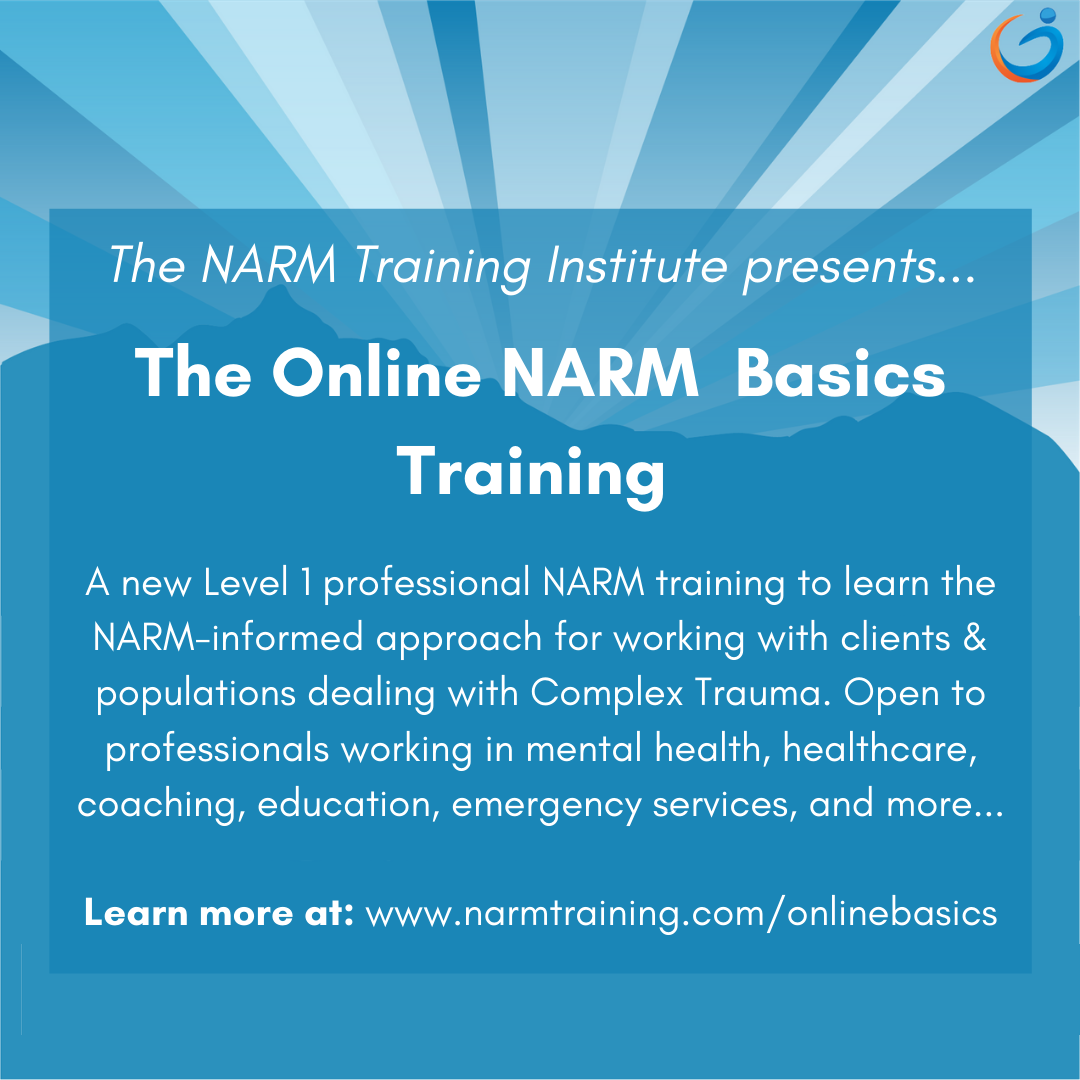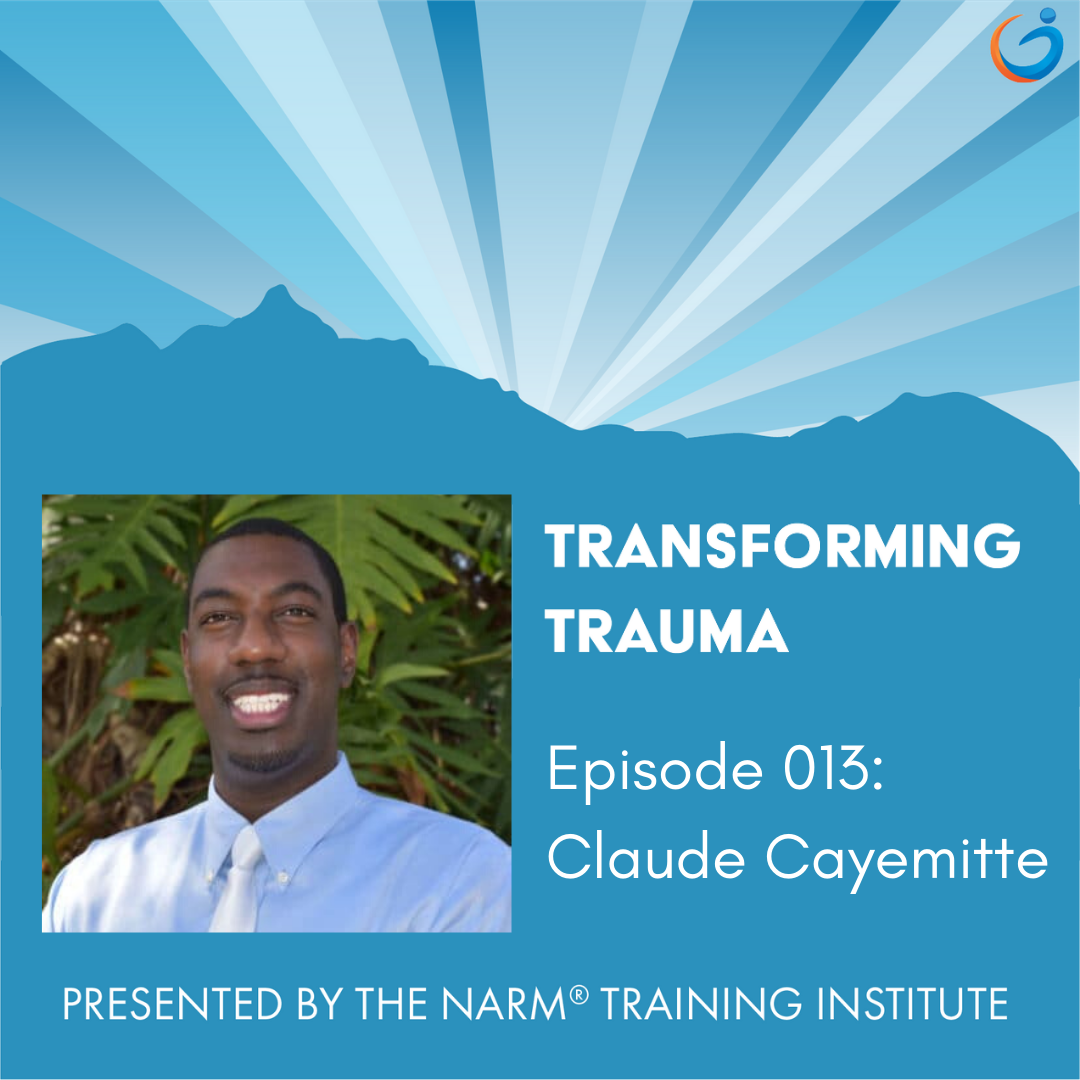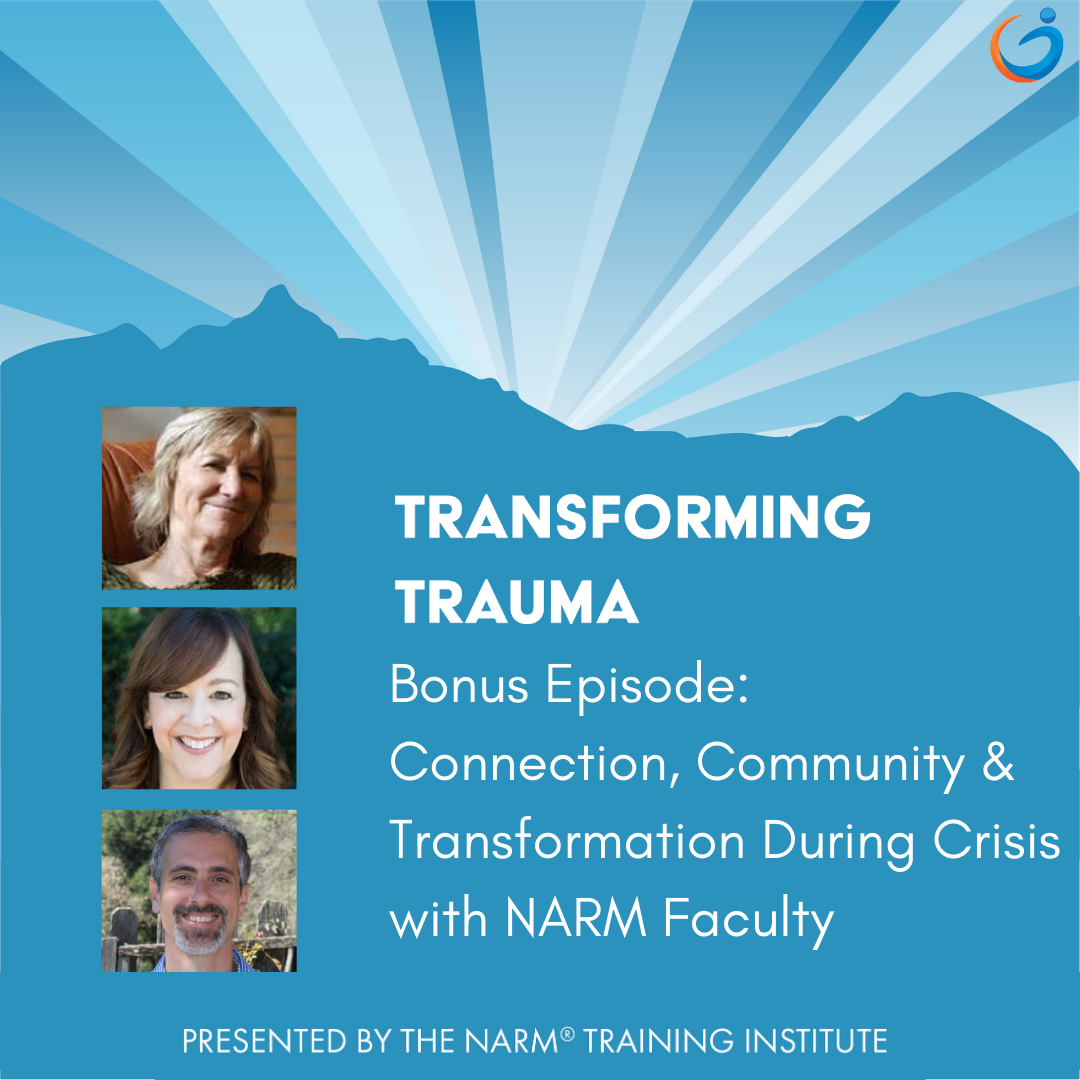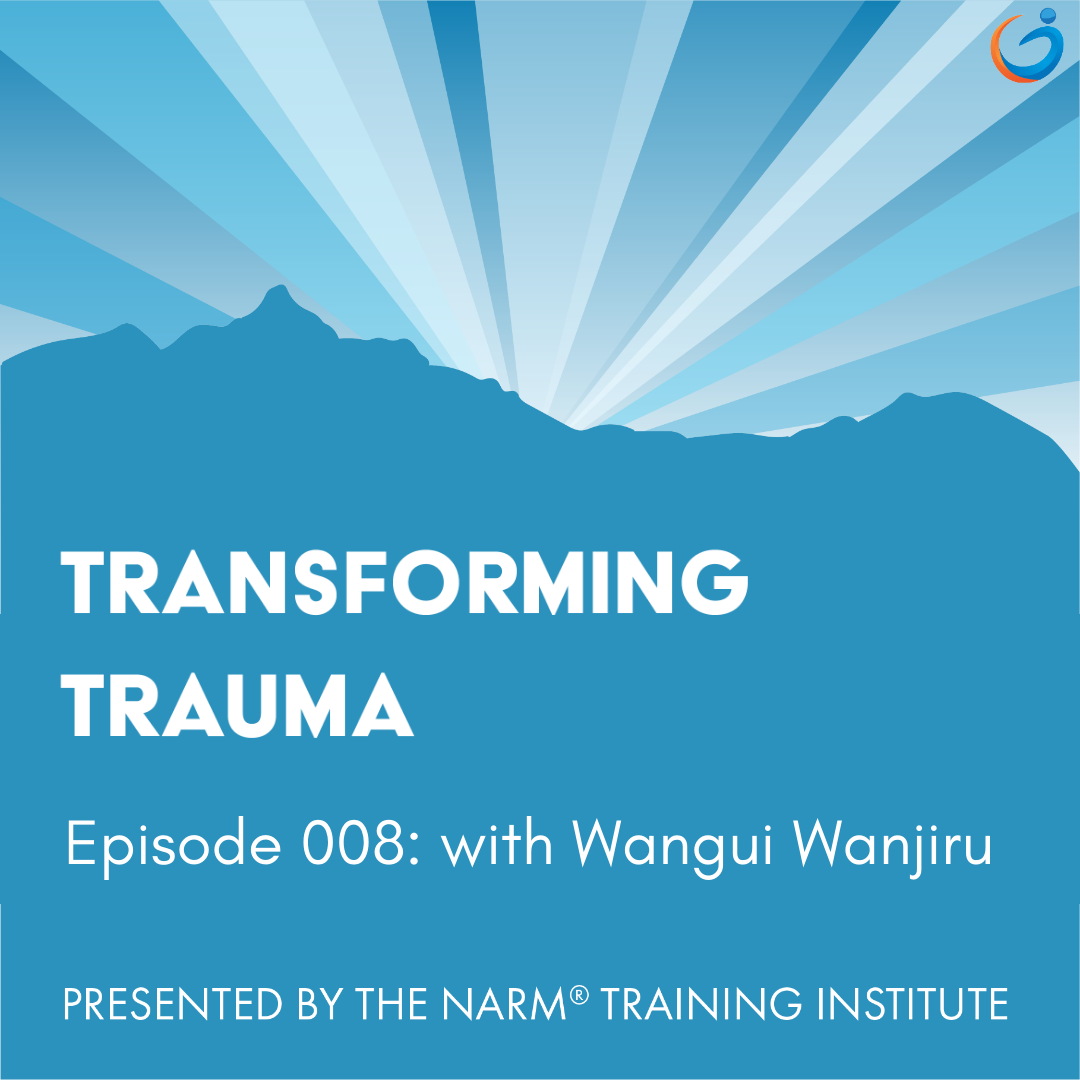Transforming Trauma
A podcast brought to you by the Complex Trauma Training Center
In a modern world beset by complex trauma and a legacy of suffering, conflict and disconnection, healing trauma can serve as a vehicle for personal and social transformation. Transforming Trauma is a podcast about thriving after trauma. Throughout our episodes, we will explore the NeuroAffective Relational Model (NARM), a revolutionary healing approach for healing Complex Trauma (C-PTSD) and restoring connection to self and others. Whether you are a healthcare professional, an educator, a public policy maker, a trauma survivor, or someone interested in personal healing and social justice, Transforming Trauma will provide you with a map for increased resiliency, greater health outcomes, healthier relationships, personal growth and social change. We invite you to listen along as we explore how freedom from complex trauma is possible.
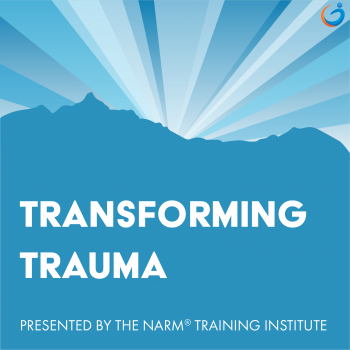
Subscribe for All Episodes on your Favorite Service
Healing Complex Trauma
Complex Trauma is a worldwide health concern. C-PTSD has been linked to chronic health problems, including a number of medical and mental health disorders. Additionally, C-PTSD has been linked to pervasive social problems, such as child abuse and neglect, teen pregnancy, substance abuse and addiction, domestic and community violence, and systemic oppression.
Our understanding of the far-reaching effects of unresolved Complex Trauma is supported by the ACEs Study (Adverse Childhood Experiences), giving us a deeper appreciation for the long-term impact of attachment, relational and developmental trauma on both health and social well-being.
At the NARM Training Institute, we are at the forefront of the Trauma-Informed Care movement, providing an effective approach for addressing the impact of unresolved Complex Trauma on individuals, couples, families and communities.
Transforming Trauma provides interviews with NARM-Informed Therapists, Helping Professionals, and others working with Complex Trauma, on how to address the legacy of childhood, cultural and intergenerational trauma. These leaders in the Trauma-Informed Care movement will guide listeners through the diverse ways NARM is applied in actualizing Post-Traumatic Growth. Their shared message is clear: Freedom from Complex Trauma is possible.
Thank you for joining us on this journey to heal complex trauma.
Explore Episodes of Transforming Trauma
TT138 – Trauma-Informed Weight Lifting for Strength, Confidence and Healing with Mariah Rooney
“One of the concepts that we talk about in our trainings is embodied metaphor and how there is so much metaphor in how we move and how we experience our bodies.” – Mariah Rooney
Movement is medicine, but accessing its healing powers is often challenging for folks impacted by trauma. Some may have difficulty reconnecting with their bodies, while others might feel unsafe or unwelcome in traditional gym environments. Regardless of the reason, there’s a growing body of evidence suggesting that practices like weightlifting can support trauma-affected individuals on their healing journeys.
On this episode of Transforming Trauma, Emily is joined by Mariah Rooney, LCSW, co-founder of Trauma-Informed Weight Lifting, the one-of-a-kind non-profit program dedicated to the training and education of trauma-informed movement practitioners as well as research on the healing potential of weight lifting.
TT137 – Empowering Adolescent Females in Residential Treatment With Kami Black of ROOTs Transition
“You really have to target the whole family to get movement and change. I don’t believe that anyone can do this work in a silo. There is definitely a need for community.” – Kami Black
We often discuss the NeuroAffective Relational Model (NARM) as it relates to the adult journey of healing from complex trauma, but what about younger clients? How responsive are teens to NARM’s trauma-informed approach? And how receptive are families to the evolving nature of their child’s agency, capacity for connection, and self-regulation?
On this episode of Transforming Trauma, host Emily Ruth is joined by Kami Black, LCSW, founder of ROOTs Transitions, a program that supports adolescent females ages 15 to 18 and their families by blending elements of outdoor therapy and residential treatment in Park City, Utah. The pair explore ROOTs’ commitment to utilizing NARM as both a therapeutic modality and a rubric for staff engagement.
TT136 – Addiction Recovery within a Trauma-Informed Community with Laura Sorte of Release Recovery
“This is something that’s very thorough and embodied, and, again, you take it wherever you go, and it has this enduring quality” – Laura Sorte
On this episode of Transforming Trauma, host Emily Ruth welcomes Laura Sorte, LCSW, NARM Therapist and Executive Director at Release Recovery, to discuss her experiences creating and implementing NARM-informed programming for this New York-based outpatient addiction treatment center. Laura has incorporated NARM throughout the organization, including at the case management level, where NARM Basics Training is now an integral part of the team development track, ensuring that all staff members have a strong foundation in complex trauma care. Emily and Laura explore the synergies that exist between NARM’s compassionate, holistic approach to healing complex trauma and Release Recovery’s ethos of treating the root cause of substance abuse disorders without blame, shame, or labels that fail to acknowledge a client’s ability to change.
TT135-Emotional Engagement in the Therapeutic Relationship With Dr. Karen Maroda
“Emotional engagement is at the heart of change. If you can’t be emotionally engaged with the person you’re treating across time, you can’t treat them successfully.” – Karen J. Maroda
Many therapists are conflicted about how to show up with their clients. While there is lots of training to be highly emotionally engaged with clients, there is also training that therapists should be more distant in sessions to avoid possible countertransference––which is the evoking of emotions and reactions within the therapist. What if, instead of attempting to be overly engaged or maintaining a distancing demeanor, therapists learned how to honor their humanness within their therapeutic role? What if therapists permitted their emotional sensitivity to balance with their curiosity and learning? How might a therapist’s self-inquiry transform the therapeutic relationship?
“Nature is the phenomena of the physical world collectively, including plants, animals, landscape, other features and products of earth as opposed to humans and human creatures.” – Joseph McCaffrey
On this episode of Transforming Trauma, Emily Ruth is joined by Joseph McCaffrey, LPC, LMHC, an Arizona-based NARM therapist specializing in ecotherapy––the formal practice of incorporating nature-based experiences to facilitate healing. Joseph also offers workshops as well as preparation and integration therapy for those exploring non-ordinary states of consciousness through plant medicines, psychedelics, breathwork, and modern-day rites of passage. The pair explore Joseph’s process for applying NARM “in the wild” and his tips for identifying everyday opportunities to re-establish a personal connection to nature no matter where you live.
Telling our story––to a trusted friend, a therapist, or ourselves––is a continuous unfolding. Each layer shed is an opportunity to re-engage with the past and assess its significance on the present. If the subject matter includes trauma, the process of exposure requires extra care.
On this episode of Transforming Trauma, host Emily Ruth is joined by the inimitable writer and writing coach Jeanette LeBlanc. The pair explore what it means to “write your way through” trauma by examining the narratives we create.
All parents face challenges. Black fathers, however, navigate a unique combination of social and intrapersonal pressures, often without the benefit of culturally nuanced support. That’s changing as more Black fathers, some of whom are also mental health clinicians, educators, or adjacent professionals, speak out about their experiences, create networks of knowledgeable care, and inspire others to seek counseling.
Emily Ruth welcomes award-winning counselor, educator, researcher, and author Dr. Michael Hannon to expand on the themes featured in his book Black Fathering and Mental Health: Black Fathers’ Narratives on Raising Their Children Across the Family Life Cycle. Michael hopes his work will invite mental health practitioners to get curious about the traumas that Black fathers experience and be intentional about the kind of help they wish to embody.
On this episode of Transforming Trauma, host Emily Ruth welcomes back trauma bond expert and author Nadine Macaluso, LMFT, Ph.D., to introduce her latest book, Run Like Hell, A Therapist’s Guide To Recognizing, Escaping, Healing From Trauma Bonds.
The pair also discuss the markers of a trauma-bonded relationship and how to use NARM to address the complex PTSD that routinely develops as a result of these abusive unions.
Transforming Trauma Episode Transforming Trauma 130: Trauma-Informed Care During Incarceration, Reentry and Beyond with Christine Marallen
The “goal” of incarceration varies depending on who you ask. Whether you consider prison fair retribution for engaging in criminal activity or an opportunity at redemption, most people agree that the punitive nature of the US criminal justice system neither rehabilitates nor curbs recidivism rates.
Emily Ruth invites Christine Marallen to share her extensive insight into the criminal justice rehabilitative process. Christine is a certified prison chaplain, and as the Chief Strategy Officer for Damascus, she created and facilitated the Damascus Trauma Reentry Program inside numerous correctional facilities around Ohio.
The pair also explore the link between incarcerated populations and those who score at intermediate or high risk on Adverse Childhood Experiences (ACEs) evaluations, as well as the role that NARM plays in Christine’s work.
Without early-stage therapeutic intervention, many at-risk youth face a higher likelihood of becoming adult inmates within the ill-equipped and wildly expensive US prison system. Two advocates, operating at opposite ends of the institutional spectrum, believe that change is possible, especially when we extend trauma-informed support to the youngest and most vulnerable members of our society.
In this episode of Transforming Trauma, host Emily Ruth welcomes David and Katya Dow to provide their observations regarding trauma care deficiencies within the juvenile and criminal justice ecosystem.
Context is crucial to understanding the challenges faced by those in recovery from complex trauma perpetuated by religious leaders and authoritarian systems of spirituality. That’s especially true regarding former members of Black Christian communities where the church represents more than just a home for shared worship.
In this episode of Transforming Trauma, Emily Ruth invites Vanessa R. Brooks, MA, a doctoral candidate studying the efficacy of mental health training intervention for African American clergy, to reflect on her experiences in and out of the Black church. The pair also discuss the stigma and disparities that marginalized communities must navigate to access culturally competent mental health resources.
Here’s a challenge that all mental professionals face: no provider is immune to misdiagnosing a client. This likelihood increases if that client presents with symptoms of Dissociative Identity Disorder (DID). Even an accurate, timely diagnosis and treatment of DID isn’t without its complications.
On this episode of Transforming Trauma, Emily Ruth welcomes back Erin Lewis-Gibson, MS, LCMHC. Together, they explore the evolution of DID as a diagnosis and its treatment, the effects of social media on fictive personalities within a client’s organizing system, and Erin’s desire to reduce the global stigma attached to DID. Emily and Erin also discuss the positive impact that NARM has on creating a more consensual, relational and effective therapeutic environment, thus providing folks with DID the support they need to ensure their best quality of life.
On this episode of Transforming Trauma, Emily is honored to welcome psychiatrist, researcher, teacher, and author Dr. Judith Herman for a heartfelt discussion centering on the needs of victims of sexual trauma and society’s role in individual and collective trauma healing.
In her latest book, Truth And Repair: How Trauma Survivors Envision Justice, Dr. Herman introduces us to a “fourth stage” of the recovery process in which trauma survivors are invited to envision their future. Dr. Herman’s latest book comes 30 years after her seminal work, Trauma And Recovery, in which she introduced the then radical idea that complex PTSD was a stand-alone diagnosis that differs significantly from PTSD. Her pioneering work led to our current understanding that C-PTSD requires a new framework for diagnosis and effective treatment.
Judith Lewis Herman, M.D., is Professor of Psychiatry (part time) at Harvard Medical School. For thirty years, until she retired, she was Director of Training at the Victims of Violence Program at The Cambridge Hospital, Cambridge, MA. Dr. Herman is the author of the award-winning books: Father-Daughter Incest (Harvard University Press, 1981) and Trauma and Recovery (Basic Books, 1992).
In this episode of Transforming Trauma, Emily invites Brian Peter Monson, a veteran and graduate student pursuing his clinical mental health counseling degree. Brian Peter shares about his experience serving in the military with unresolved developmental trauma and the paradox of observing one’s faith while carrying out methods of interrogation.
From a military standpoint, trauma isn’t confined to battle fatigue. Brian Peter observes that many active duty military personnel enter into the armed services navigating the same aspects of complex trauma as civilians ––familial, religious, disaster, childhood–– while also confronting the short and long-term effects of combat stress. The pair also discuss the overwhelming somatic events that led Brian Peter to NARM training and a more fulfilling career assisting others with complex trauma.
Brian Peter Monson is completing his Clinical Mental Health Counseling (CMHC) Degree after switching careers from years in public service and non-profit work. Peter specializes particularly in military/combat and religious trauma work.
Emily is delighted to welcome back Gabor Maté, MD, the esteemed physician and author best known for his breakthrough analysis of addiction as a psychophysiological response to childhood trauma and emotional loss.
Gabor co-wrote his latest work, The Myth of Normal: Trauma, Illness, and Healing in a Toxic Culture, alongside his son Daniel Maté. It became an instant New York Times bestseller, and the duo is already working on their next project, Hello Again: A Fresh Start for Parents and Their Adult Children. Emily and Gabor explore the pain behind addiction and the promise of wholeness.
Gabor touches on addiction as an attempt to solve a problem of pain, cites the demands and technical diversions of our modern lives as catalysts of the current mental health crisis, and invites readers to embark on a journey of reconnection through compassionate self-examination.
NARM Senior Trainer Brad Kammer welcomes Michael Niconchuk, a neuroscience researcher, practitioner, and author working at the intersection of forced migration, trauma recovery, and peacebuilding.
Michael and Brad discuss the critical shortage of culturally competent mental health care in conflict areas, using laypeople to close that gap, and addressing power dynamics in the client-caregiver relationship. They also explore tensions between the gatekeeping of trauma-informed language by professionals and its overuse by social media influencers and underskilled providers.
What are the defining characteristics of good psychotherapy? Increasingly, the answers arrive filtered through the lens of incomplete research or, worse, via buzzwords popularized by wellness websites.
Emily welcomes author, consultant, researcher, and clinical educator Jonathan Shedler, PhD, to discuss the widening chasm between the research conducted by academic psychologists and real-life psychotherapy. The pair also examine the importance of forming a therapeutic alliance and misconceptions about countertransference.
Jonathan Shedler, PhD, is a psychologist known internationally as an author, consultant, researcher, and clinical educator. Dr. Shedler’s research and writings are shaping contemporary views of personality styles and their treatment. He is the author of over 100 scientific and scholarly articles, the creator of the Shedler-Westin Assessment Procedure For Personality, Diagnosis And Clinical Case Formulation, and co-author of the Psychodynamic Diagnostic Manual. He has more than 25 years experience teaching and supervising psychologists, psychiatrists, and psychoanalysts.
Welcome to a special episode of Transforming Trauma featuring NARM creator Dr. Laurence Heller and NARM Senior Trainer Brad Kammer. This webinar provides a glimpse into the NARM Inner Circle online program and invites clinicians, therapists, and helping professionals to explore the foundation of health and trust upon which NARM is built.
Brad and Larry begin this conversation with a reflective exercise, then zoom out to reveal a link between suboptimal emotional and physical health and the survival patterns acquired in response to developmental trauma. Throughout their conversation, Larry and Brad also identify ways in which this model of health and trust informs the four pillars of NARM––clarifying the therapeutic contract, asking exploratory questions, reinforcing agency, reflecting psychobiological shifts––and impacts client-practitioner interactions.
Former NFL player and speaker Gaelin Elmore believes that childhood trauma changes the rules of the game for youth, making interaction with well-intentioned adults difficult. While teachers, therapists, and caregivers are poised to provide the most enduring assistance, the prospect of building sincere, purposeful relationships with children and teens can challenge even the most dedicated professionals.
In this episode of Transforming Trauma, Emily learns what adults can do to foster an atmosphere of belonging and positively influence the lives of young people. Using his own life as a case study, Gaelin shares his personal history with complex childhood trauma and honors the adults who changed the trajectory of his life for good. The pair also explore parallels between Gaelin’s work and the heart-centered approach NARM employs to reignite one’s capacity for self-love and strengthen interpersonal connections.
While many spiritual teachers are held in high regard for their wisdom, leadership positions are still overwhelmed by those who’ve failed to address complex trauma in their personal histories.
In this episode of Transforming Trauma, Emily speaks with Jac O’Keeffe, President and founding member of the Association for Spiritual Integrity (ASI), an organization committed to bringing higher levels of integrity to the culture of spiritual leadership. The pair discuss Jac’s educational and spiritual evolution, the role of empathy and accountability within ASI’s anti-authoritarian model, and the link between agency, trauma healing, and personal divinity.
These are challenging times to maintain physical and mental well-being, so much so that it’s increasingly difficult to encounter someone who isn’t struggling with a significant medical and/or psychological challenge.
On this episode of Transforming Trauma, Emily chats with award-winning journalist, author, speaker, and workshop facilitator Donna Jackson Nakazawa about her career at the intersection of neuroscience, immunology, and emotion. Emily and Donna discuss the impact of today’s cultural landscape on the mental health of children and young adults, particularly focusing on teen girls, as well as the correlation between human connection and whole health. They also examine the power of storytelling to draw meaning from our experiences and help others who’ve experienced complex trauma.
In this episode of Transforming Trauma, Emily is joined by Salman Alawadi, a NARM practitioner and Ph.D. candidate in Research, Measurement, and Evaluation at the University of Miami, for a fascinating discussion about the challenges of developing an evidence-based standard for NARM and distilling that research into accessible data.
In medical terminology, “evidenced-based” is a gold star endorsement awarded to recurrent standards of proof that arise from comparison studies of a specific treatment protocol or prevention. Is it possible to validate NARM’s efficacy using those same evidence-based standards? Should we? Salman calls out psychology’s fixation with the medical model and advocates for creating more rigorous criteria to understand a psychological intervention.
Can the art of horse whispering, a perceptive communication technique, work to heal complex trauma in humans? Isabelle Shook, the founder of Equine Guidance in Sedona, AZ, believes that horses possess an empathetic energy––telegraphed via non-verbal cues––that can resolve symptoms of stress, shock, and trauma in those seeking support.
In this episode of Transforming Trauma, Emily discovers how Belle fosters this unique therapeutic experience and the approaches she and her herd of four-legged collaborators utilize to encourage client transformation. The case studies referenced by Belle demonstrate NARM’s compatibility with other trauma-informed modalities and its ability to transform the therapeutic process.
Forgiveness can transform lives. In this episode of Transforming Trauma, Emily explores the holistic practice of restorative justice with Dr. Elaine Leeder, a professor and prolific writer who’s worked in mental hospitals, gerontology, foster care, domestic violence, and drug and alcohol counseling as a social worker and psychotherapist.
Elaine’s current pro bono work with incarcerated individuals and those they’ve harmed is remarkable for its progressive approach to redemption. In her 28 years working with prisoners, Elaine has witnessed the devastating effects of early childhood trauma compounded by the consequences of institutionalized mistreatment. She has also experienced the power of collective healing. “People are not the worst things they’ve done,” Elaine insists. Her empathetic statement complements the NARM principle that humans can repair persistent, outdated survival strategies through connection, attunement, trust, and autonomy.
Susan Raffo – a cranial therapist, writer, cultural worker, and bodyworker – combines NARM’s trauma-informed framework with the nuances of her ancestral lineage as both colonizer and the colonized. Susan shares her heart’s wisdom with the NARM community and the motivation behind her latest book, Liberated To The Bone. In her conversation, she touches on the “intersections between healing our physical bodies and healing our social relations” and her commitment to working towards the end of white supremacy and settler colonialism.
Dr. Gilligan is a psychotherapist, author, workshop leader, and transformation specialist. His work focuses on the awakening of the soul, drawing parallels from other traditions where such explorations are essential to awakening the human spirit. Dr. Gilligan discusses his life’s work, what he’s learned about connection and fulfilling core needs, plus the creative paths that bring clients back into life and a happy future. He was a major student of Milton Erickson and has been elaborating this work for the past 35 years while also developing Generative Psychotherapy. In 2004, he received the rarely-given Lifetime Achievement Award from the Erickson Foundation in honor of his many contributions.
Dr. Sara Rapaport is a Naturopathic Doctor, Massage Therapist, Certified Biofeedback Provider, and NARM Practitioner passionate about bringing agency and humanity to the practitioner’s room through mind-body practices. Sara deeply appreciates nature and the earth and believes that some of the best medicine in the world is the kindness and compassion we can offer one another. Whenever a client steps into their practitioner’s office, whether a doctor or a psychologist, the practitioner is viewed as the expert. Aligned with the core principles of NARM, Sara works from a perspective that places clients as experts on their own bodies. This leads to a greater sense of personal agency for clients and helps to equalize the client-practitioner relational balance.
In this episode of Transforming Trauma, NARM Senior Trainer Brad Kammer is joined by Dr. Daniel Schiff, licensed psychologist in the Portland area and adjunct faculty member at several universities. Dr. Schiff has lectured widely on topics related to emotions, psychotherapy, and Reichian and Gestalt therapy. With over three decades of experience, he is considered an expert in somatic psychology and is known for his work with Contemporary Orgone (Reichian) Therapy, a relational and emotionally focused, character based somatic psychotherapy that addresses both the psychological and the physiological underpinnings of emotional distress.
In this episode of Transforming Trauma, Emily is joined by Dr. Albert Wong, a leading clinician and educator in the field of somatics. A Marshall Scholar educated at Princeton and Oxford, he also served as residential staff at the Esalen Institute for five years. In his most recent endeavor, Dr. Albert Wong is Director of the Trauma Informed Certificate Program at Somatopia, an online training in Somatic Psychology, the body-mind connection and embodied approaches to healing. Dr. Wong has been honored for his work in psychotherapy by the American Psychological Association Psychoanalytic Division and has been featured in Time Magazine.
Monti Pal is a Licensed Professional Counselor and NARM Therapist focusing on the emerging field of Psychedelic Assisted Therapy. Monti’s vast experience in clinical settings, psychiatric hospitals, and now private practice has given her a unique way of understanding the diversity of people’s healing journeys. Like many inquisitive clinicians, she is reflecting on how to best provide supportive and transformative care for her clients. This professional journey led her to study the NeuroAffective Relational Model and Psychedelic Assisted Therapy.
In this milestone 100th episode of Transforming Trauma, NARM Senior Trainer Brad Kammer is joined by Chloé Valdary, public educator, anti-racism activist, and Founder of the Theory of Enchantment program. Theory of Enchantment focuses on bringing compassion to diversity and inclusion training by addressing bigotry with principles and practices based in love and compassion. Chloé has presented her program to students, school administrators, individuals, and professional organizations across America, Europe and South Africa. The NARM Training Institute is proud to be one of the organizations that has trained in the Theory of Enchantment, and continues to benefit from Chloé’s teachings.
Philip Tedeschi is the Director Emeritus and Founder of the Institute for Human-Animal Connection and a clinical professor at the Graduate School of Social Work and an affiliated faculty with the University of Denver’s Animal Law Program. Tedeschi’s research, scholarship, teaching, and community practice work have focused on issues of social and interspecies justice, global perspectives of human-animal interactions, conservation social work, and human ecology. He specializes in the bio-affiliative connection between people and animals, causes of maltreatment to people and the health-promoting potential of human-animal and nature interaction.
Amanda Huffman is a psychotherapist, NARM Therapist, and nutrition health coach committed to holistic integrative healing and supporting her clients to live healthier lives. She shares her excitement about current research on the microbiome, and how she believes that this evolving field can help support the treatment of developmental trauma. Her skills, knowledge, and passion have led her to create the new healing center Sugar Creek Farm, an organic farm and somatic healing retreat, where she hopes people can experience whole-body support to reclaim their mental and physical health.
In this episode of Transforming Trauma, Emily is joined by NARM Senior Trainer and Training Director, Brad Kammer, who shares about the updated Level 3 NARM Master Therapist Training that starts in March 2023. This is a major event in the growth of the NARM Training Institute and as Brad says, “This is also a big moment for me personally as Larry passes this training on to me after over 20 years of studying with and mentoring under him, and working together to evolve NARM. I am honored and so excited!”
In this episode of Transforming Trauma, Emily is joined by Dr. Jim Coan, a Professor of Psychology and Director of the Virginia Affective Neuroscience Laboratory at the University of Virginia. Dr. Coan is well known for his Social Baseline Theory which resulted from his research on the psychological and physical health benefits of strong friend and family networks. His theory states that the human brain depends on relationships to coordinate the body’s resources. Dr. Coan and Emily dive into how these body and brain functions support the healing of complex trauma.
NARM Senior Trainer Brad Kammer, is joined by Tina Sacks, PhD. an associate professor in the School of Social Welfare at the University of California, Berkeley. Her fields of interest include racial inequities in health, social determinants of health, and poverty and inequality; in other words, how people’s experience of being othered affects their well-being overall. Tina’s professional work emerges from her own experience of being othered as a mixed-raced person and member of the Black and Jewish community. At the core of her work is the idea that love is really what matters and that we must care for one another as humans.
NARM Creator Dr. Laurence Heller is joined by long-time friend and colleague, Dr. Diane Poole Heller, for an evocative conversation about trauma and spirituality. Both Diane and Larry have been students, practitioners and teachers of various psychological approaches for over 40 years, and they have also both studied various spiritual models over this time. Their spiritual work has positively impacted not only their personal lives, but also informed their professional work as therapists and teachers. As internationally respected trauma experts, they share the perspective on treating the whole person – mind, body and spirit – and on how a spiritual connection can help practitioners guide themselves and their clients in their healing process.
In this episode of Transforming Trauma, NARM Senior Trainer Brad Kammer is joined by his old friend and long-time colleague, Anthony “Twig” Wheeler. Twig is a Trauma Specialist, Environmentalist, Performance Artist, Applied Human Ecologist, Consultant, Educator, and so much more. His interest in how to resolve the conflicts within society, and being introduced to Peter Levine’s work of Somatic Experiencing, led him to branch out into different areas of trauma. While Twig’s interests led him to a variety of studies – such as evolutionary, somatic and ecological psychology, and environmental and cultural anthropology – it was his own therapy that created his focus for advocacy and translating the work for the world as best he can.
In this episode of Transforming Trauma, our host Emily is kicking off 2023 with NARM Faculty, Brad Kammer, Stefanie Klein, and Marcia Black, as they explore the challenges, learnings, successes and growth over this past year. Part of building an intentional organization committed to healing complex trauma is taking the time for some self-reflection, self-awareness, and relational sharing about learning and challenges. It is also important to pause and celebrate the incredible successes that have happened in 2022 in the growing global NARM Community.
In this special episode of Transforming Trauma, the NARM Training Institute presents a gift to Transforming Trauma listeners: a special topic webinar from the NARM Inner Circle online program, NARM and Heartfulness. NARM creator Dr. Laurence Heller and NARM Senior Trainer Brad Kammer explore the importance of integrating the heart with the mind during the healing process. More specifically, they reflect on the survival functions of disconnecting from and shutting down the heart based on early loss, heartbreak, and the impact of developmental trauma.
In this year-end episode, Transforming Trauma host Emily Ruth and NARM Senior Trainer Brad Kammer reflect on the year and revisit some memorable and favorite moments of Transforming Trauma in 2022. Brad acknowledges and appreciates Emily’s first year as the podcast host and asks her to share about her experiences, and how she’s been impacted by those that she connected with. Brad also reflects about his conversations with guests and how he’s been impacted by these incredible people. Together, they express gratitude for this opportunity to connect with so many diverse individuals, with various perspectives, all committed to healing trauma.
In this episode of Transforming Trauma, NARM Senior Trainer Brad Kammer is joined by Clementine Morrigan, writer, podcaster, socialist, and trauma educator. Clementine embodies their teaching, sharing and perspective in the courageous trauma-informed work they are doing, specifically addressing the shame-based dynamics of what is presently referred to as “cancel culture”. In this discussion, Clementine shares about the psychological impact for individuals who are publicly shamed and rejected, and how trauma-informed therapists can play a role in individual healing and relational repair.
In this episode of Transforming Trauma, our host Emily is joined by Laura Reagan, integrative trauma therapist, founder of the Trauma Therapist Network, and host of the Therapy Chat podcast. Laura is dedicated to helping therapists become more skilled in trauma and attachment work by exploring their own inner worlds. Laura believes in the importance of therapists doing their own personal work in order to be more effective in supporting a client’s therapeutic process. Her current focus is similar to the focus of the NARM Training Institute – on building a supportive therapeutic community and combating the isolation of trauma work.
In this episode of Transforming Trauma, NARM Senior Trainer Brad Kammer is joined by Bill Lokey, former Clinical Director and Licensed Senior Psychological Examiner out of the Nashville area, and current NARM trainee. Brad reflects on inviting Bill to join him on the podcast due to meeting him in recent NARM Training, and how moved and inspired Brad was by Bill’s journey. Bill speaks openly and honestly about his cancer journey and how he is attempting to live each day to its fullest.
In this episode of Transforming Trauma, NARM Senior Faculty Brad Kammer shares an excerpt on the NARM Emotional Completion Model and disidentification from the highly anticipated NARM audiobook, The Practical Guide for Healing Developmental Trauma: Using the NeuroAffective Relational Model to Address Adverse Childhood Experiences and Resolve Complex Trauma. This audiobook is available now on Audible and other audiobook services. We are excited to share that the audiobook will be narrated by authors Brad Kammer and Dr. Laurence Heller.
In this episode of Transforming Trauma, our host Emily is joined by David J. Wallin, Phd., a psychologist who has been practicing, writing, and teaching about psychotherapy for nearly four decades with an emphasis on attachment theory. Referencing his highly respected book, Attachment in Psychotherapy, Dr. Wallin shares how his interest in relationships led him to explore deeper into the therapeutic relationship, which he says is a developmentally facilitative relationship where psychotherapy intersects with attachment theory.
In this episode of Transforming Trauma, our host Emily is joined by the clinical team of Sabino Recovery, Clinical Director Shara Turner, Lead Primary Therapist Robin Green, and Lead Family Therapist Robin Miller. Sabino Recovery is a clinically-driven, integrative, and individualized residential treatment center for trauma and addiction located in Tucson, Arizona that prides itself on looking at the whole person, not just the diagnosis.
Iya Affo is a culturalist and historical trauma specialist. She has traveled to more than 25 countries and lived a life dedicated to cultivating love and inclusivity, facilitating decolonization, and healing indigenous people. Iya’s work focuses on a cultural and neurobiological perspective of historical trauma, and she presents the question, “What happened in the past, and how does that manifest in people today?”
Psychotherapist Kimberley Mead is a NARM Therapist and founder of Resilience Austin. With a personal history that allows her a unique connection with clients, Kimberley uses a relational and somatic framework in working with grief and loss, C-PTSD, and adults of adoption. Kimberley always knew that she wanted to focus on adults of adoption and specifically sought out training to address grief and trauma, aware that those feelings exist in many adoptees’ experiences. It is vital to her to humanize the experience of adoption.
CEO and TransParents co-founder Kirsten Timmer is a licensed psychologist and psychotherapist; Jens Heidegger, lead course facilitator, trainer, and supervisor at TransParents, is a licensed doctor. Focusing on the importance of the parent-child relationship, TransParents is a platform for parents and professionals who are committed to creating meaningful relationships with children while respecting and preserving life processes. Kirsten and Jens’ work lies in strengthening that connection by utilizing a trauma-informed approach.
In this episode of Transforming Trauma our host Emily is joined by Isaac Samuelson, LPC. Isaac is a Chicago-based NARM Therapist who works primarily with people struggling with, discovering, or maintaining their queer identity. Isaac, who themselves identifies as queer, sees queer identity as strength, and seeks to collaborate with all clients to discover the challenges and joys in the lifelong journey of connecting with oneself.
In this episode of Transforming Trauma, our host Emily is joined by Crystle Lampitt, LMSW. Crystle owns her own private practice, CL Wellness LLC, and is a former TV Journalist and model that has lived all over the world. Crystle has a unique perspective of coming into the field of trauma from a background in media and modeling, and bringing a wealth of lived experience from her international experiences and biracial background.
In this special episode of Transforming Trauma, the NARM Training Institute presents a summertime gift to Transforming Trauma listeners: a special topic webinar from the NARM Inner Circle online program. This webinar provides a window into the Inner Circle learning community where helping professionals from around the world come together to learn more about the NARM approach to resolving Complex Trauma.
In this episode of Transforming Trauma we connect with professor, author, and renowned psychoanalytic psychotherapist Nancy McWilliams, PhD. Nancy teaches psychoanalytic theory and therapy at the Graduate School of Applied and Professional Psychology at Rutgers–The State University of New Jersey. Nancy’s genuine curiosity for trying to understand and help people has led her to a rich 50-year career where she has become a pioneer in the psychoanalytic/psychodynamic field.
In this episode of Transforming Trauma, NARM Senior Faculty Brad Kammer shares an excerpt from the highly anticipated new book he co-authored with NARM Creator Dr. Laurence Heller, The Practical Guide for Healing Developmental Trauma: Using the NeuroAffective Relational Model to Address Adverse Childhood Experiences and Resolve Complex Trauma.
This book will be released soon on July 26, 2022!
In this episode of Transforming Trauma, our host Emily is joined by the CEO of PACEs Connection, Ingrid Cockhren. PACEs Connection is a social network that connects organizations, systems, and communities who are implementing trauma-informed policies and practices, and positive and adverse childhood experience (PACEs) science. Ingrid is currently an adjunct professor specializing in Black psychology, developmental psychology, abnormal psychology and personality theory at Tennessee State University.
In this episode of Transforming Trauma, our host Emily facilitates a discussion between NARM creator Dr. Laurence Heller and Dr. Stephen Porges PhD, the originator of the Polyvagal Theory. Dr. Porges is a distinguished neuroscientist, Professor of Psychiatry at the University of North Carolina, the founding director of the Traumatic Stress Research Consortium, and author. Dr. Heller and Dr. Porges discuss cues of safety and the nervous system, connection as our “biological imperative,” as well as shame and life-threat reactions.
NARM creator Dr. Laurence Heller and Senior NARM Trainer and Training Director Brad Kammer are co-authors of the new book, The Practical Guide for Healing Developmental Trauma: Using the NeuroAffective Relational Model to Address Adverse Childhood Experiences and Resolve Complex Trauma, which will be released on July 26th, 2022. Larry and Brad share their intention to help make learning about the NeuroAffective Relational Model more accessible to a greater number of people, for both clinicians and people learning for their own healing.
In this episode of Transforming Trauma, our host Emily is joined by Dr. Sandra Bloom. Dr. Bloom is a Board-Certified psychiatrist, Associate Professor of Health Management and Policy at Drexel University, and the Founder of Creating Presence, an online organization for creating trauma-informed systems. She is the founder of the Sanctuary Model which provides inpatient psychiatric programs for the treatment of trauma-related emotional disorders.
In this episode of Transforming Trauma, our host Emily is joined by Bayo Akomolafe, Ph.D. Trained in clinical psychology, Bayo now works as an author, speaker, and professor. He is recognized worldwide for his thoughtful and unconventional take on global crises, trauma and social change. Throughout their conversation, Bayo shares about his journey and reflections on trauma… (click to read more)
In this episode of Transforming Trauma, our host Emily is joined by Dr. Jena Vasquez, LCSW-S, NARM Therapist, SEP, Yoga Therapist and Instructor, professor and researcher. Dr. Vasquez recently completed her doctoral dissertation, Meaning Making: Understanding Professional Quality of Life for NARM Trained Trauma Therapists, one of the first research studies on how professional training in trauma impacts quality of life for trauma therapists… (click to read more)
In this episode of Transforming Trauma, we hear from our guest, Dr. Carrie Griffin, an osteopathic family medicine physician and addiction medicine specialist with advanced training in maternal child and reproductive health. Dr. Carrie has been practicing obstetrics and addiction medicine where she became interested in trauma, which led her to training in NARM. Becoming a NARM Practitioner transformed her work and she now practices and teaches on trauma-informed care in medical settings… (click to read more)
On this episode of Transforming Trauma, our host Emily is joined by Judge Abby Abinati. Judge Abby is the Chief Judge of the Yurok Tribe, which is the largest surviving Native American Tribe in the state of California. Judge Abby shares about what she and her people have learned directly about cultural and intergenerational trauma, and how this trauma-informed understanding provides the context for her work within her community... (click to read more)
Drs. Joanne Barron and Lynne Friedman-Gell have been studying and integrating NARM into their work since 2012. Together they have developed an integrative approach for trauma treatment incorporating mind, body and emotion in which NARM plays a big role. They are also Co-Founders of the Trauma and Beyond Psychological Center, an intensive specialized treatment program which provides day-treatment and intensive... (click to read more)
In this episode of Transforming Trauma, we hear from our guest Prashant Goel. Prashant works in service of healthy cultures and systems. He specializes in leadership development, drawing on both scientific research and global wisdom traditions to advance renewed practices of attention, execution, collaboration, and innovation. Prashant began exploring NARM while taking the Level 1 Online NARM Basics Training... (click to read more)
ln this episode of Transforming Trauma, our host Emily is joined by practitioner, teacher, and author, Galina Denzel. Galina is trained as a practitioner of NARM as well as Somatic Experiencing. She recently published a book, Peace with Self, Peace with Food. Throughout the episode we hear about how Galina integrates trauma healing approaches into her work... (click to read more)
In this episode of Transforming Trauma, our host Emily is joined by our guest, Muhammad (Moe) Kathrada. Moe is based in Malaysia and is an adolescent and family trauma therapist and also works in the field of addiction. He is passionate about supporting the young people he works with to have opportunities for connection, stability and recovery – and developing the capacity for more intentional living through connection... (click to read more)
In this episode of Transforming Trauma, Brad Kammer, NARM Senior Faculty, is joined by Igal Hamelin. Igal is a spiritual director, meditation teacher, and a NARM Master Practitioner. Throughout the conversation, we hear from Igal about his spiritual journey, his interest in psychology, and how he integrates the two today. “You need both to progress,” Igal shares… (click to read more)
In this episode of Transforming Trauma, we’ve invited Daniel Shaw back to have a conversation with our host Emily to further discuss his work and his most recent book, Traumatic Narcissism and Recovery: Leaving the Prison of Shame and Fear. Daniel Shaw LCSW is an author, private practice psychoanalyst, faculty and supervisor at the National Institute for the Psychotherapies. He has provided professional counseling for former cultic group members... (click to read more)
On this episode of Transforming Trauma, our host Emily is joined by Dr. Nadine Macaluso. Dr. Nae is a licensed Marriage and Family therapist in Glen Cove, New York. She has a Ph.D. in counseling and somatic psychotherapy, specifically honoring the mind-body connection. Her work is informed by the NARM model and she carries a strong emotional and relational intelligence as she supports individuals struggling to map their own journey and... (click to read more)
In this first episode of 2022, NARM Faculty Marcia Black, Stefanie Klein and Brad Kammer welcome our new Transforming Trauma host Emily Ruth, and together explore the challenges, learning and growth over this past year. They reflect on how NARM has supported them in their teaching and work with clients... (click to read more)
In this end of the year episode, we are joined by Brad Kammer, NARM Training Director and Senior Faculty, Dr. Laurence Heller, creator of the NeuroAffective Relational Model (NARM), and new Transforming Trauma host, Emily Ruth. Brad and Larry reflectw on the tremendous growth over the last year within the NARM international community and... (click to read more)
In this episode of Transforming Trauma we hear from Jacqueline Russell and Dexter Ellis. Jacqueline is the Co-Founder and Artistic Director of Chicago Children’s Theatre, and founded The Chicago Children’s theatre seventeen years ago with the goal of creating the best quality children’s theatre. Dexter has been... (click to read more)
In this episode of Transforming Trauma, our guest is Chaz Franke, LCSW. Chaz is the owner of Light Source, a private practice in Belleville, Illinois, is an adjunct professor in the MSW program at St. Louis University, and has over 15 years of experience working with trauma. Chaz shares with listeners his journey to becoming a trauma therapist, the role curiosity... (click to read more)
In this episode of Transforming Trauma, our guest is Althea Simpson, the founder of Brighter Day Therapeutic Solutions, Unicorn Life Training and the Black Play Therapy Society. Althea is a Licensed Clinical Social Worker specializing in Trauma Recovery, a Registered Play Therapist, and a Certified Lego Serious Play Facilitator…. (click to read more)
In this episode of Transforming Trauma, Brad Kammer, Senior Faculty and Training Director of the NARM Training Institute, is joined by Lara Eisenberg. Lara is a bilingual licensed professional clinical counselor, Somatic Experiencing Practitioner, and women’s spirituality…. (click to read more)
In this episode of Transforming Trauma, Brad Kammer, Senior Faculty and Training Director of the NARM Training Institute, is joined by Dr. Martin Lemon, a clinical psychologist who has been practicing in Chicago’s western suburbs for more than 25 years…. (click to read more)
In this episode of Transforming Trauma, we hear an extraordinary conversation between mind-body physician and author Dr. Lissa Rankin, MD, and NARM creator Dr. Laurence Heller, PhD. Their conversation centers around healing through the integration of western…. (click to read more)
In this episode of Transforming Trauma, we hear from trauma therapist, somatic practitioner, and speaker, Becky Carter. Becky specializes in complex trauma (C-PTSD), and has a special focus on supporting transracial adoptees and their families…. (click to read more)
In this episode of Transforming Trauma, we welcome Julie Brown Yau, Ph.D. Julie specializes in developmental trauma, intergenerational trauma, and acute trauma, and has a unique perspective on integrating spirituality into trauma healing. Her background in psychological, somatic, and spiritual traditions… (click to read more)
In this episode of Transforming Trauma, we are joined by Bonnie Badenoch, MA, LMFT. Bonnie is a therapist, mentor, teacher, author, and has spent the last fifteen years integrating the discoveries of relational neuroscience into her therapy practice. She’s the co-founder of the nonprofit agency Nurturing the Heart with the Brain in Mind. For twenty-five years, she has worked with trauma survivors… (click to read more)
In this episode of Transforming Trauma, we are joined by Ken Seeley, CIP, CCMI–M, CTP-4, CATC. Ken has been professionally and personally involved in recovery since his sobriety date of July 14th, 1989. His experience with recovery and boundless enthusiasm helps him support changes in the lives of people suffering from the disease of addiction. Ken is also an author and founder of Ken Seeley Communities and … (click to read more)
In this episode of Transforming Trauma, we are joined by Kathy Nielson. Kathy recently completed the Level 1 NARM Online Basics Training and is now a NARM-Informed Professional. Kathy shares about her multifaceted involvement in her community of North Minneapolis. This is a community full of connection and engagement, a multiracial community where 84% of residents are people of color… (click to read more)
In this episode of Transforming Trauma, we are joined by Deb Dana, LCSW, founding member of the Polyvagal Institute and Coordinator of the Traumatic Stress Research Consortium at the Kinsey Institute, Indiana University. Deb shares with our host… (click to read more)
In this special episode of Transforming Trauma, the NARM Training Institute presents a summertime gift to Transforming Trauma listeners: a special topic webinar from the NARM Inner Circle online program. This webinar provides a window into the Inner Circle learning community where helping professionals… (click to read more)
On this episode of Transforming Trauma, our host Sarah Buino is joined by Marjorie Florestal. Marjorie is a trauma-informed law professor, storyteller, and fiction writer. Marjorie trained in the NeuroAffective Relational Model (NARM) and shares how she is incorporating her understanding of complex trauma and NARM into her work as a law professor… (click to read more)
In this episode of Transforming Trauma, our host Sarah is joined by Dave Berger, MFT, PT, LCMHC, MA, SEP. Dave is a somatic psychotherapist, physical therapist, bodyworker and educator. He owns and runs a training program for trauma practitioners called BASE: Relational Bodywork and Somatic Education Training. Dave is also a Trainer for Somatic Experiencing… (click to read more)
In this episode of Transforming Trauma, our host Sarah is joined by Clinical Mental Health Counselor Erin Lewis, a trauma therapist from North Carolina who specializes in Dissociative Identity Disorder (DID), formerly known as Multiple Personality Disorder. Erin herself has been treated for DID and is committed to promoting education and supporting the needs for traumatized individuals, including those with DID. Her mission is to further… (click to read more)
In this episode of Transforming Trauma, our host Sarah is joined by musician Nick Larson. Nick is a California-based songwriter, musician, and member of the band Próxima Parada. He uses his experiences growing up in dysfunction and working through trauma to create uplifting music … (click to read more)
In this episode of Transforming Trauma, our host Sarah is joined by neuroscientist Dr. Lisa Feldman Barrett. Initially working as a clinical psychologist, Lisa went on to study emotions and how our brains work, asking questions about the neuro-biological basis… (click to read more)
In this episode of Transforming Trauma, our host Sarah Buino is joined by somatic therapist Veronique Mead, a former practicing physician and assistant professor of family medicine. For 20 years Veronique has been… (click to read more)
In this episode of Transforming Trauma, host Sarah Buino interviews Adar Weinreb, a social activist in Israel who runs a grassroots project called Sulha, which comes from the Arabic word for “reconciliation” and… (click to read more)
In this episode of Transforming Trauma, Brad Kammer, NARM Training Director, welcomes Adam Tanous, a therapist and facilitator who lives in Haifa, Israel. Adam works with clients in Arabic… (click to read more)
On this episode of Transforming Trauma, our host Sarah Buino has an engaging conversation with Trilby Kerrigan, a NARM-trained Behavioral Health Therapist at a Tribal health clinic in Northern California. Trilby is a member of the Karuk Tribe of California and is deeply committed to supporting community reconnectio… (click to read more)
In this episode of Transforming Trauma, our host Sarah Buino interviews Mark Olson, Ph.D., the owner and director of the Pacific Center for Awareness and Bodywork (PCAB), a massage therapy school located in Kauai that integrates bodywork with somatic psychology, contemplative practice, and affective neuroscience with a trauma-informed framework… (click to read more)
In this powerful episode of Transforming Trauma, we have another opportunity to listen to a conversation between authors and therapeutic pioneers Drs. Dick Schwartz, founder of Internal Family Systems (IFS), and Laurence Heller… (click to read more)
In this episode of Transforming Trauma, our host Sarah Buino interviews guest Deirdre Stewart, the Vice President of Trauma Resolution Services for Meadows Behavioral Healthcare in Wickenburg, Arizona… (click to read more)
In this episode of Transforming Trauma, host Sarah Buino facilitates an important discussion between NARM creator Dr. Laurence Heller and Dr. Christina Bethell… (click to read more)
In this special year-end episode celebrating the first year anniversary of the Transforming Trauma podcast, our host Sarah Buino and NARM Senior Trainer Brad Kammer reflect on this first year of Transforming Trauma!… (click to read more)
In this special episode of Transforming Trauma, the NARM Training Institute presents an end-of-the-year gift to Transforming Trauma listeners: a special topic webinar from the NARM Inner Circle online program. This webinar provides a window into the Inner Circle learning community where helping professionals from around the world are coming together to learn more about the NARM approach to resolving Complex Trauma… (click to read more)
In this episode of Transforming Trauma, our host Sarah Buino interviews NARM Practitioner and coach Iris McAlpin. Iris specializes in eating disorder recovery, complex trauma, and self-sabotage. Iris shares that NARM has changed her life in being able to notice the ways that she puts pressure on herself and the ways that she tells herself that she… (click to read more)
In this Episode of Transforming Trauma, our host Sarah Buino interviews NARM Therapist Heidi Winn. Heidi is a Licensed Mental Health Counselor with a private practice in Fairfield, Iowa, and learned about NARM as she was grieving the loss of her teenage son… (click to read more)
In this episode of Transforming Trauma, our host Sarah Buino is joined by therapist, social worker, and author Daniel Shaw to discuss his seminal book Traumatic Narcissism: Relational Systems of Subjugation. Daniel explores the theme of traumatic narcissism from a developmental and trauma-informed perspective… (click to read more)
In this episode of Transforming Trauma, our host Sarah Buino welcomes NARM Therapist and Accessible Yoga instructor Colleen Millen to dive into and discuss the theme of consent…. (click to read more)
In this episode of Transforming Trauma, Dr. Laurence Heller, the Creator of the NeuroAffective Relational Model (NARM) is joined by Thomas Hubl, a teacher, author, and founder of the Academy of Inner Science and the Pocket Project…. (click to read more)
In this episode, Transforming Trauma host Sarah Buino speaks with Mazen Atassi, naturopath and NARM Practitioner, about how he uses NARM principles to support psychobiological healing in his medical practice… (click to read more)
In this next Jewish “High Holiday” episode, NARM Training Director Brad Kammer welcomes author Dani Ishai Behan to Transforming Trauma to discuss the nuances of the Jewish experience in Diaspora, and specifically the challenges around years of ethnic oppression, anti-Semitism and intergenerational trauma… (click to read more)
In this special “High Holidays” episode of Transforming Trauma, host Sarah Buino welcomes guest Rabbi Lynn Feinberg, the first female Jewish Rabbi in Norway, as well as NARM Practitioner, to reflect on her research into intergenerational trauma for second and third generation Holocaust survivors in Europe… (click to read more)
This bonus episode of Transforming Trauma welcomes Brad Kammer, NARM Training Institute Senior Faculty and Training Director, to introduce listeners to a series of “High Holiday” episodes featuring two different Jewish leaders advocating for healing of cultural and intergenerational trauma for the Jewish people… (click to read more)
Transforming Trauma host Sarah Buino facilitates a ground-breaking discussion between Richard Schwartz, PhD, founder of the Internal Family Systems model (IFS) and Laurence Heller, PhD, founder of the NeuroAffective Relational Model (NARM). Pioneers in the mental health and trauma fields, Drs. Schwartz and Heller discuss each other’s work… (click to read more)
In this episode, our host Sarah Buino is joined by Cassandra (Cassie) Walker, LCSW (they/them), a Black, queer, activist, entrepreneur, and NARM Master Therapist-in-Training located in Chicago, Illinois. Throughout the episode, they discuss growth… (click to read more)
In this episode of Transforming Trauma, our host Sarah Buino is joined by Jenny Winkel, MA, LMT, SEP, and NARM Practitioner based in Salt Lake City, Utah. Within her private practice, Jenny works with many forms of Complex Trauma (C-PTSD), with a particular interest in religious trauma… (click to read more)
IIn this episode of Transforming Trauma, our host Sarah Buino is joined by Leslie Filsinger, NARM therapist and Clinical Director at Spring Ridge Academy in Spring Valley, Arizona. Throughout their conversation, they talk about how the NeuroAffective Relational Model (NARM) supports the healing of developmental and complex trauma… (click to read more)
In this episode of Transforming Trauma, our host Sarah Buino is joined by Fritzi Horstman, Founder and Executive Director of the Compassion Prison Project. Through her work, Fritzi aims to bring trauma-informed care to a population in high need of trauma healing and not likely to receive it: men and women in prison… (click to read more)
In this episode of Transforming Trauma, our host Sarah Buino welcomes author Bethany Saltman to share the lessons she learned while writing Strange Situation: A Mother’s Journey Into The Science Of Attachment. Bethany and Sarah explore the different roles that curiosity, delight, anxiety, shame, and acceptance play when looking at parent-child… (click to read more)
Transforming Trauma host Sarah Buino and guest Giancarlo A. Simpson, MS, reconnect in the wake of George Floyd’s death and the nationwide protests against racial violence and systemic oppression, providing real-time context to their previously-recorded conversation about NARM’s ability to address complex trauma and support post-traumatic… (click to read more)
Our need to understand and heal complex trauma has never been greater. Now, access to the NARM Training Institute’s powerful professional course has never been easier. In this episode, Transforming Trauma host Sarah Buino is joined by Dr. Laurence Heller, creator of the NeuroAffective Relational Model, and Brad Kammer, NARM Training… (click to read more)
We’re grateful to have Claude Cayemitte back with us to reflect on the current events emerging from the demonstrations against ongoing systemic, cultural, racial, and complex trauma. Transforming Trauma host Sarah Buino and Claude dive into the macro and micro perspectives of the traumatic response to long-term suffering… (click to read more)
In this episode of Transforming Trauma, our host Sarah is joined by NARM Senior Faculty Brad Kammer and guest Guy Macpherson. With a doctorate in clinical psychology and a passion for spreading awareness of trauma, how it impacts lives, and trauma-informed care, Guy hosts his own podcast entitled the Trauma Therapist Podcast. This is just one of …(click to read more)
In this episode of Transforming Trauma, Dr. Laurence Heller, the Creator of the NeuroAffective Relational Model (NARM), is joined by our host, Sarah to answer a very common question about the role spirituality plays in the healing of trauma. How can spirituality serve reconnection to oneself in the aftermath of complex and developmental trauma?…(click to read more)
In this episode, Transforming Trauma host Sarah Buino is joined by Caroline Clyborne, MA, LCP, a psychotherapist in Austin, Texas who specializes in clients with chronic illness and parents who are raising children with medical challenges. Caroline is also a NARM Therapist and has seen the positive impact that addressing complex trauma…(click to read more)
In this special bonus episode, NARM faculty members Brad Kammer, Stefanie Klein and Marcia Black join Transforming Trauma host Sarah Buino to discuss grief and loss, relief and discomfort, agency and surrender, connection and disconnection, and opportunities for post-traumatic growth and transformation…(click to read more)
In this episode, host Sarah Buino and her guest Wangui Wanjiru, a Kenyan clinical psychologist and the first NARM Therapist on the African continent, seek to humanize the culturally-specific challenges of complex trauma care in Africa…(click to read more)
Our host Sarah Buino facilitates an extraordinary conversation between trauma visionaries Dr. Laurence Heller and Dr. Gabor Maté centered on complex trauma, its effects on human development, and their views on the future of trauma-informed care…(click to read more)
In this special episode ,our host Sarah is joined by Dr. Laurence Heller, creator of the NeuroAffective Relational Model (NARM) and Brad Kammer, NARM Training Director and Senior Faculty. As we face the Coronavirus (COVID-19) pandemic, the trio reflects on how to come together in community to support each other in times of crisis…(click to read more)
Our host Sarah is joined by Claude Cayemitte, a clinical social worker and NARM Therapist, to examine how complex trauma impacts individuals from marginalized communities and how unrecognized cultural trauma can lead to misattunement in the therapeutic relationship. Using his NARM training as a foundation, and his own background as a Haitian-American male therapist, Claude addresses blind spots, such as privilege, biases and fear… (click to read more)
Our host Sarah is joined by Gina Essex, MA, LPC. Gina has a passion for making this trauma healing work accessible to everyone, as she says: “It’s so important for everyone to know that the effects of trauma can be healed over time.” Over the past few years Gina has been focused on introducing NARM to first responders in her community... (click to read more)
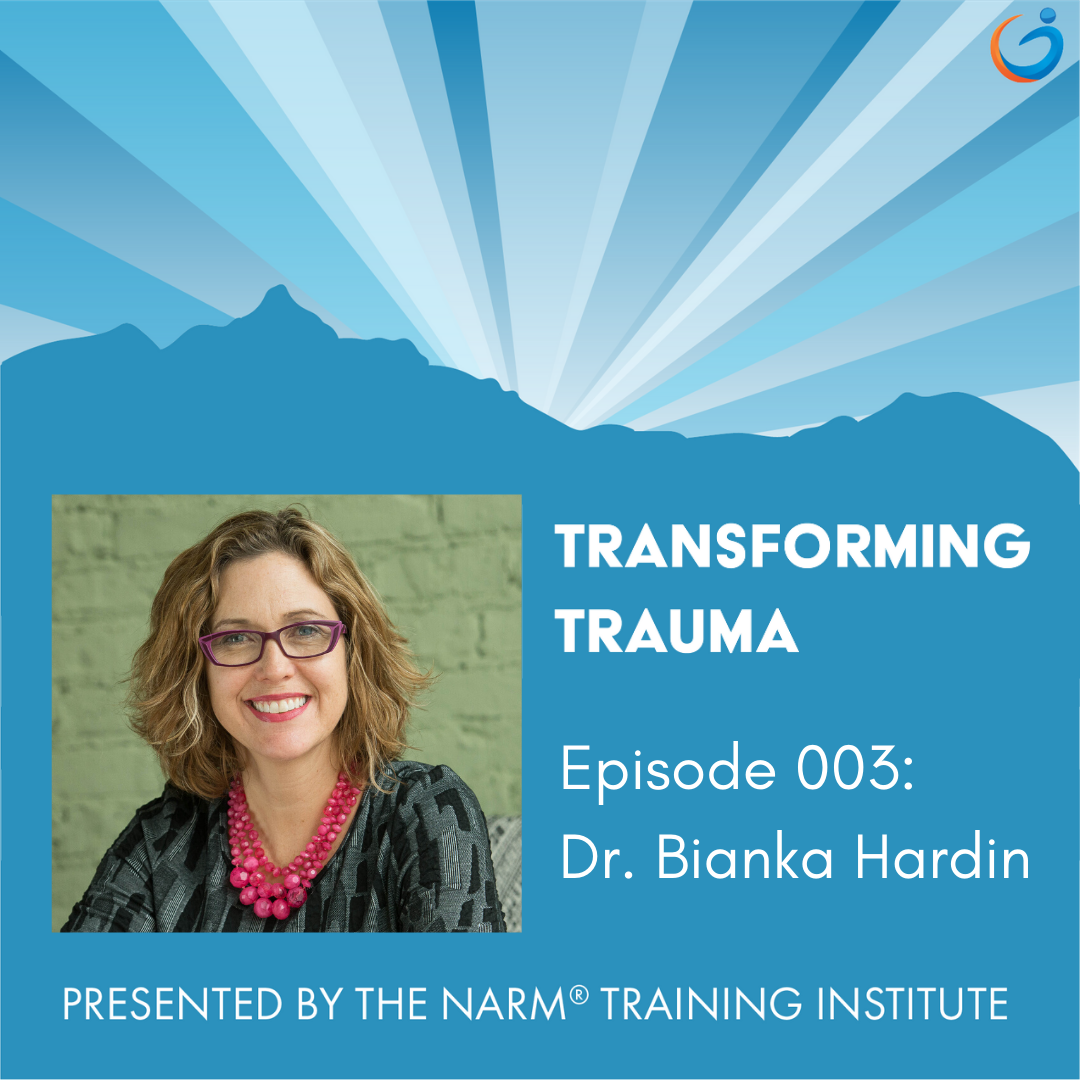
Our host Sarah is joined by Psychologist, Professor and NARM Therapist Dr. Bianka Hardin, to discuss NARM and its role in professional development for helping professionals, including its central focus on the therapist’s own personal development, as a tool for impacting personal healing and social change… (click to read more)

Our host Sarah chats with Mike Giresi, Director of Clinical Development at Family First Adolescent Services in Palm Beach Gardens, FL and NARM Practitioner, about the profound impact the NeuroAffective Relational Model (NARM) has made in his work with adolescents and teens… (click to read more)
Our host, Sarah Buino, starts to deconstruct the language used when talking about healing complex trauma. She talks with Brad Kammer, NARM Training Director, about the importance of trauma-informed work, the NARM model, and… (click to read more)
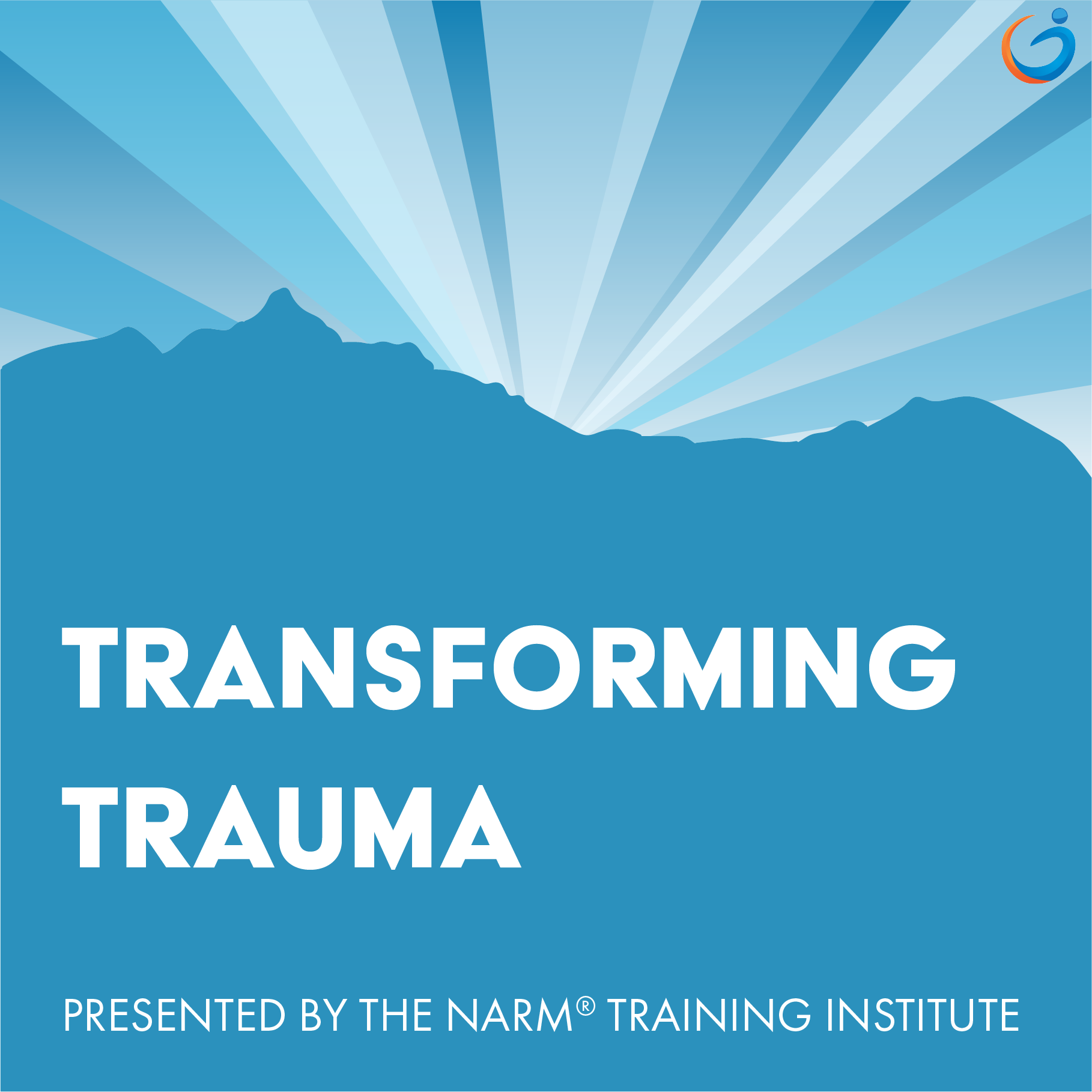
Transforming Trauma Trailer: Healing from Complex Trauma
Meet our host, Sarah Buino, as she shares what to expect from our full-length episodes: interviews with NARM Therapists and other prominent trauma specialists, explorations of how to fill the missing gap in our current efforts to address the legacy of childhood, cultural and intergenerational trauma and most importantly, stories of individuals and communities thriving after Complex Trauma.







